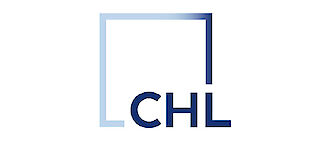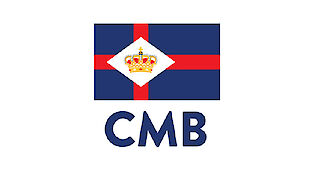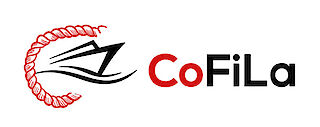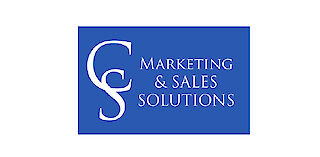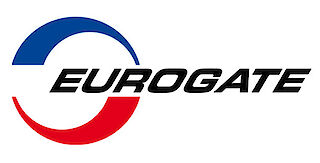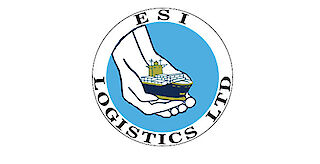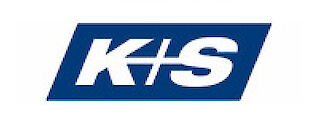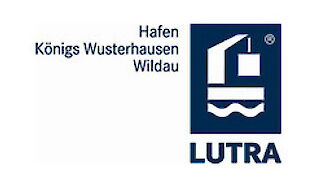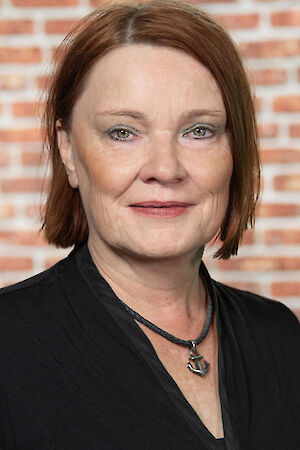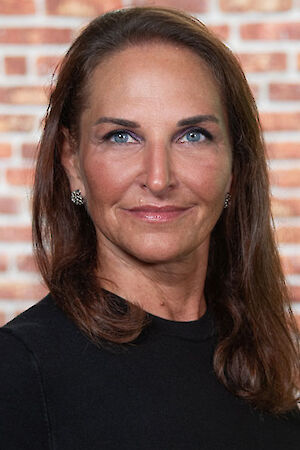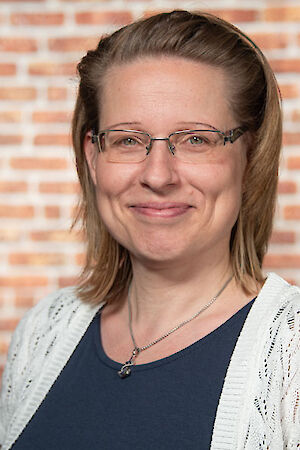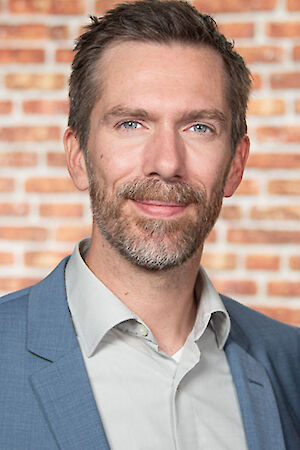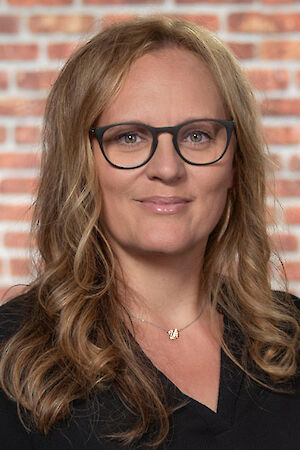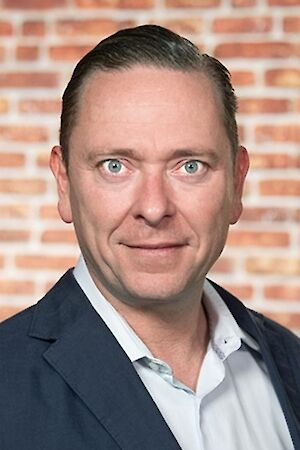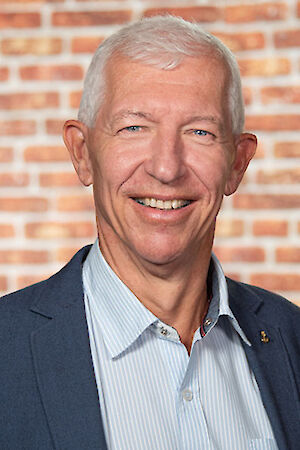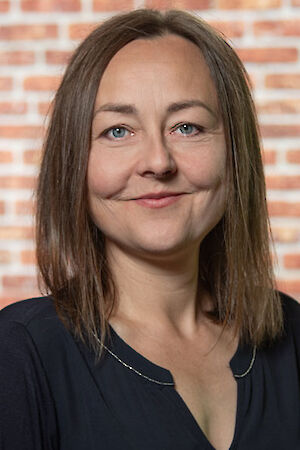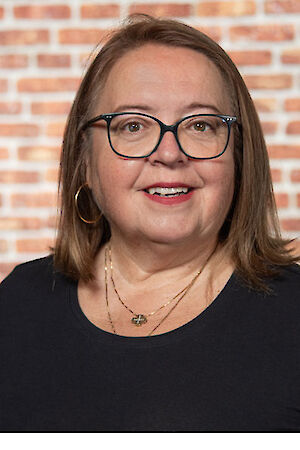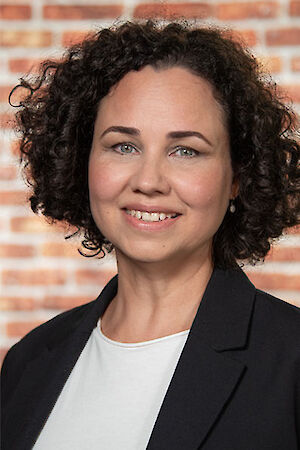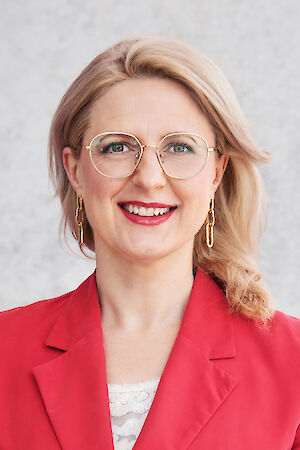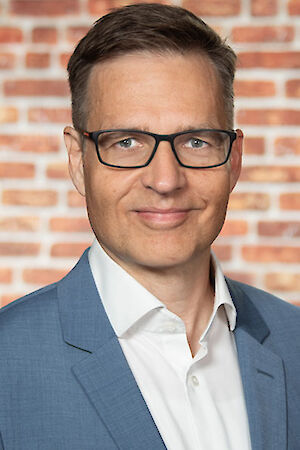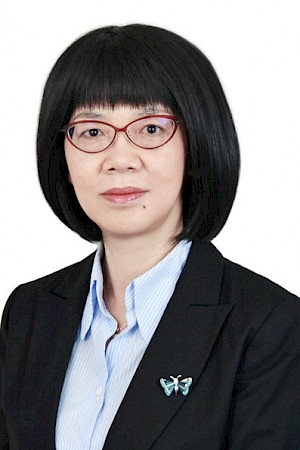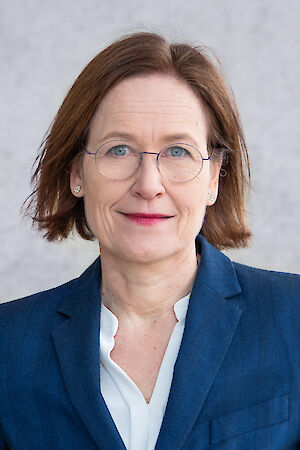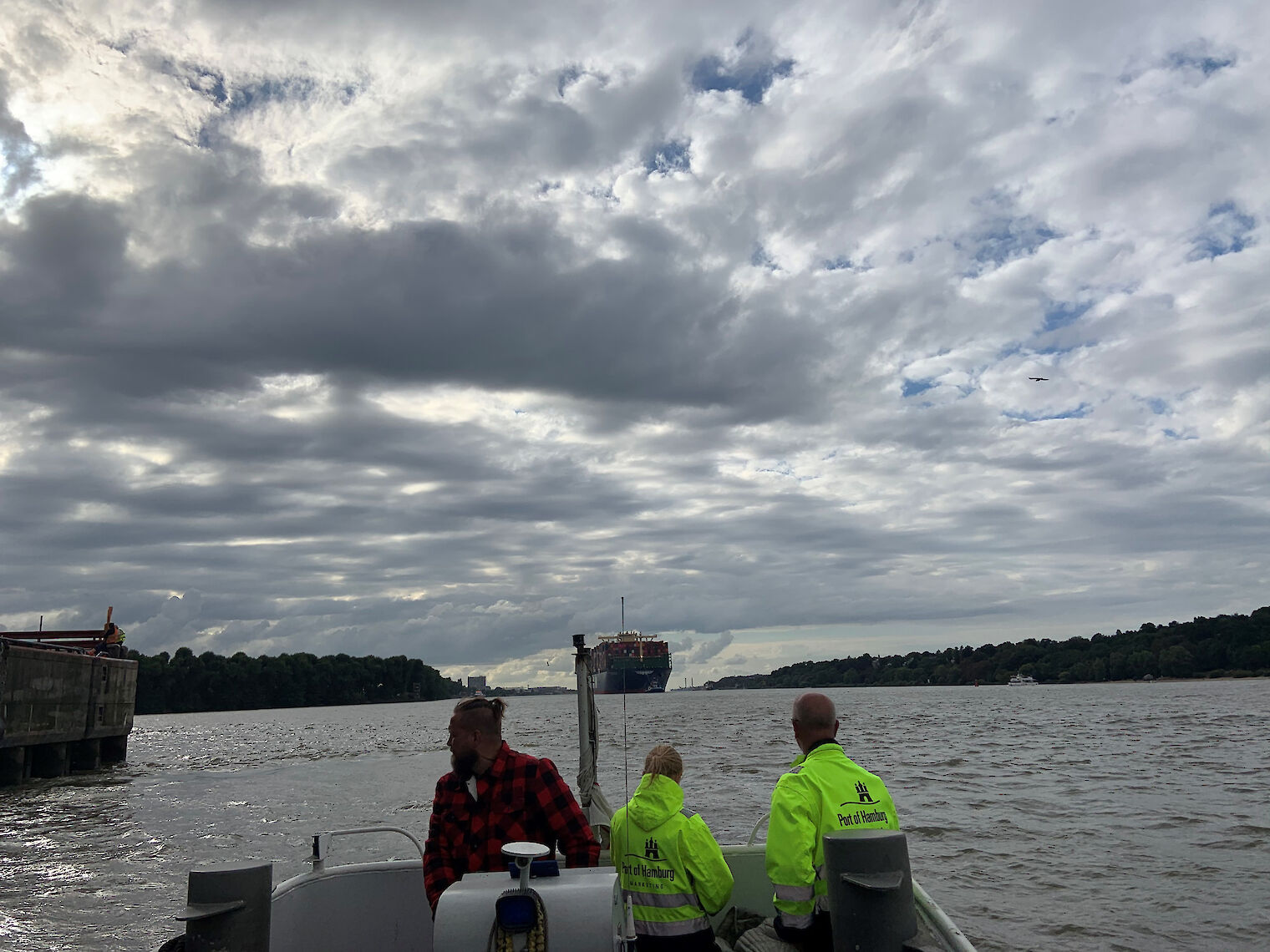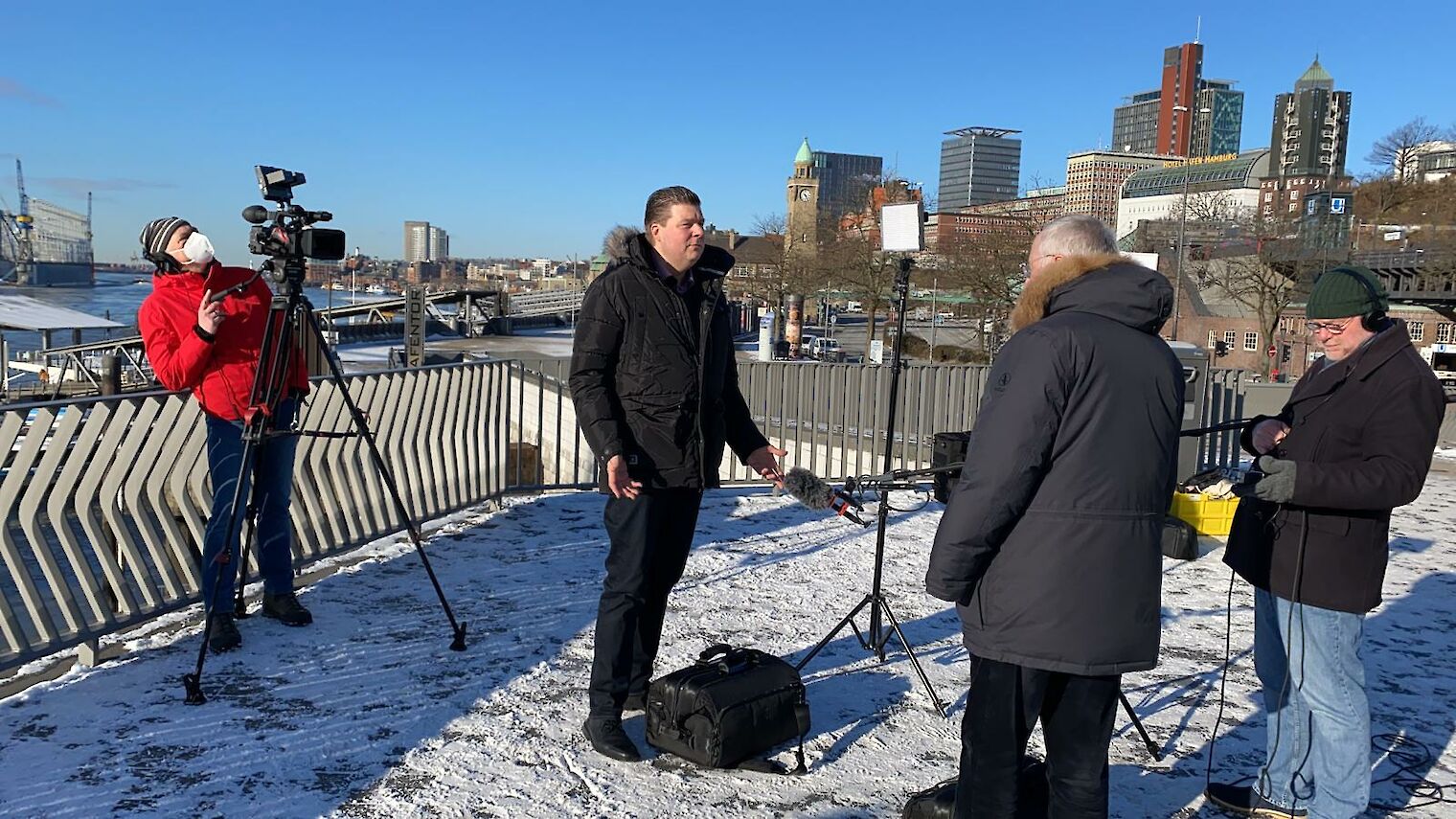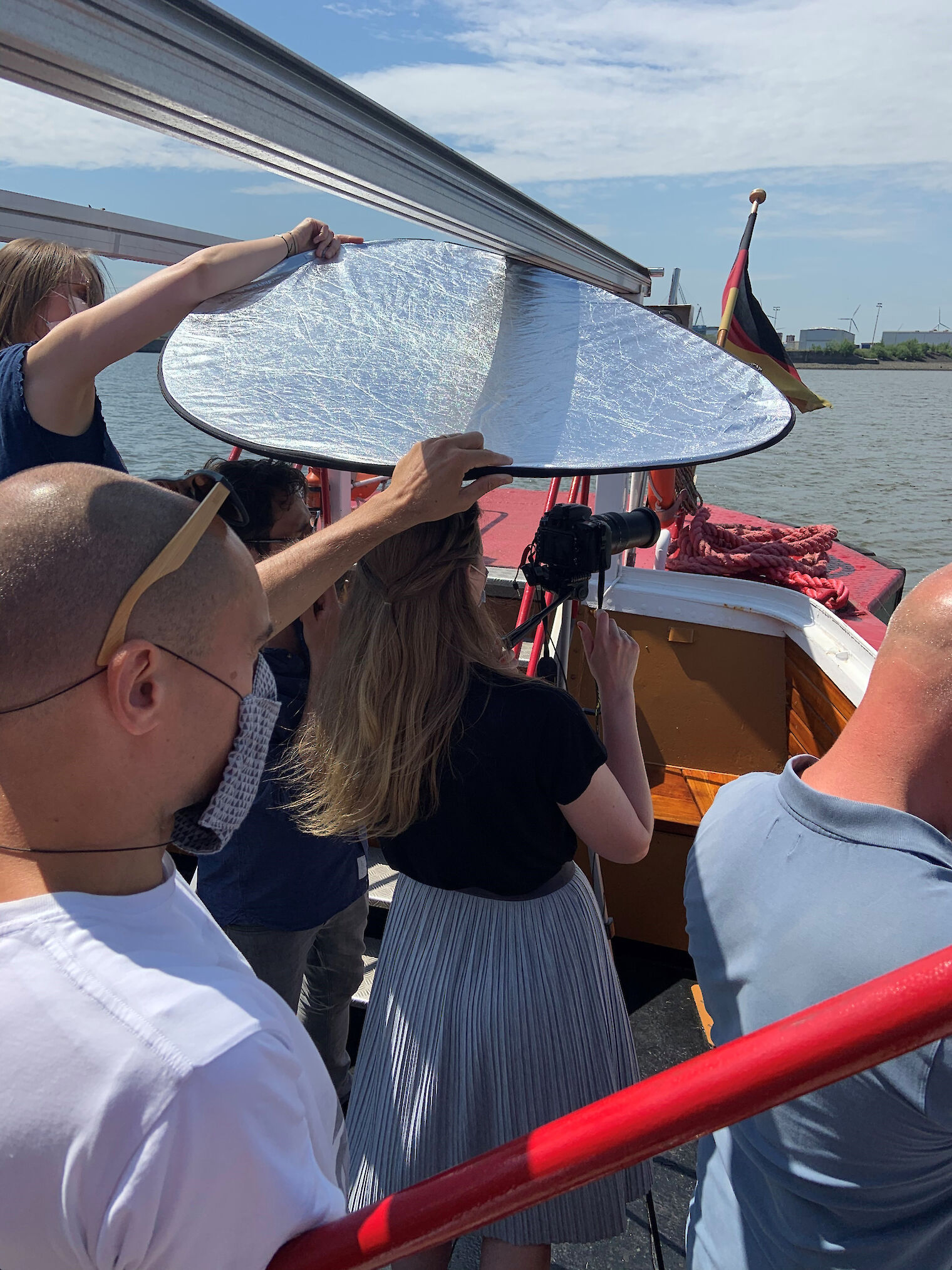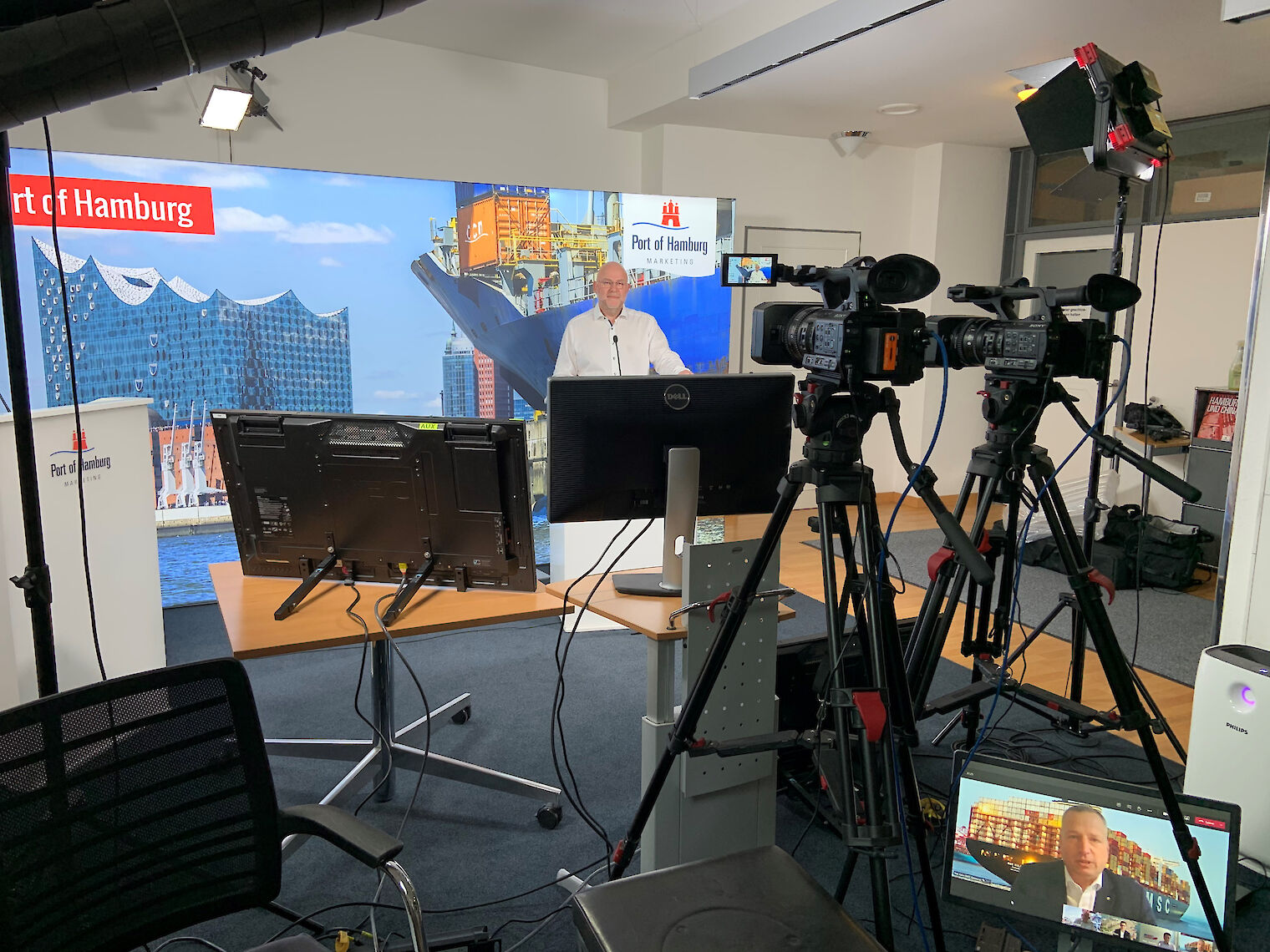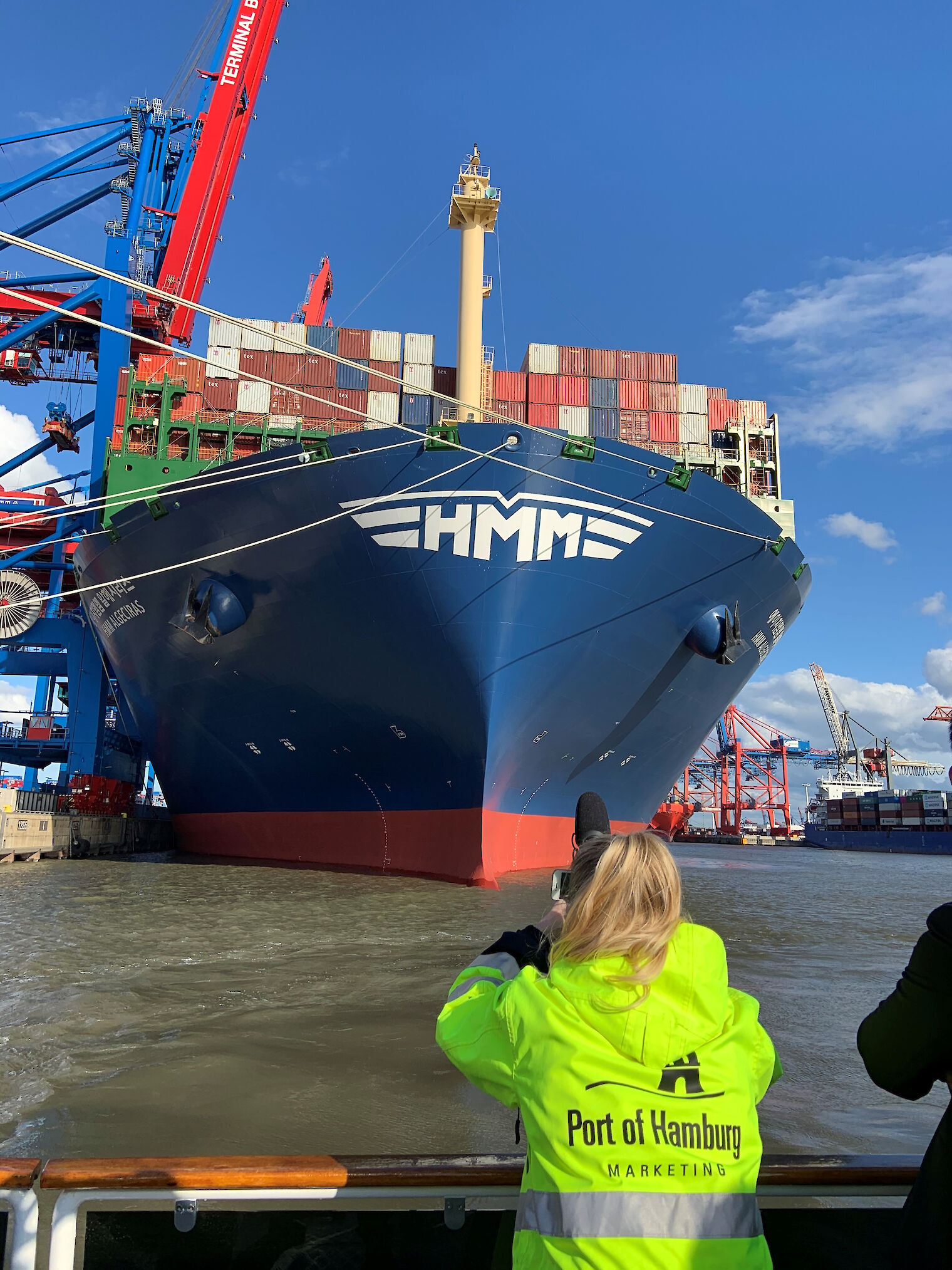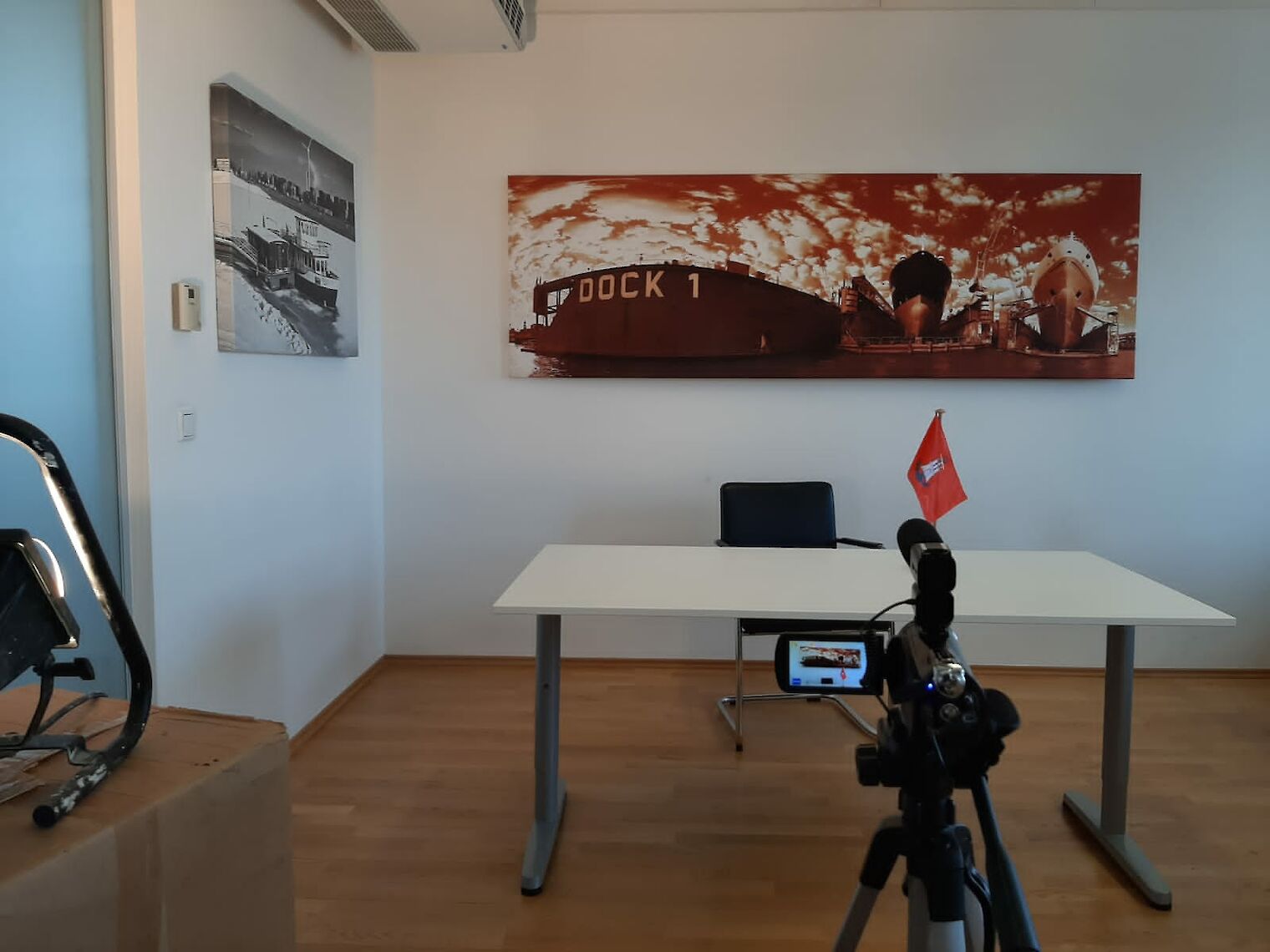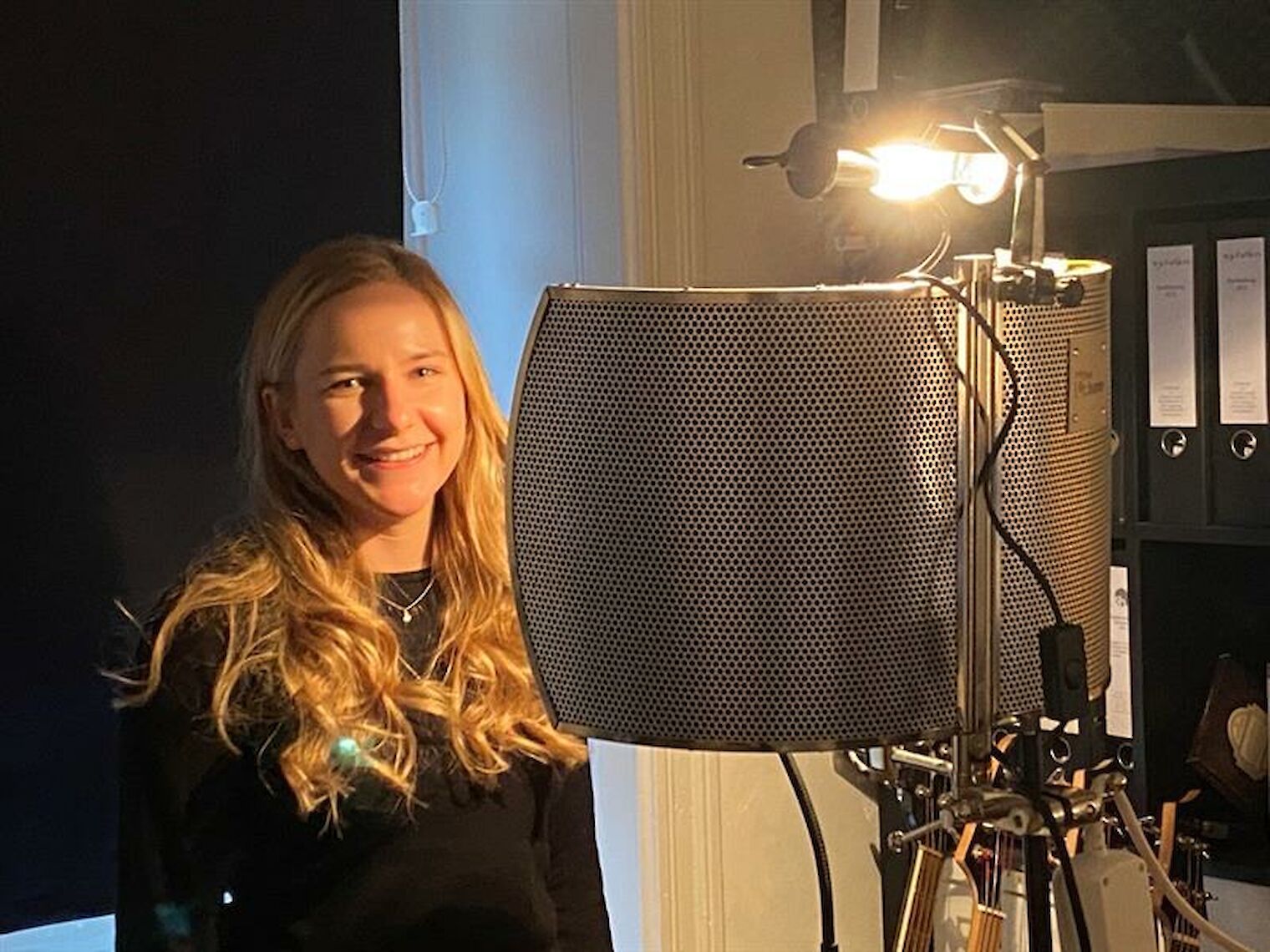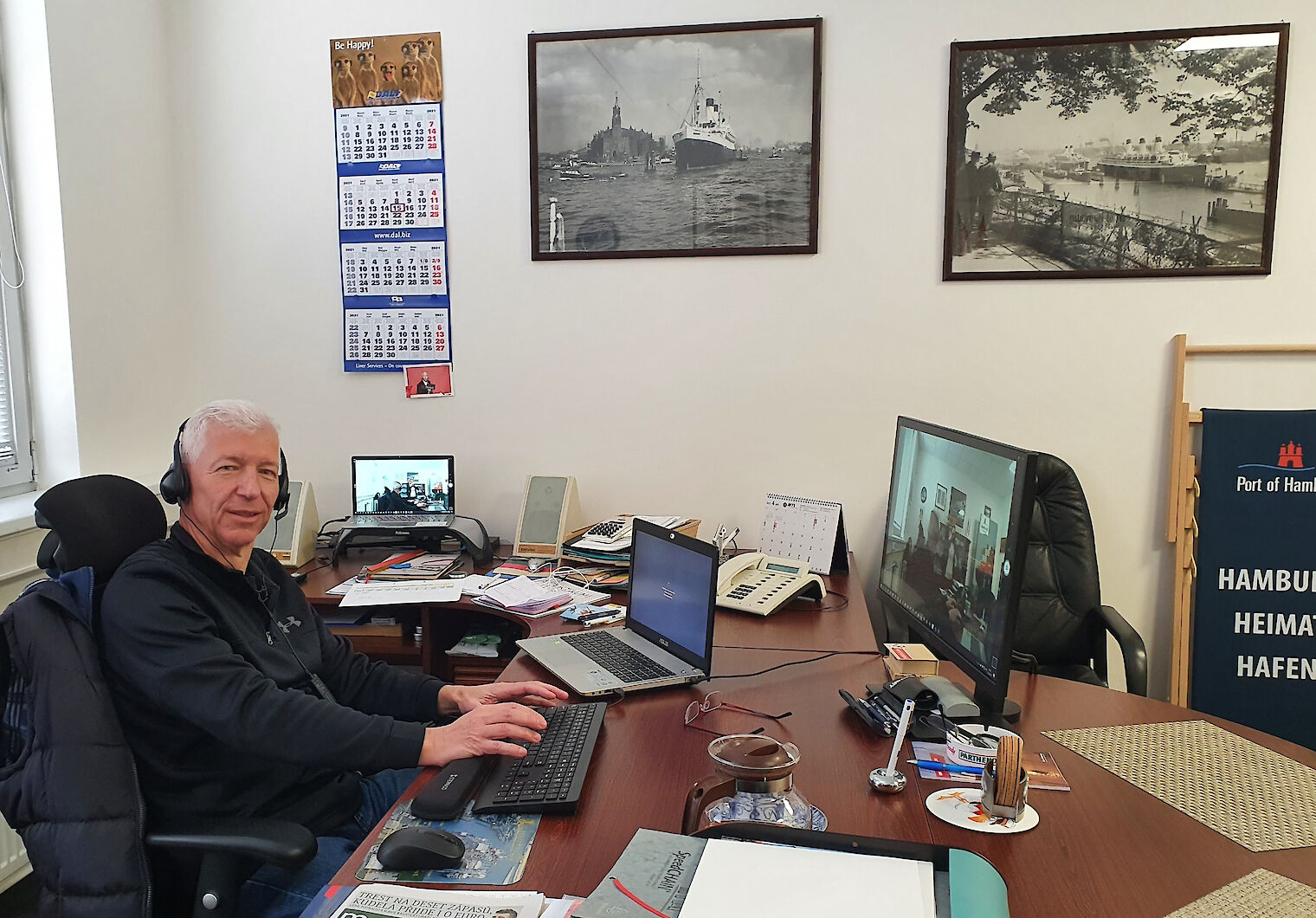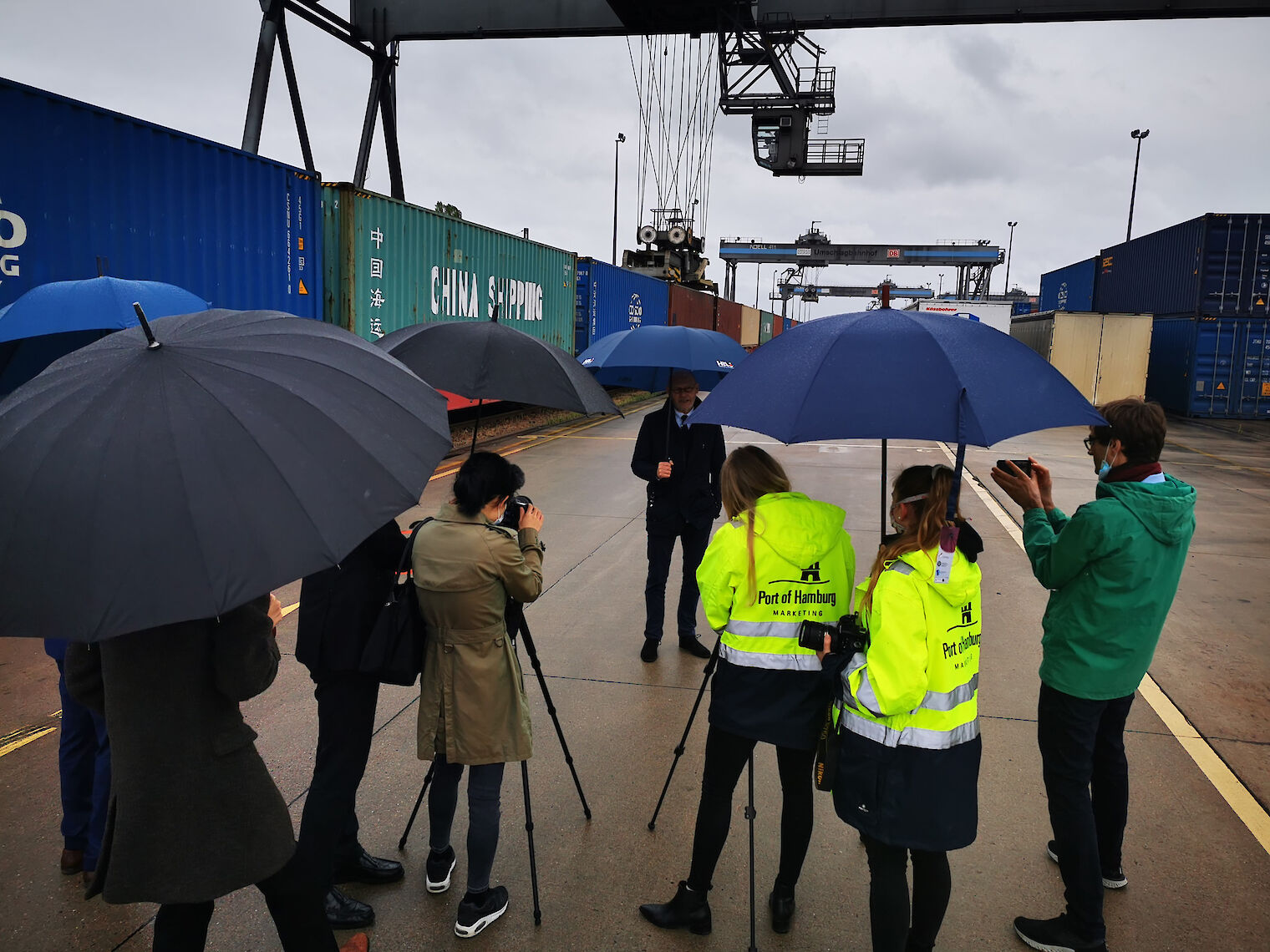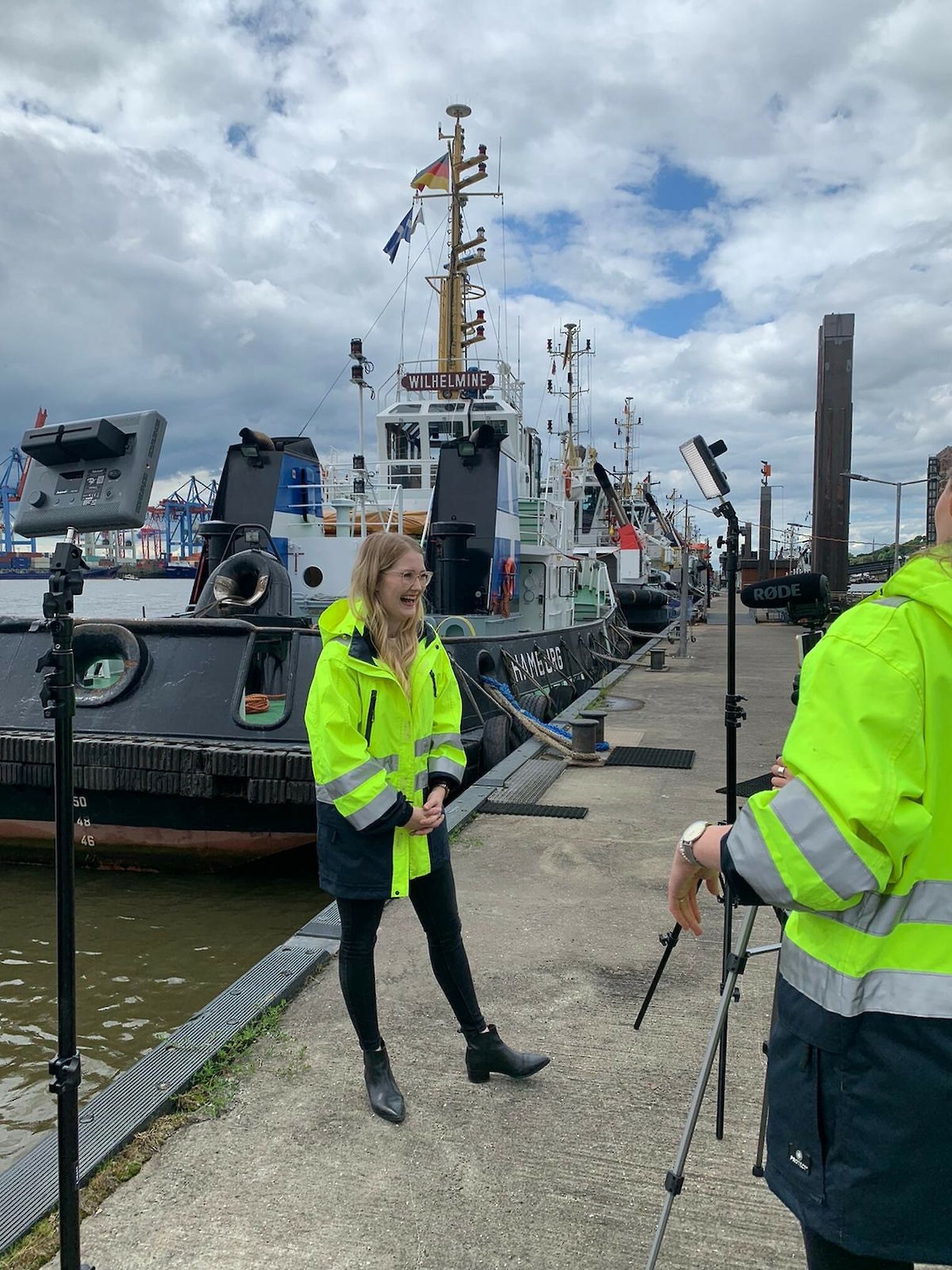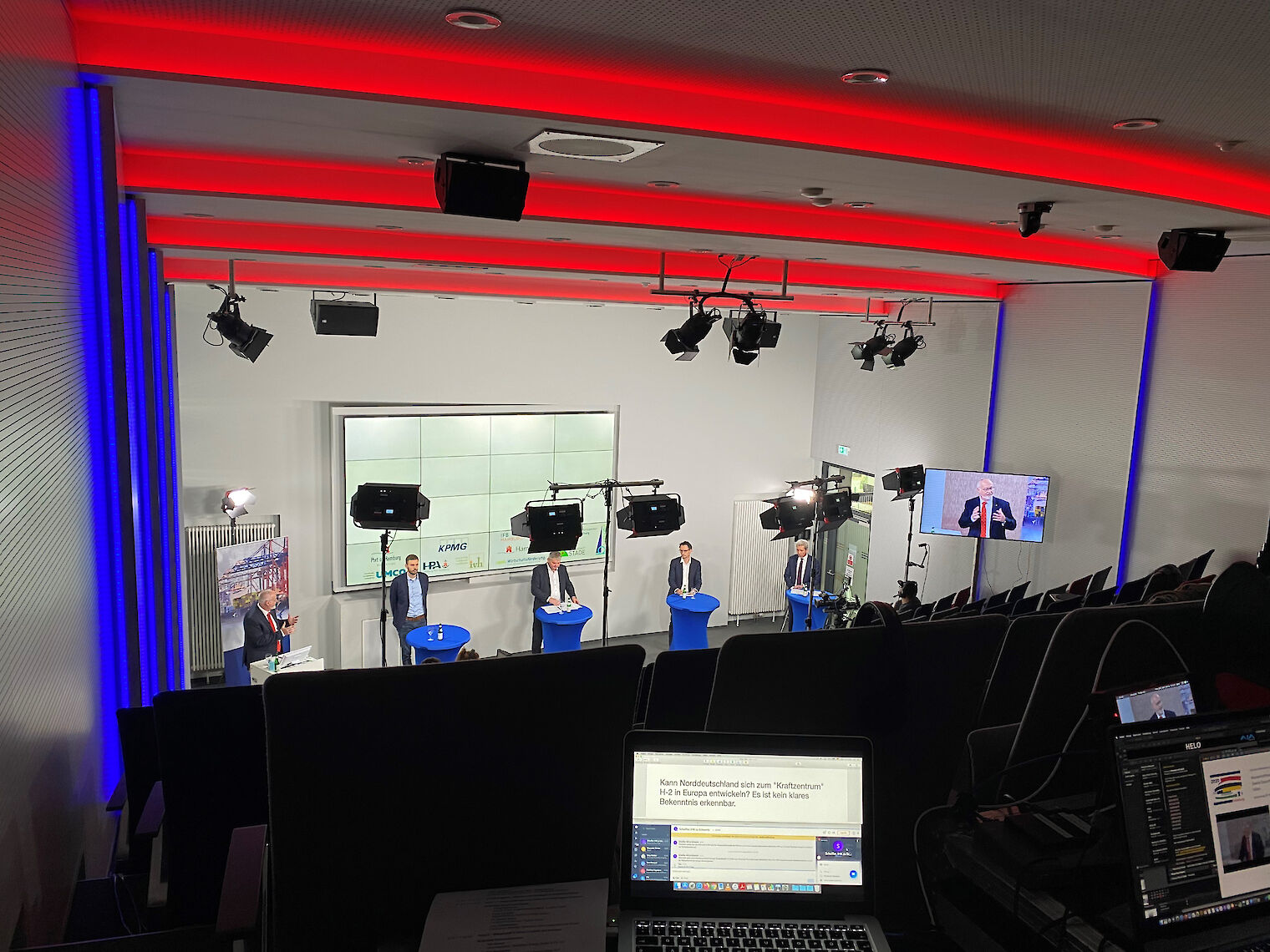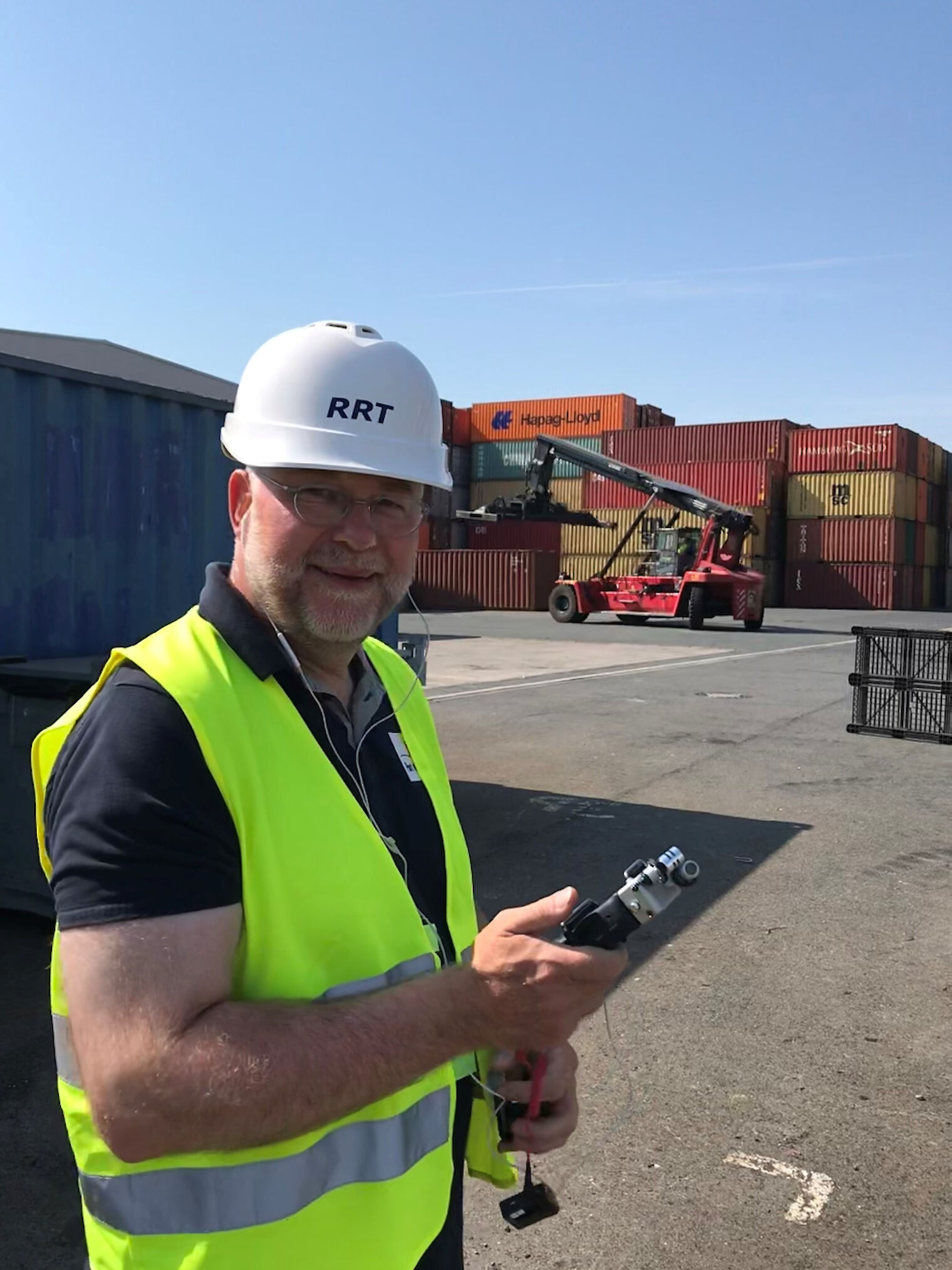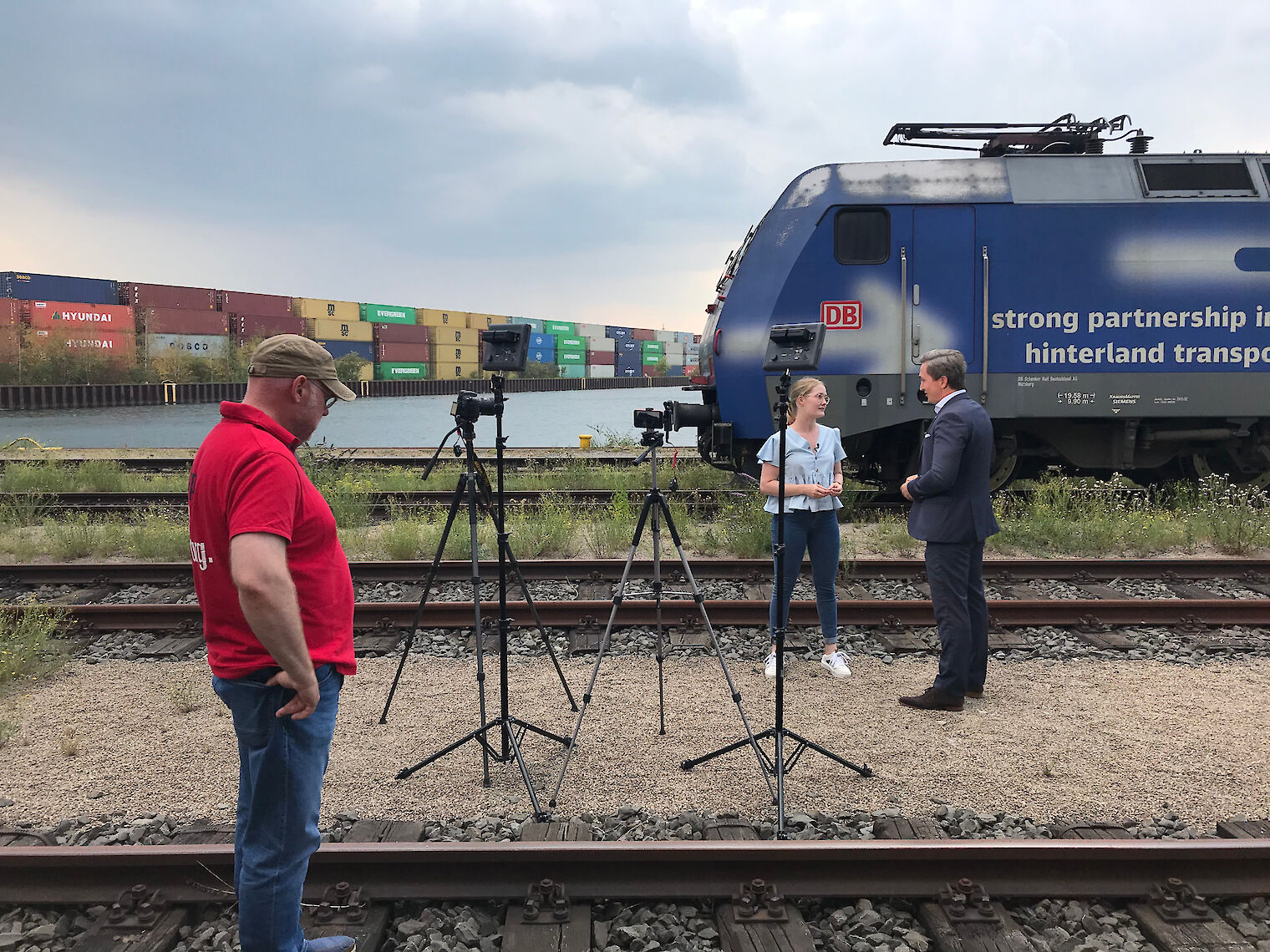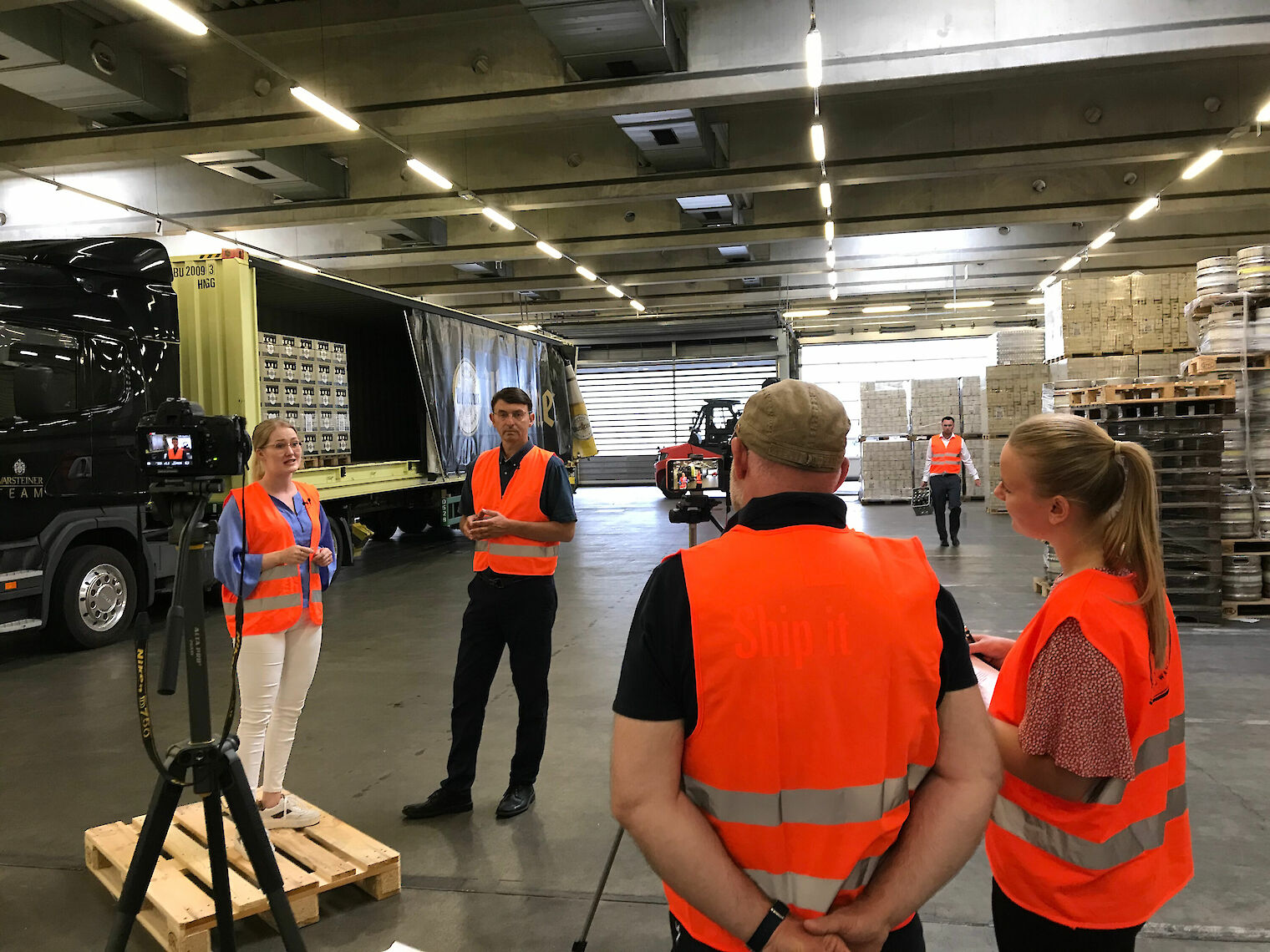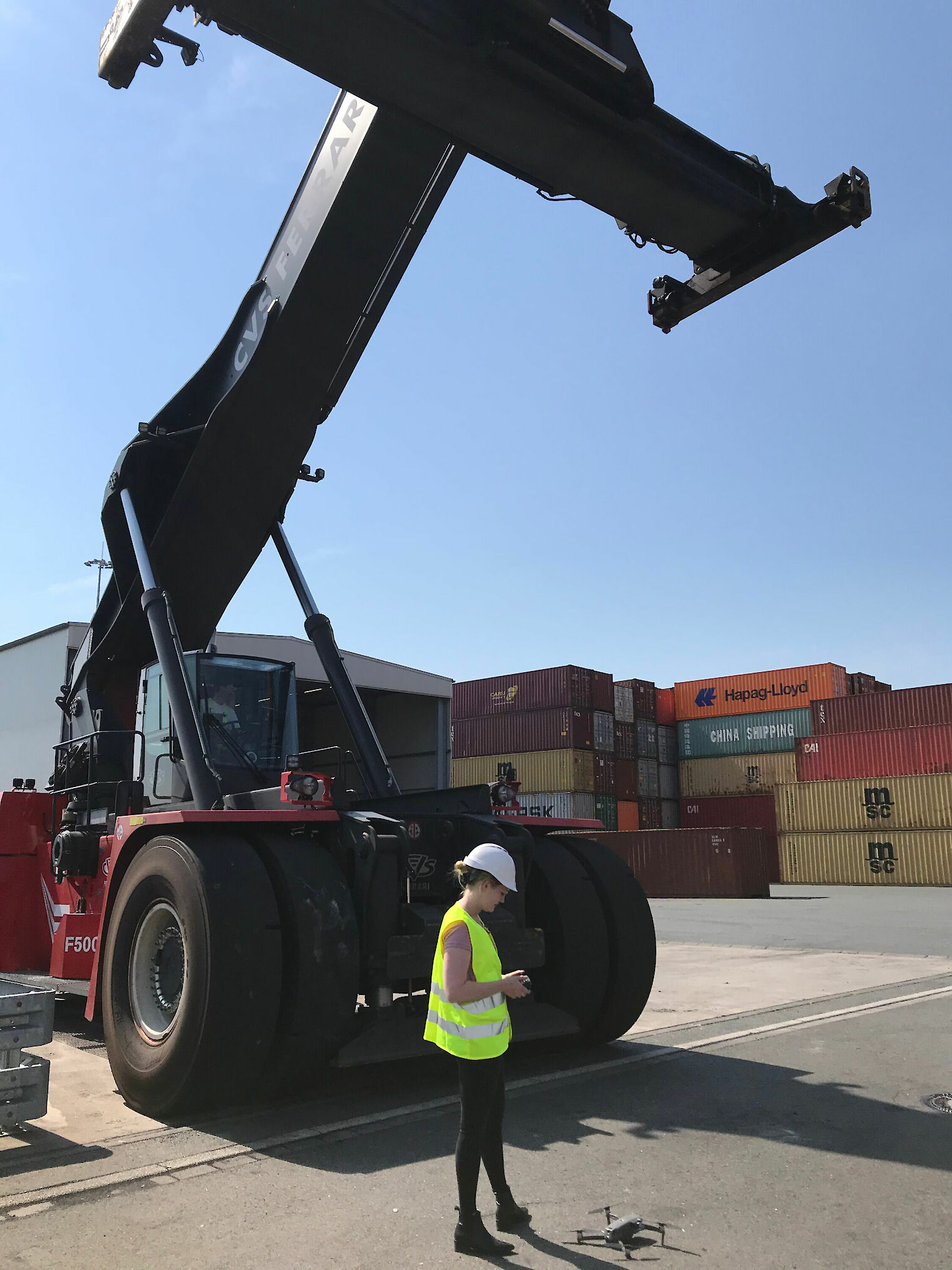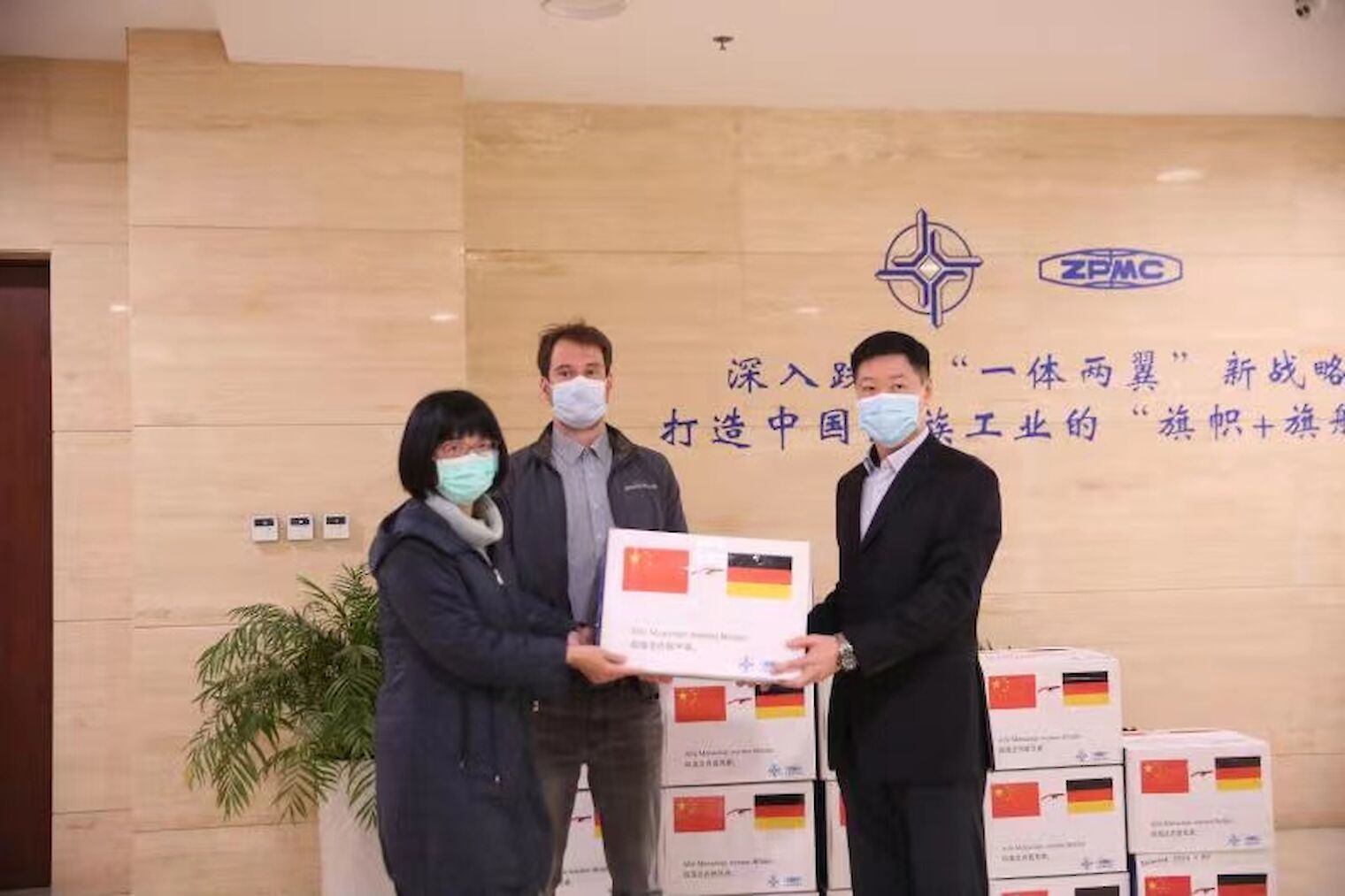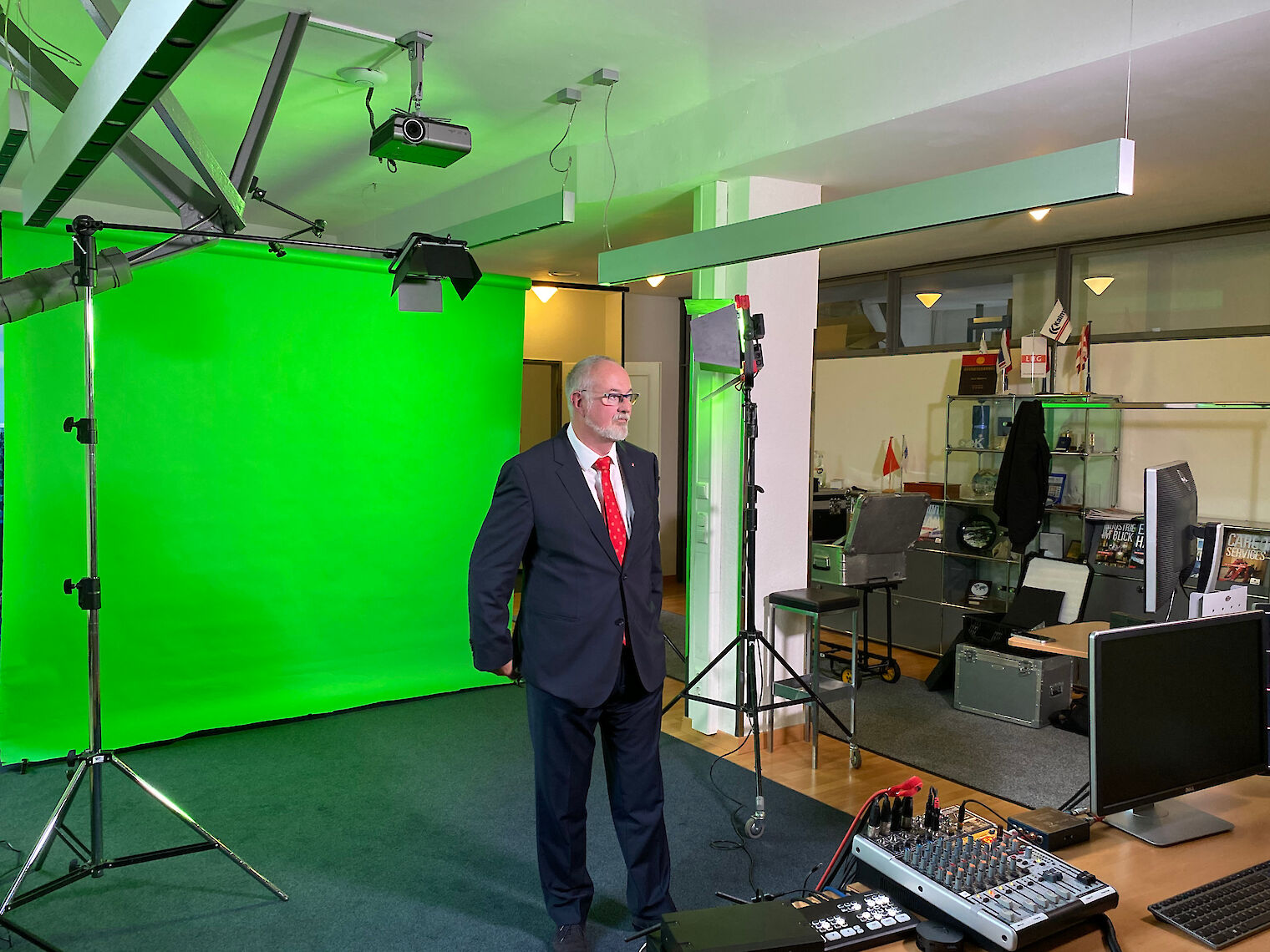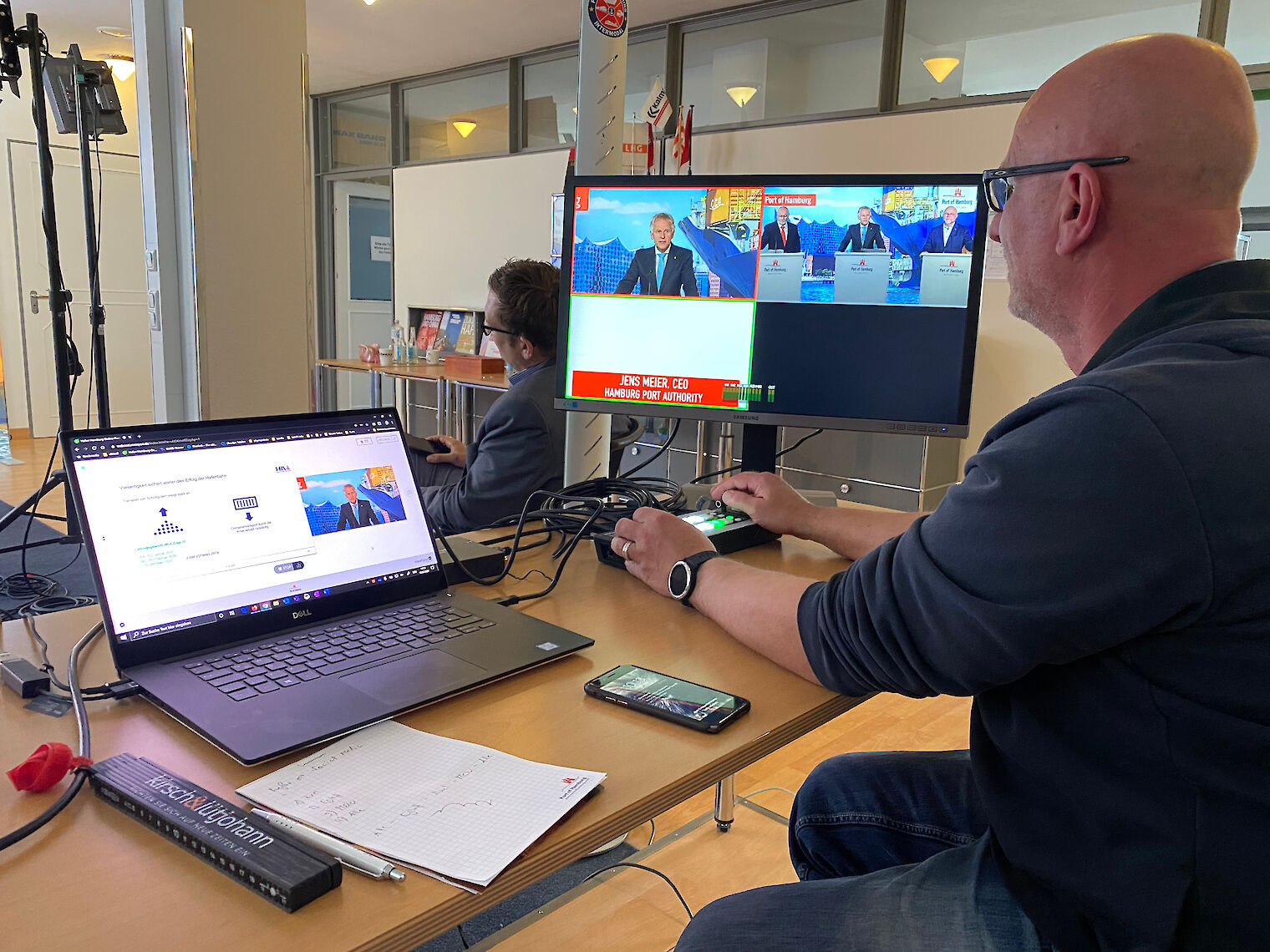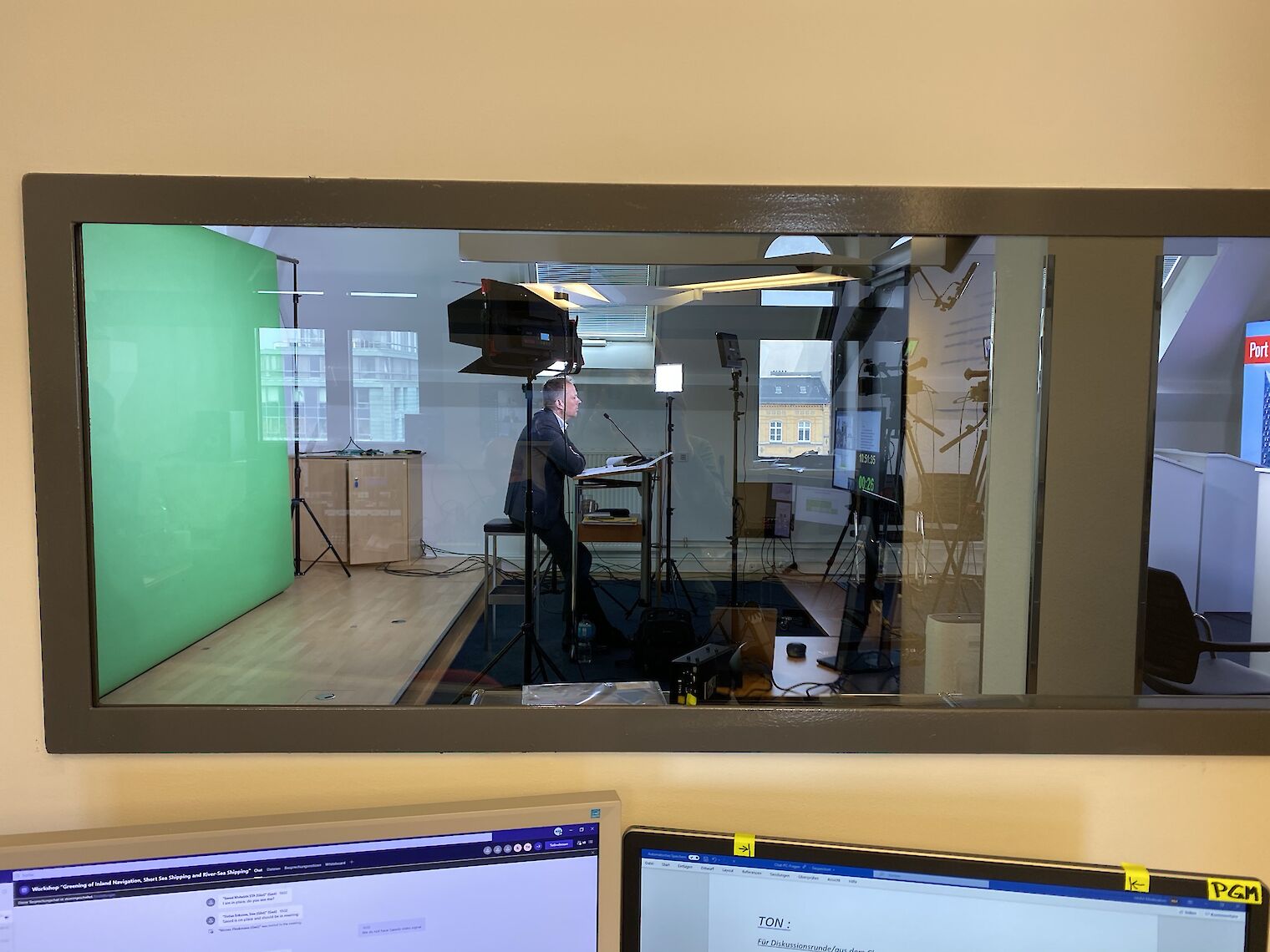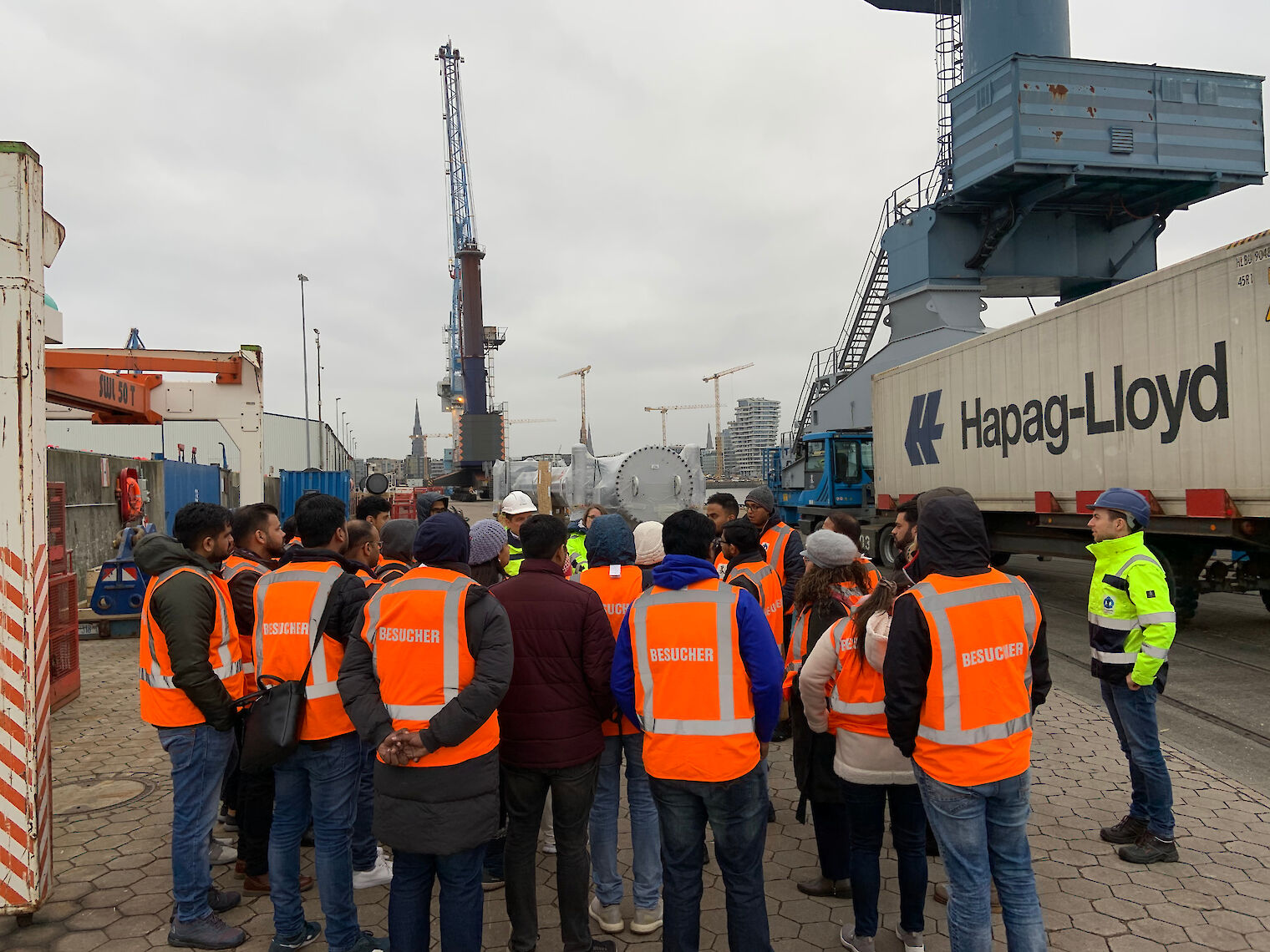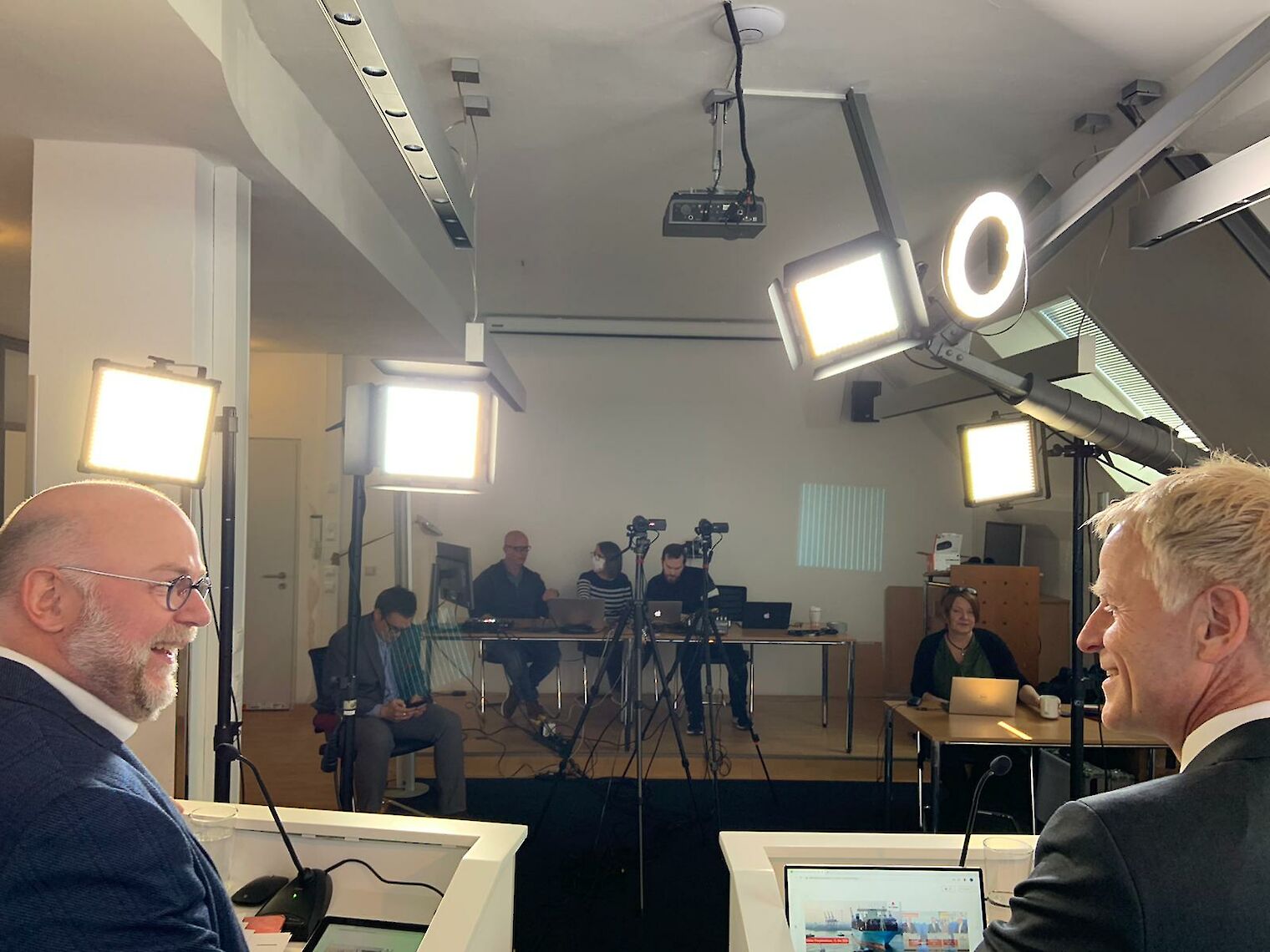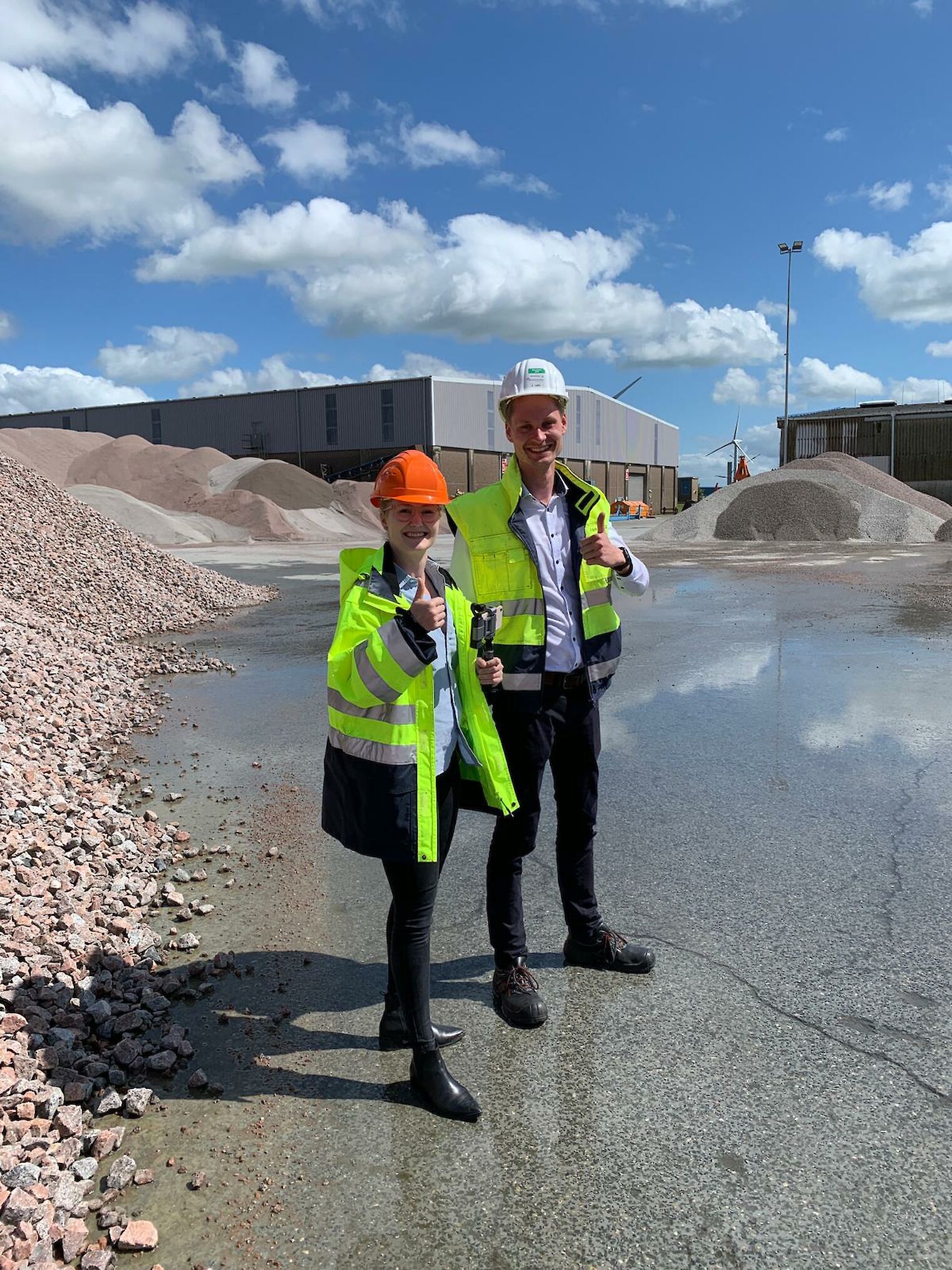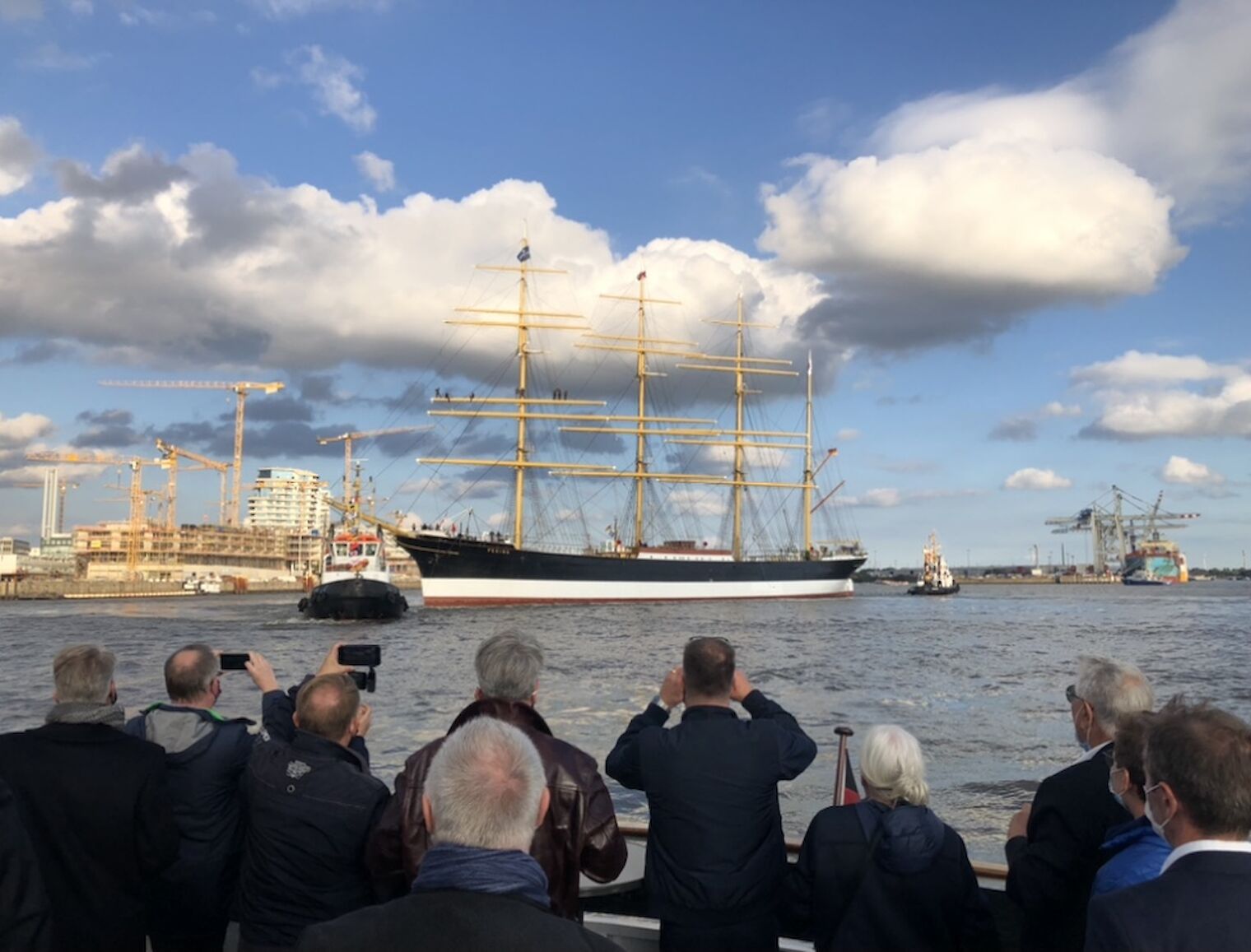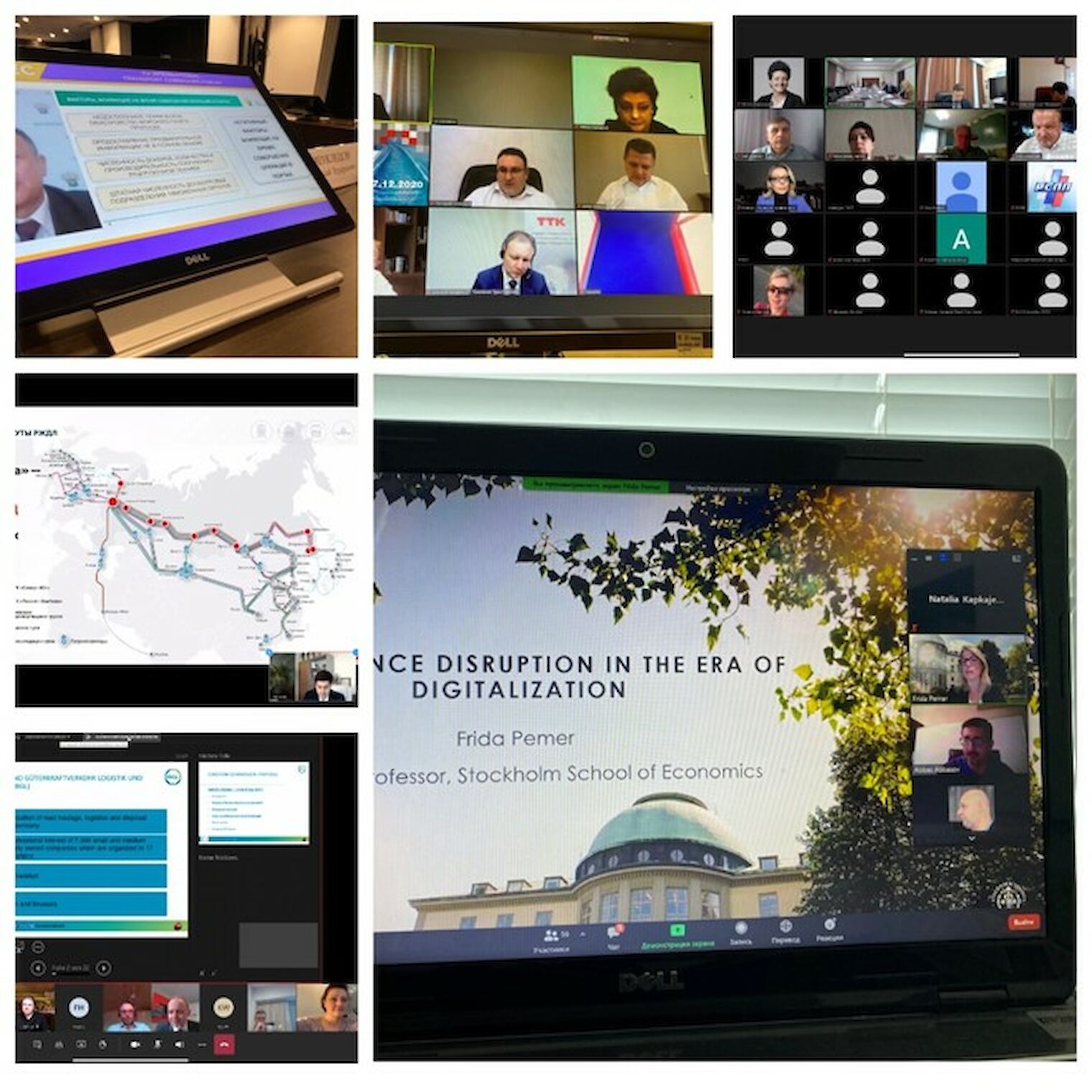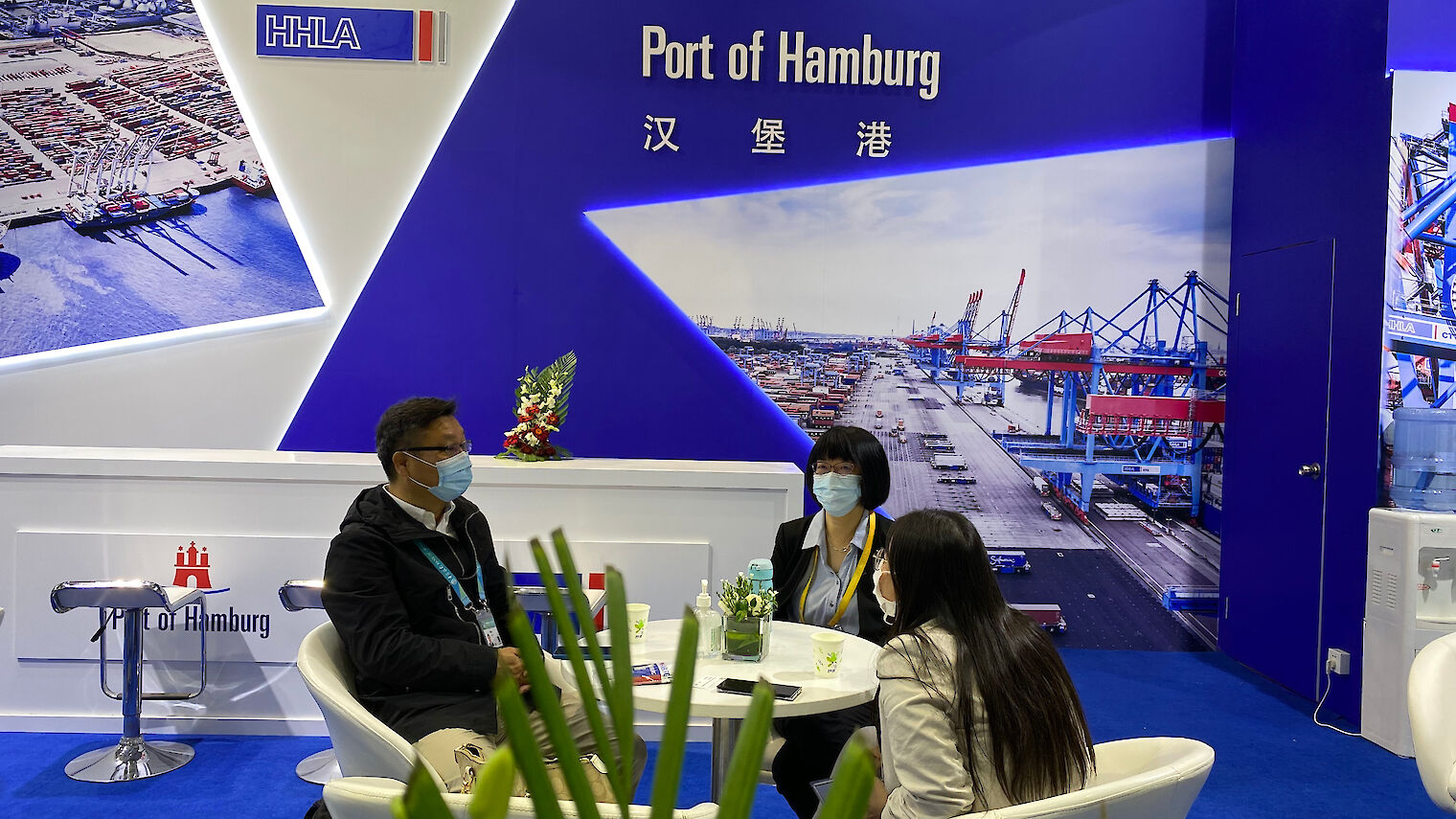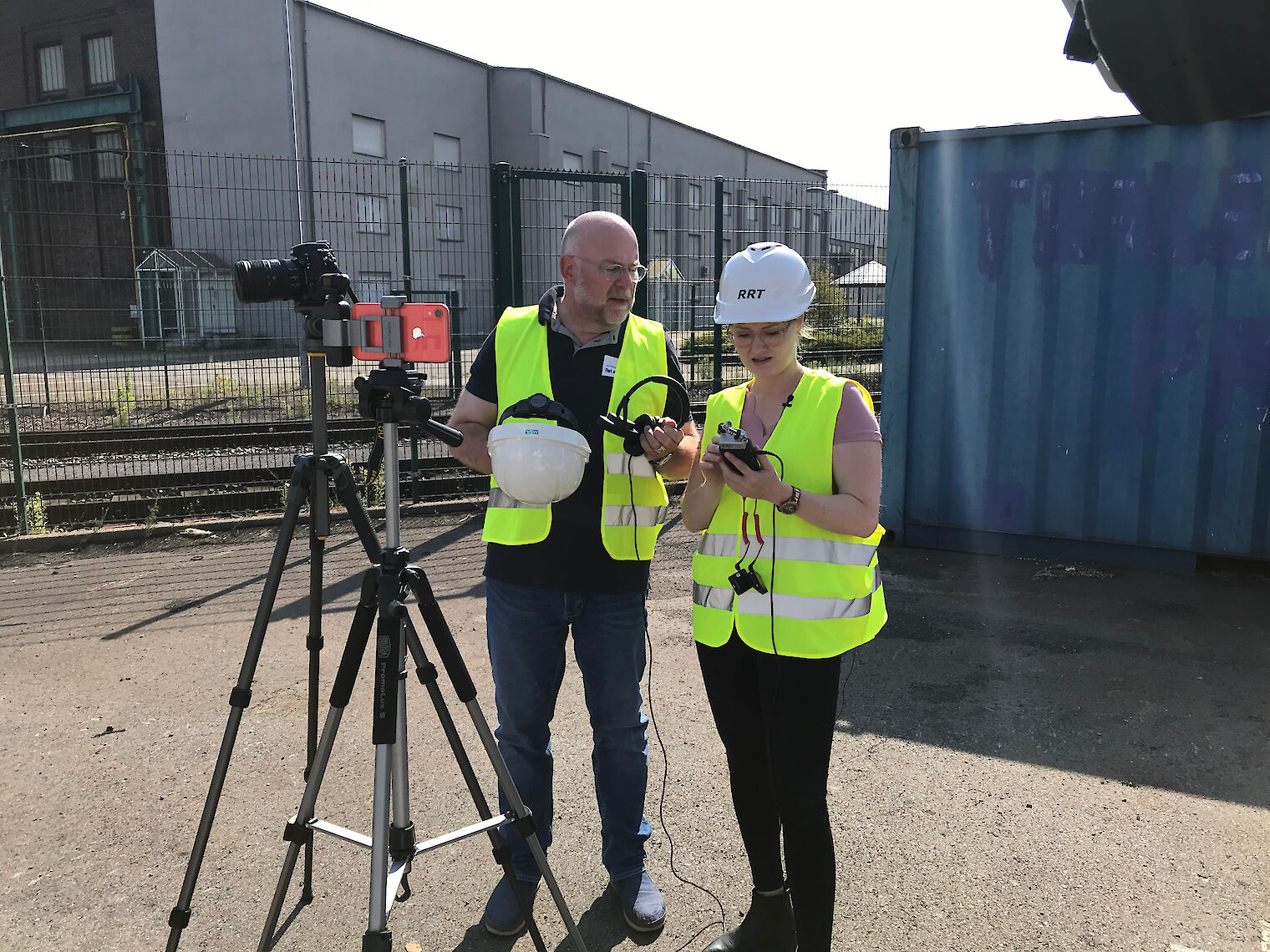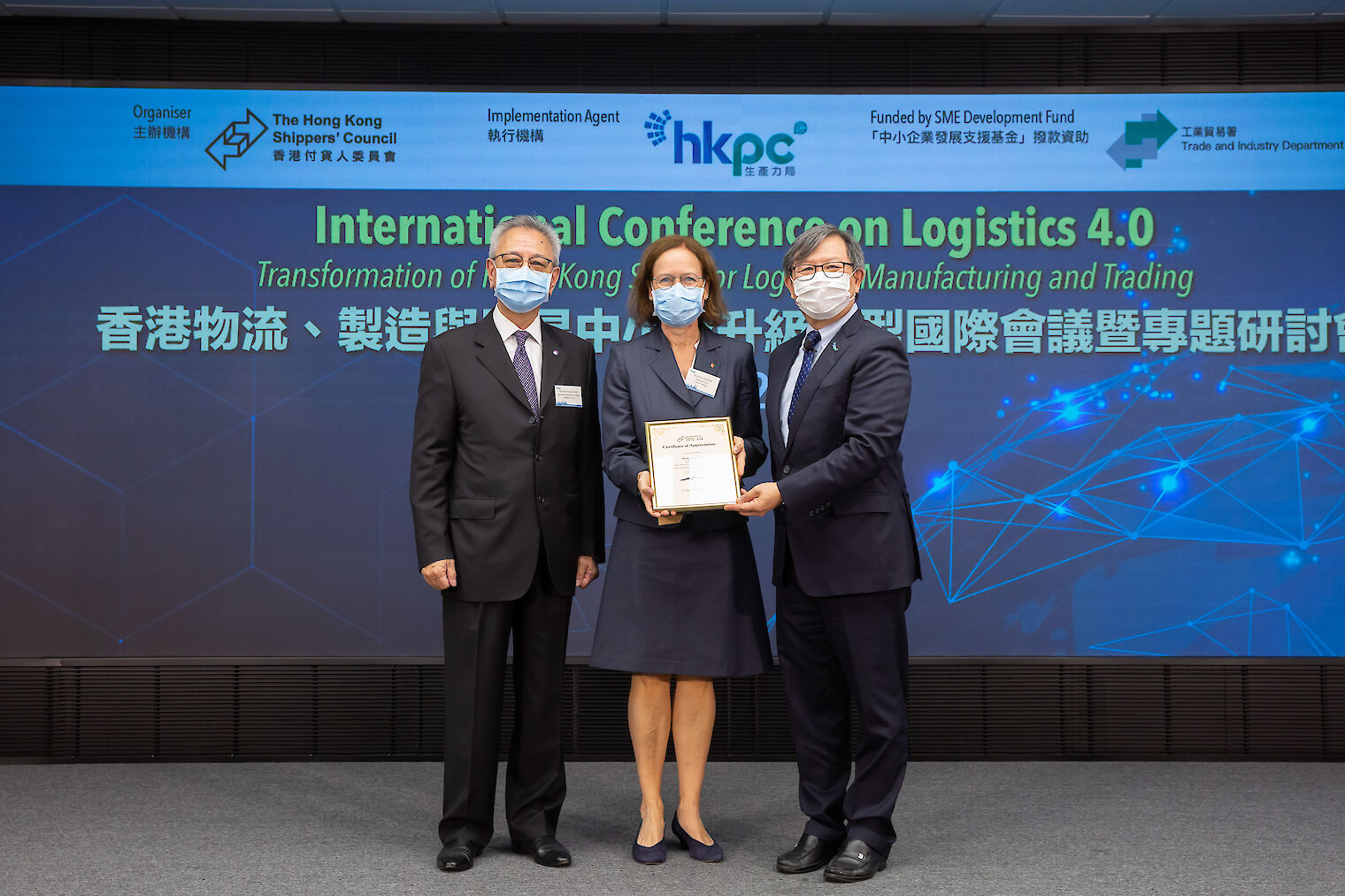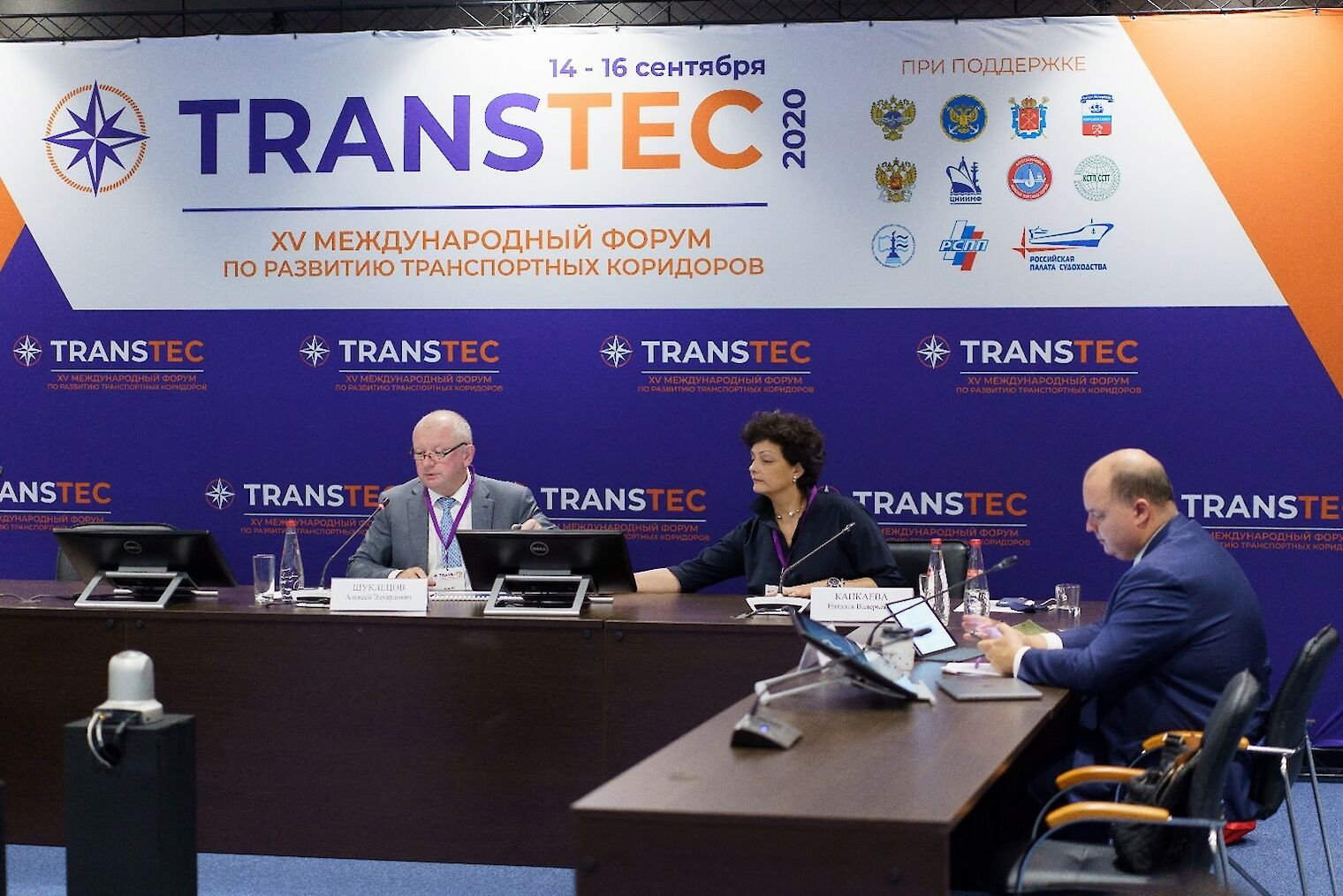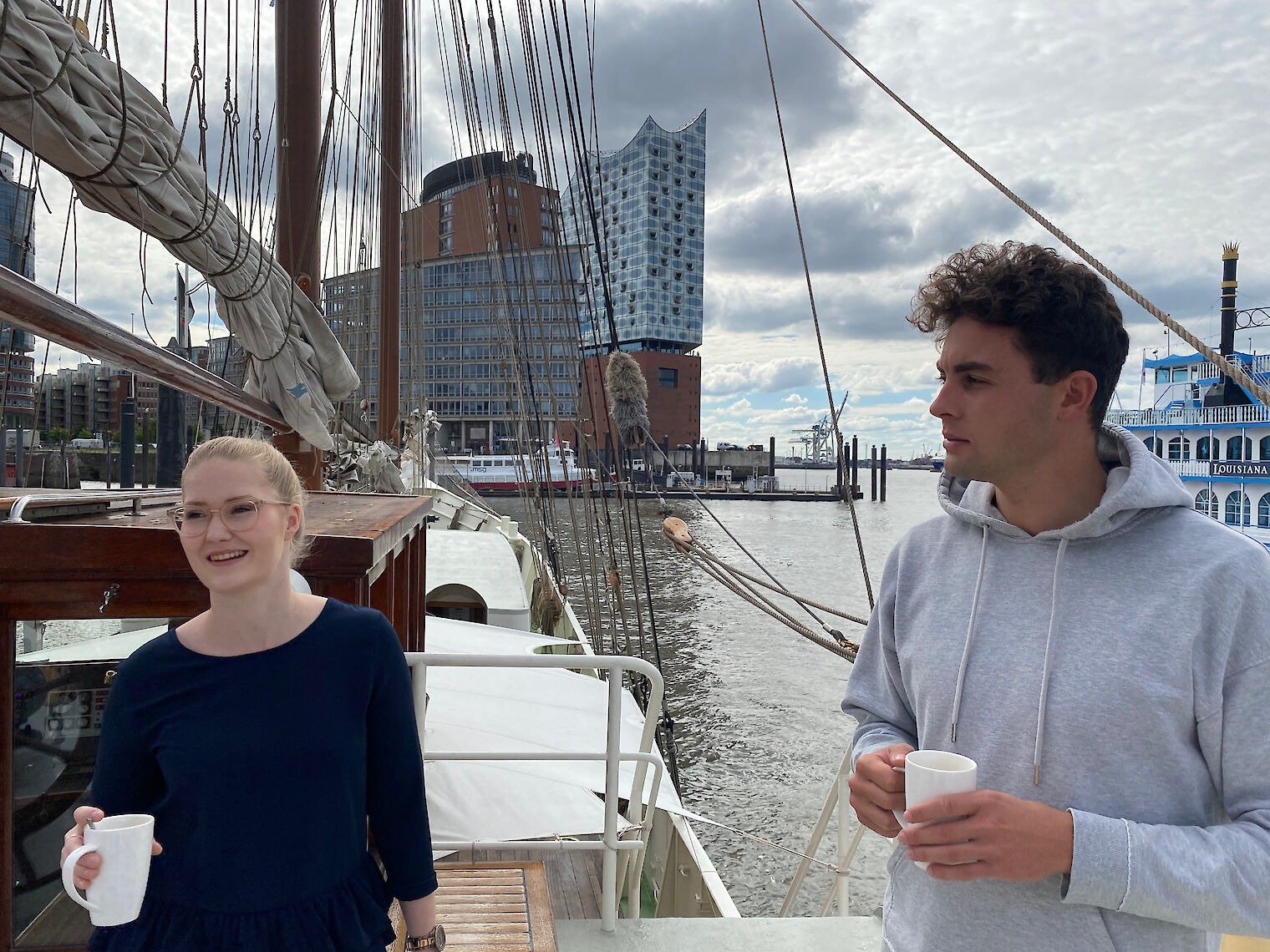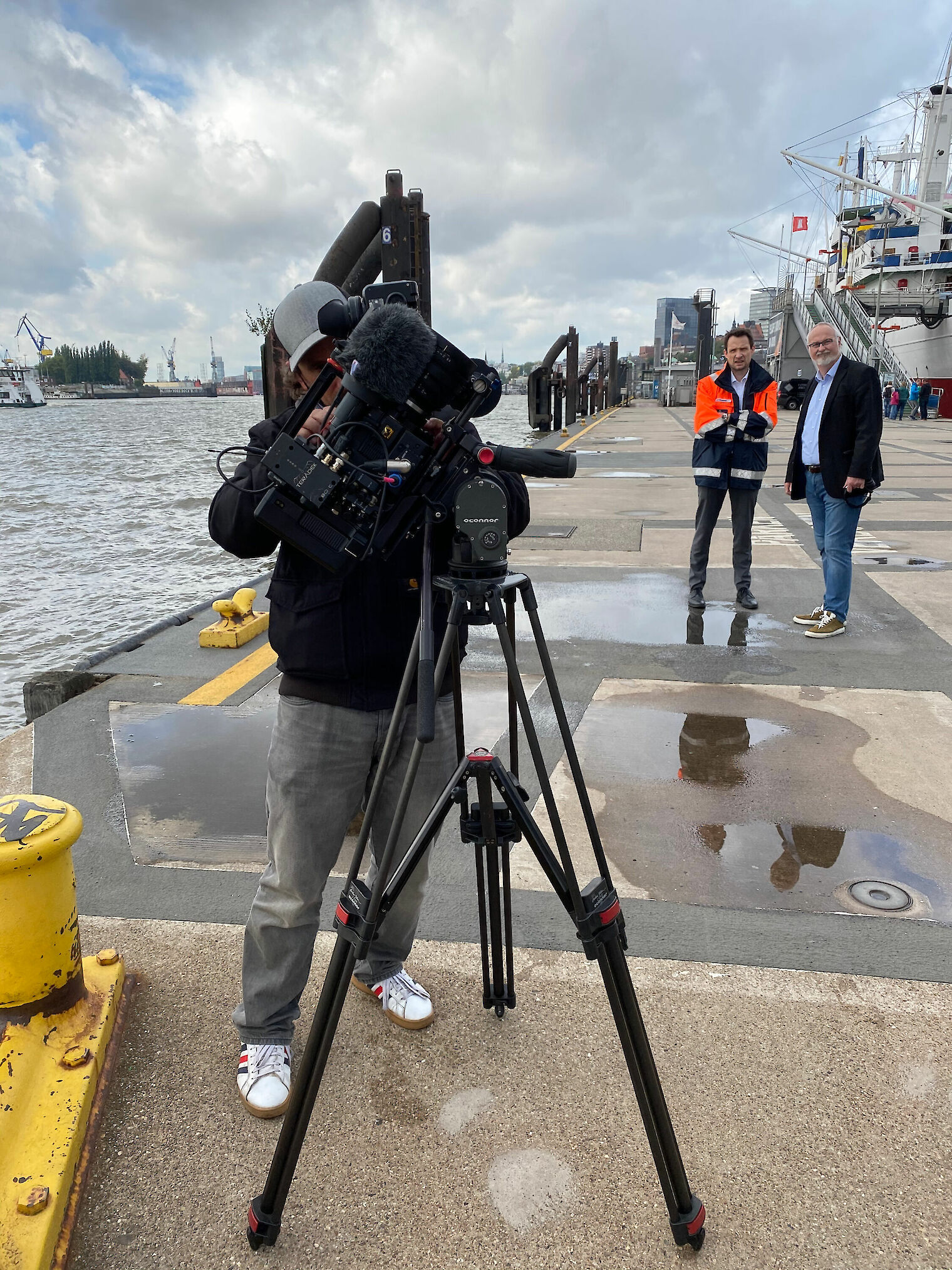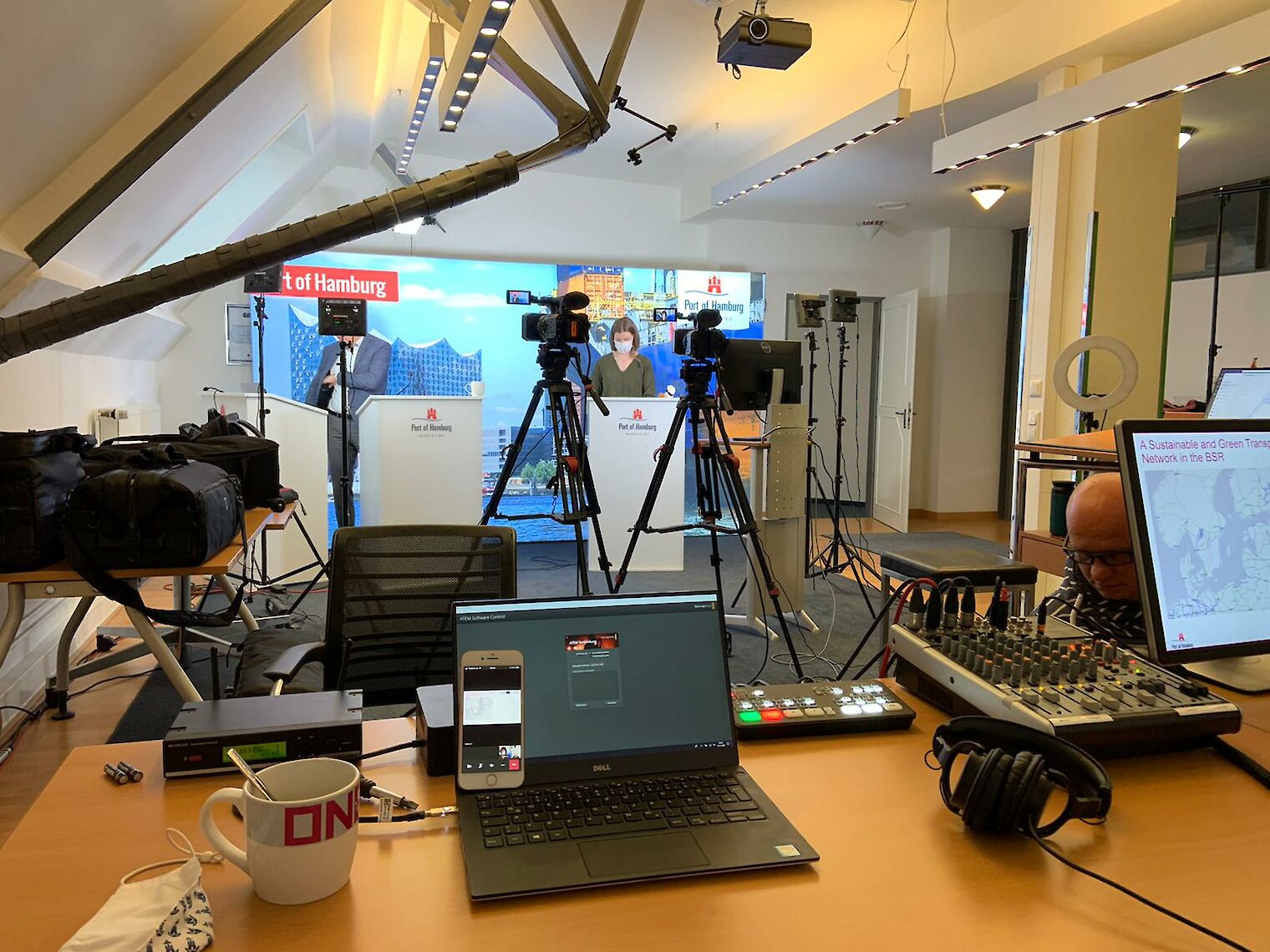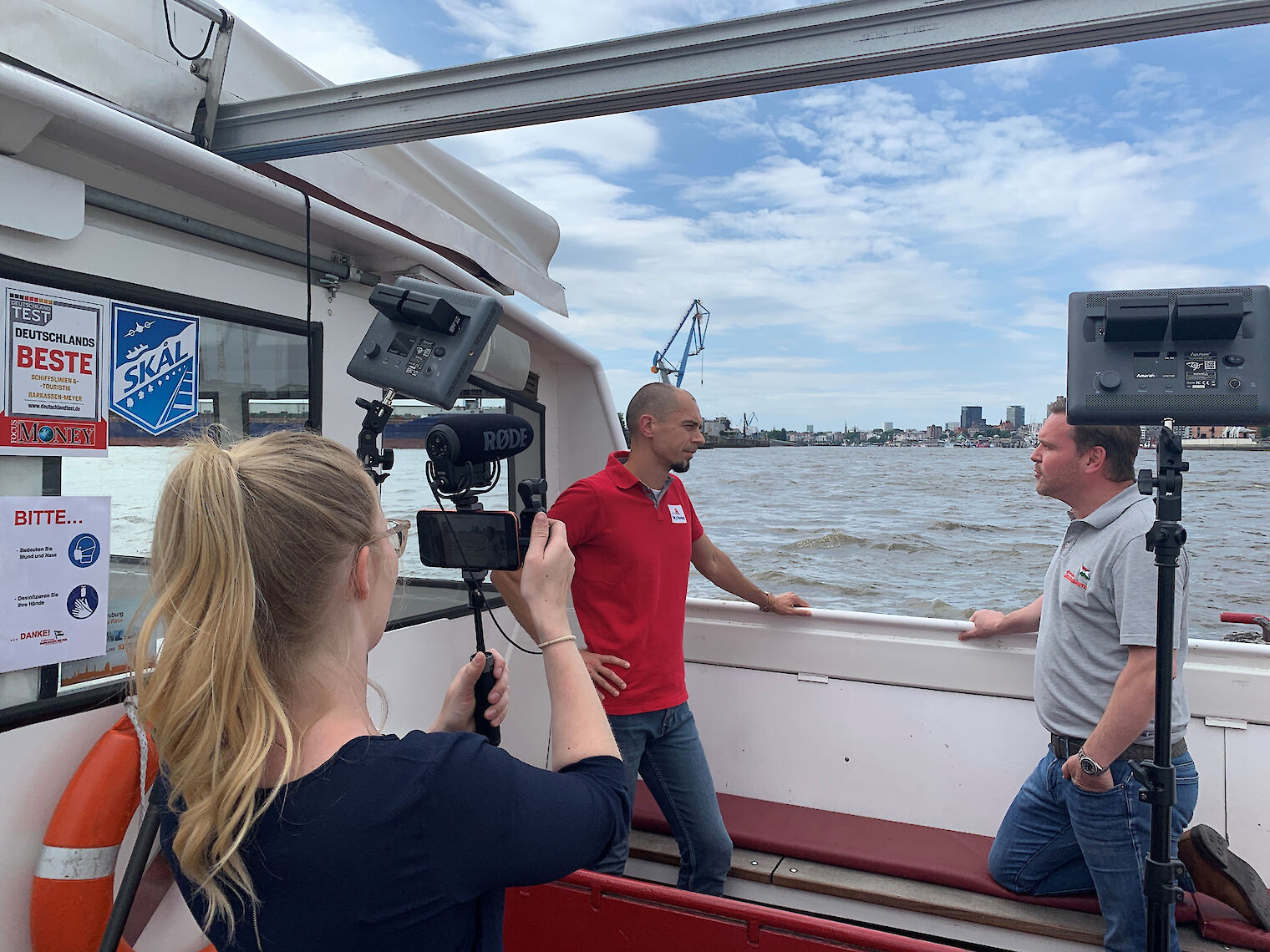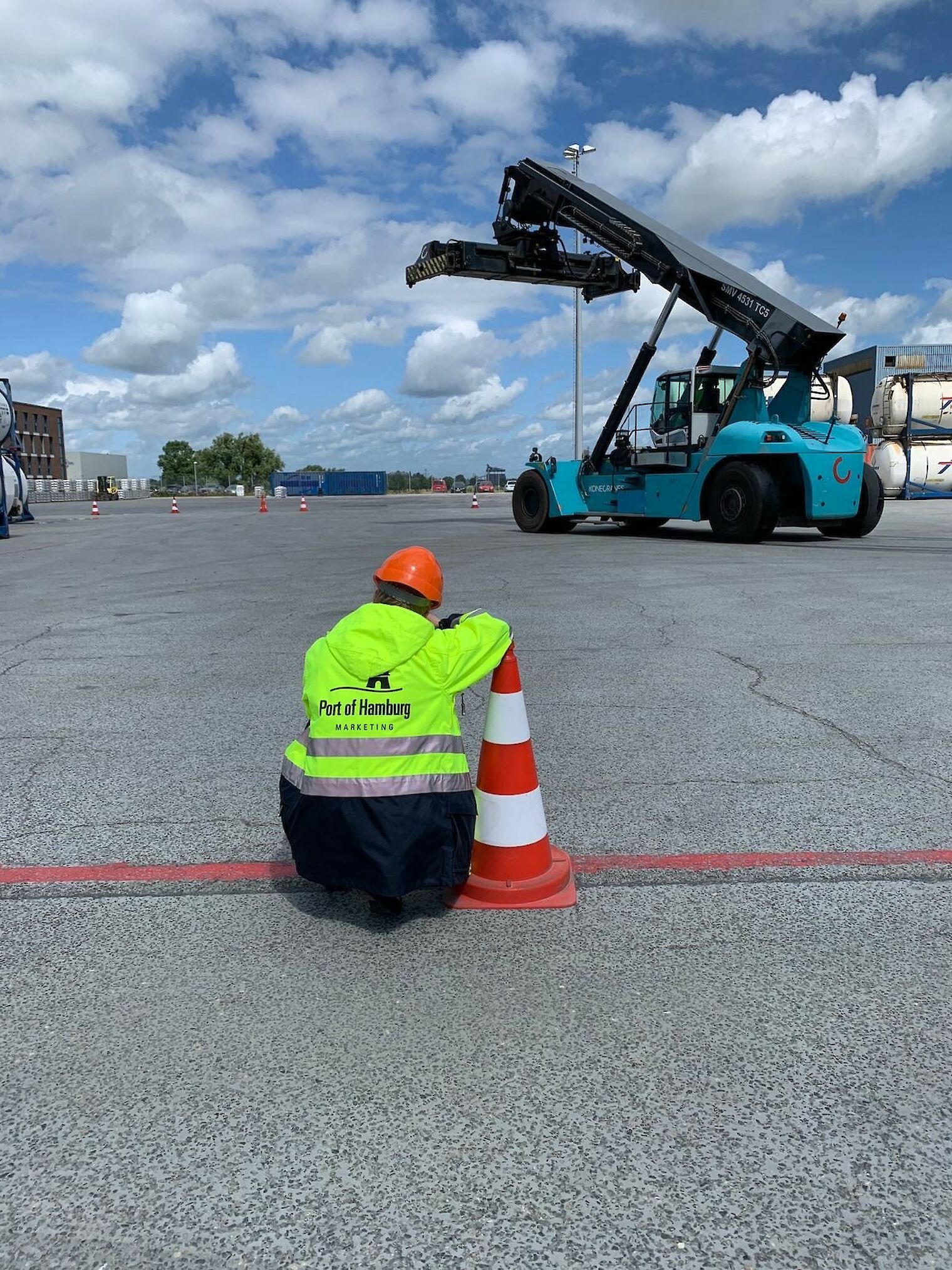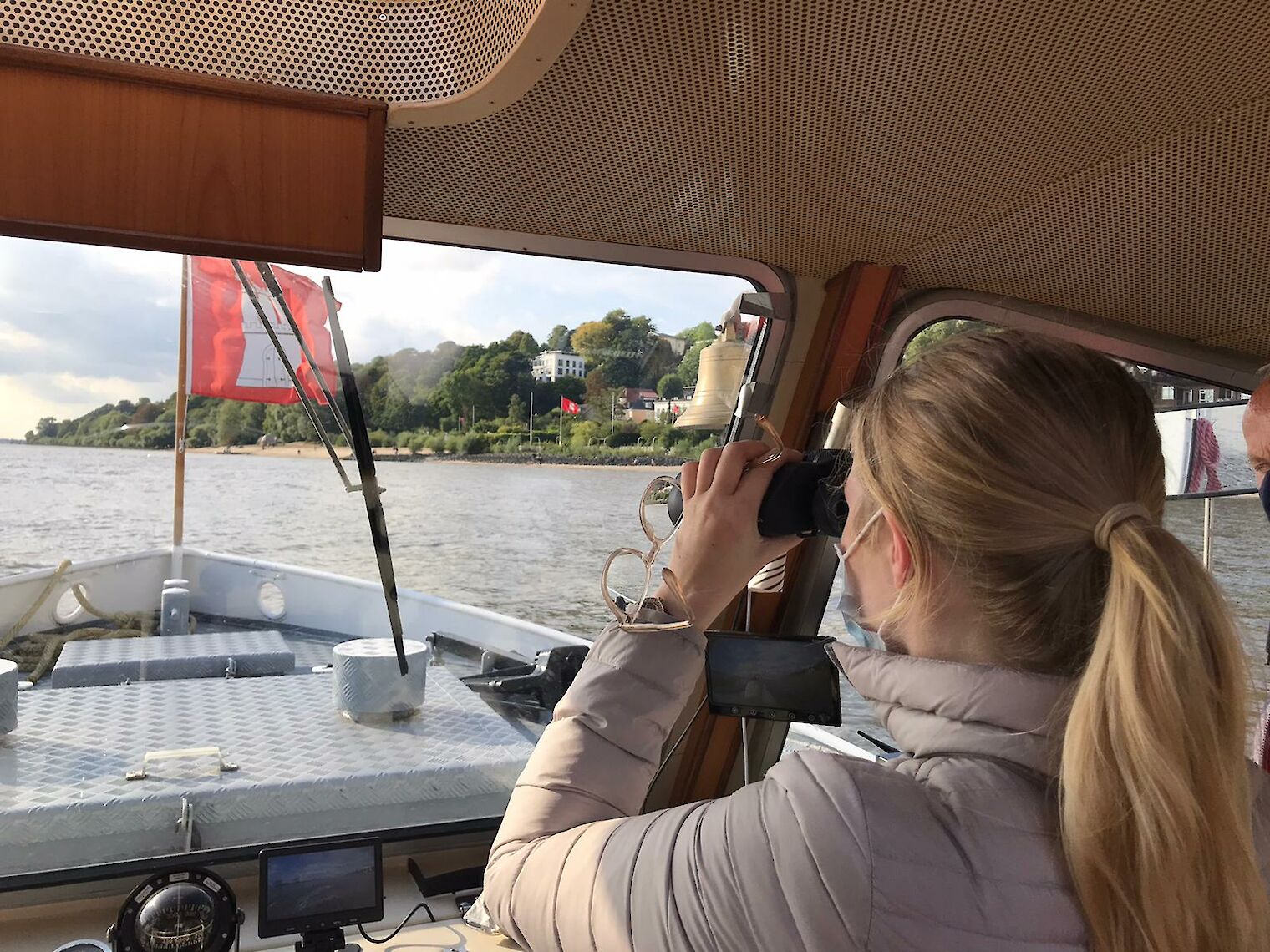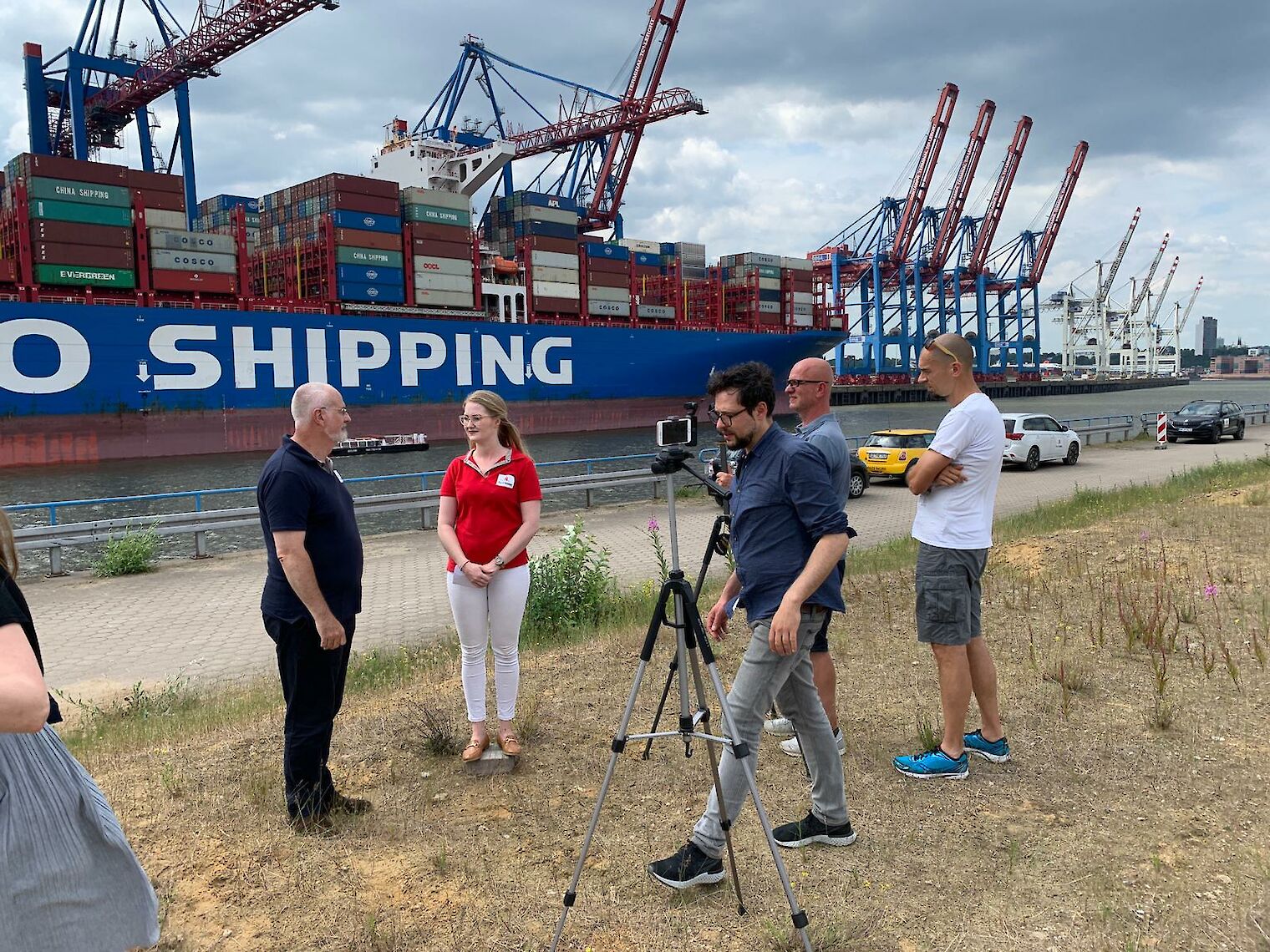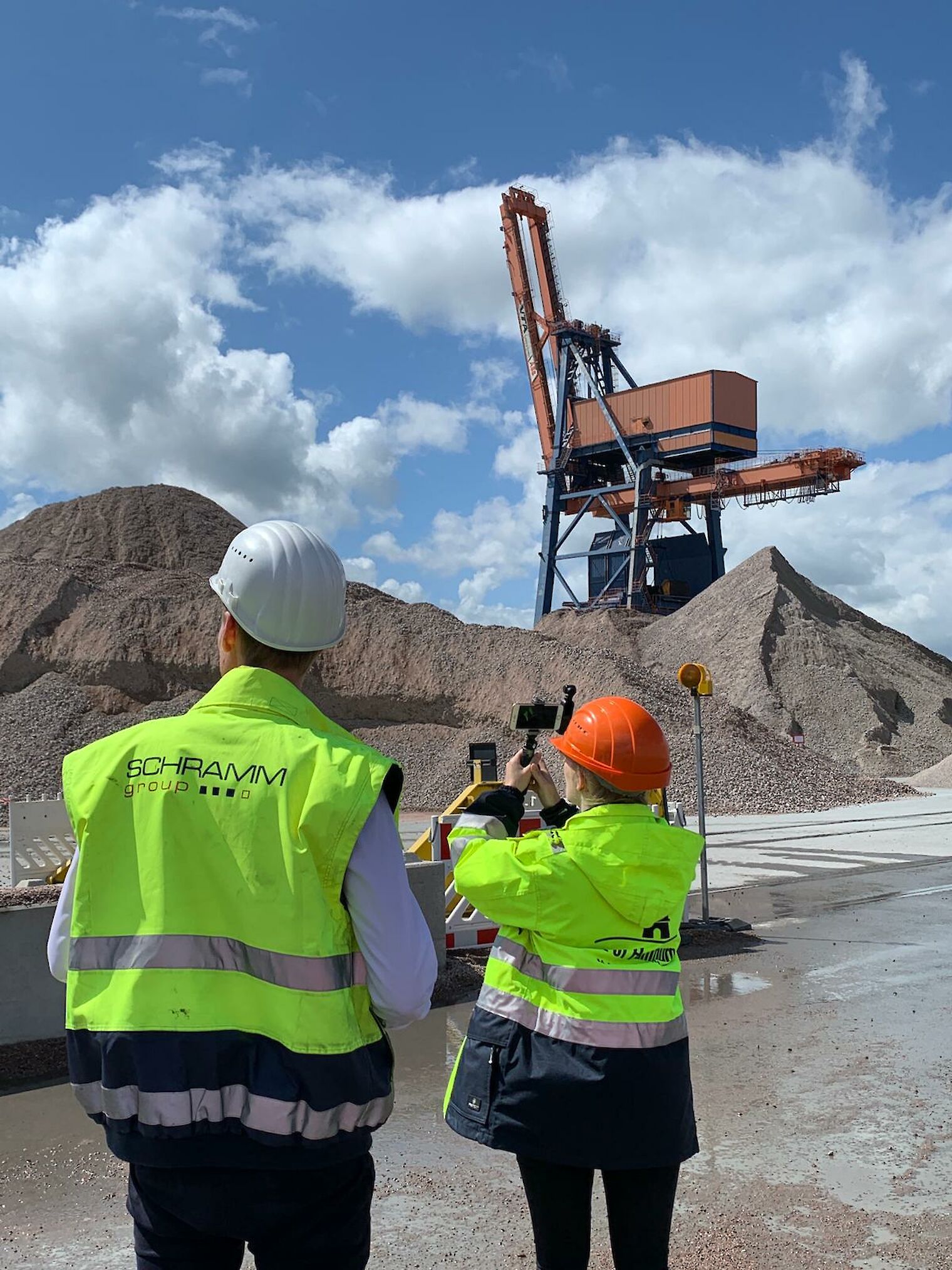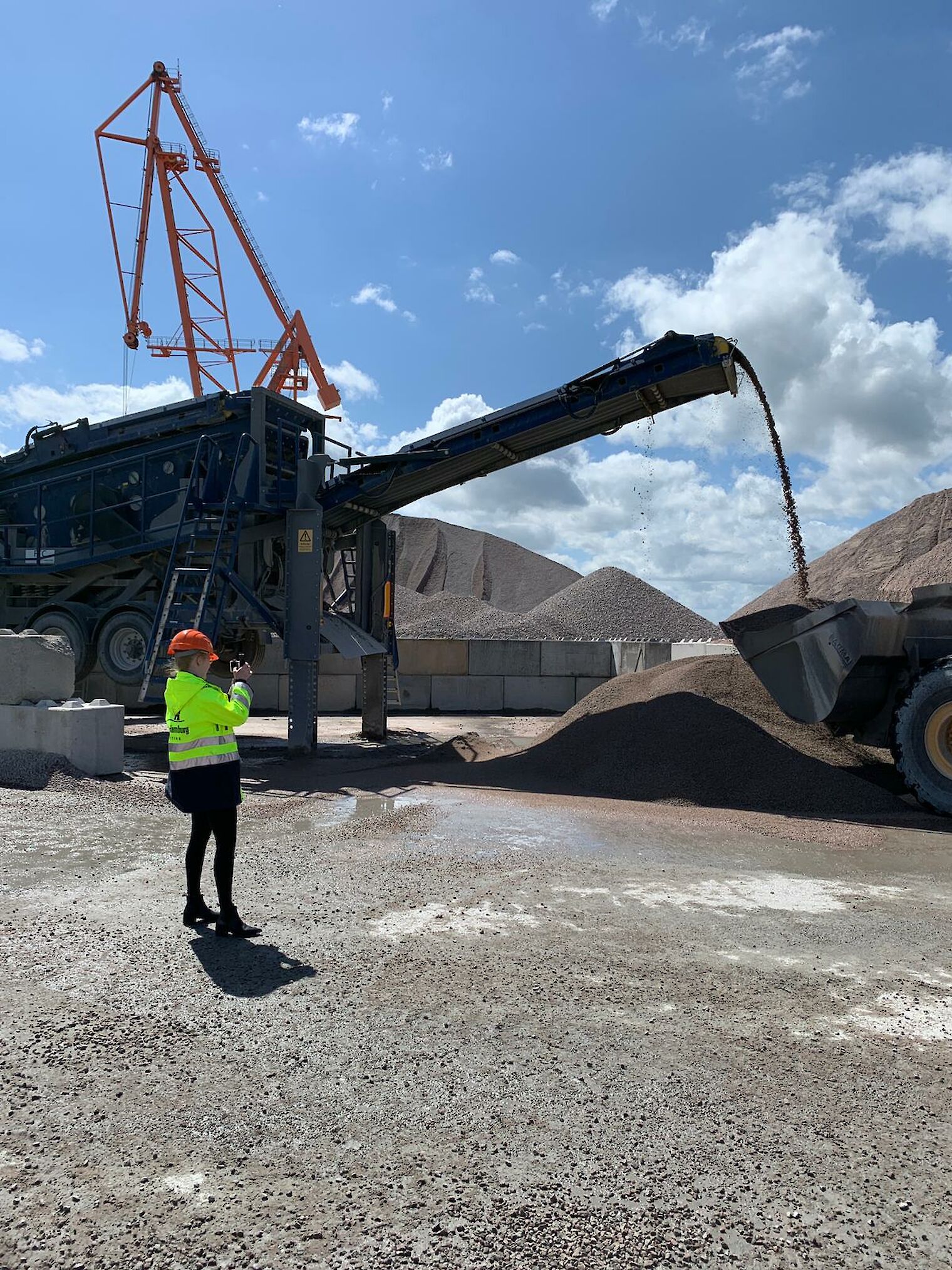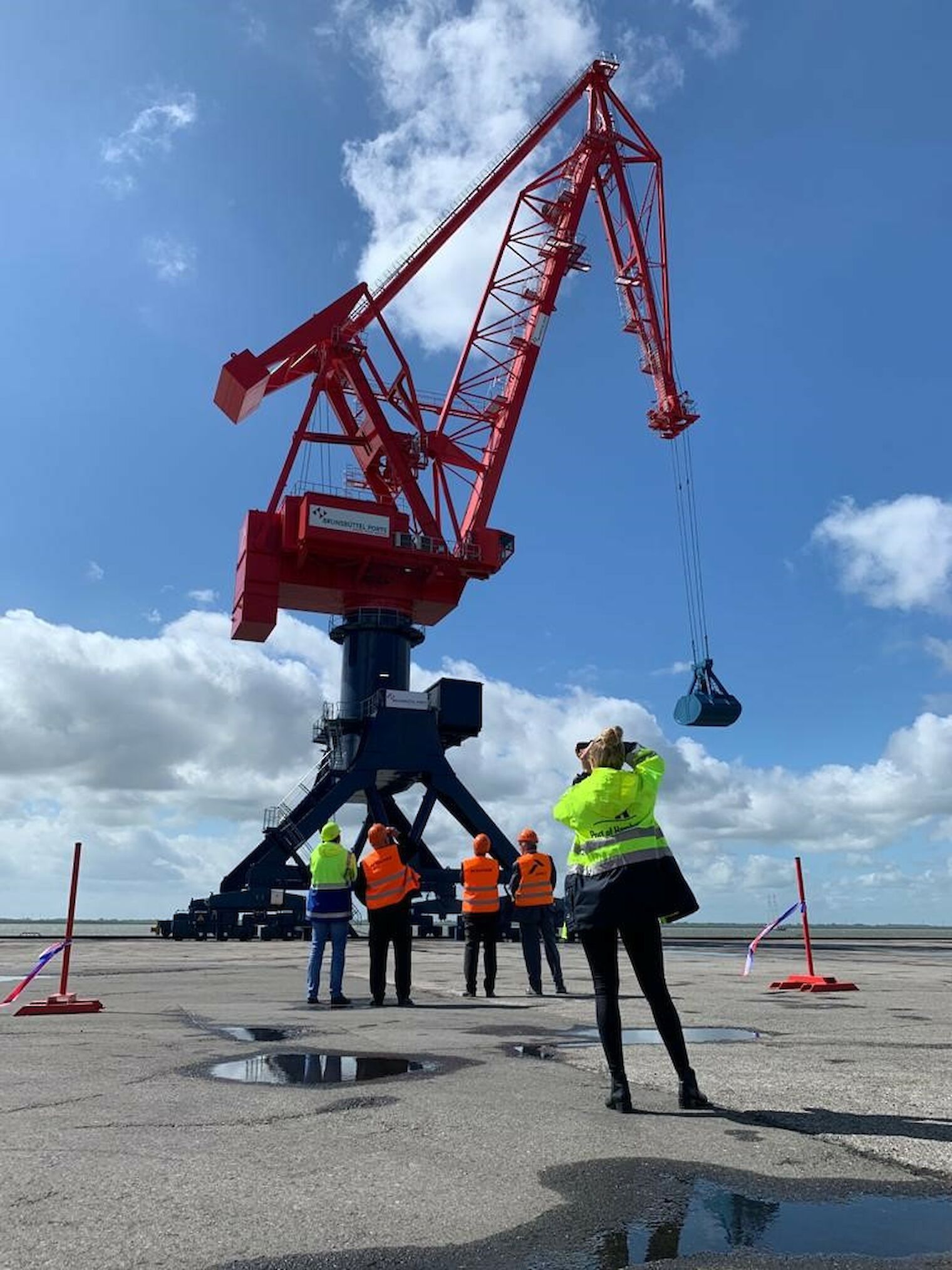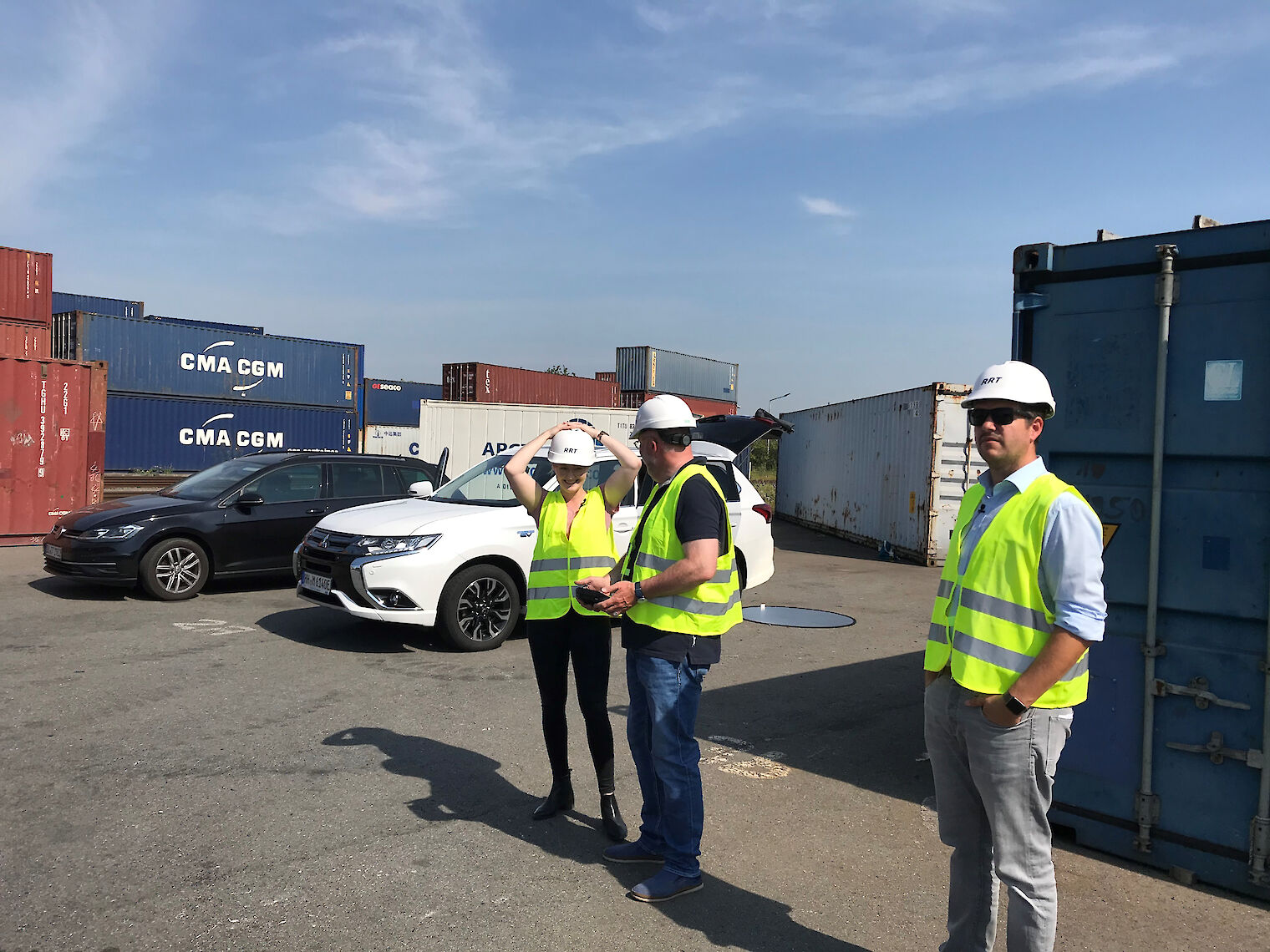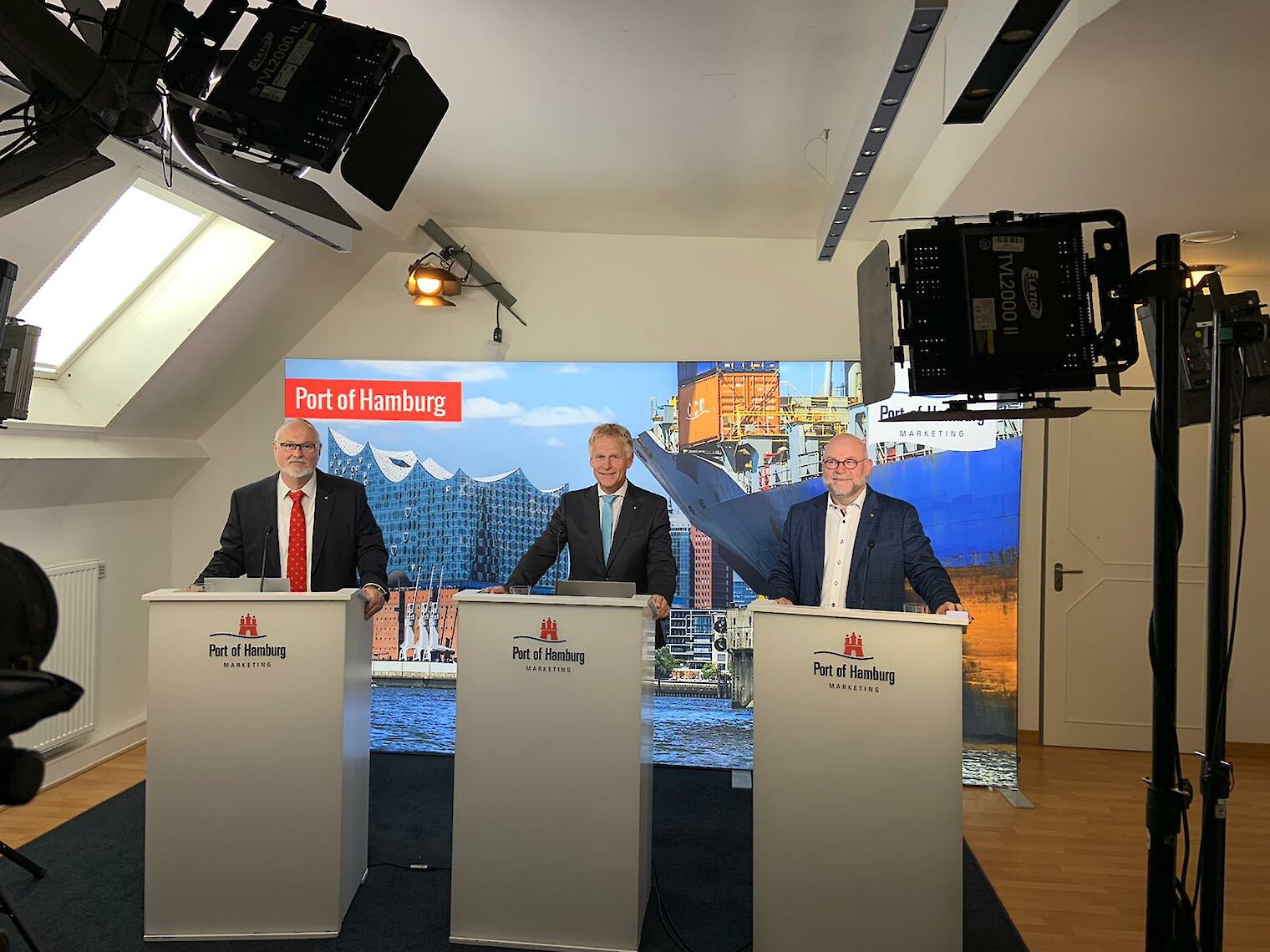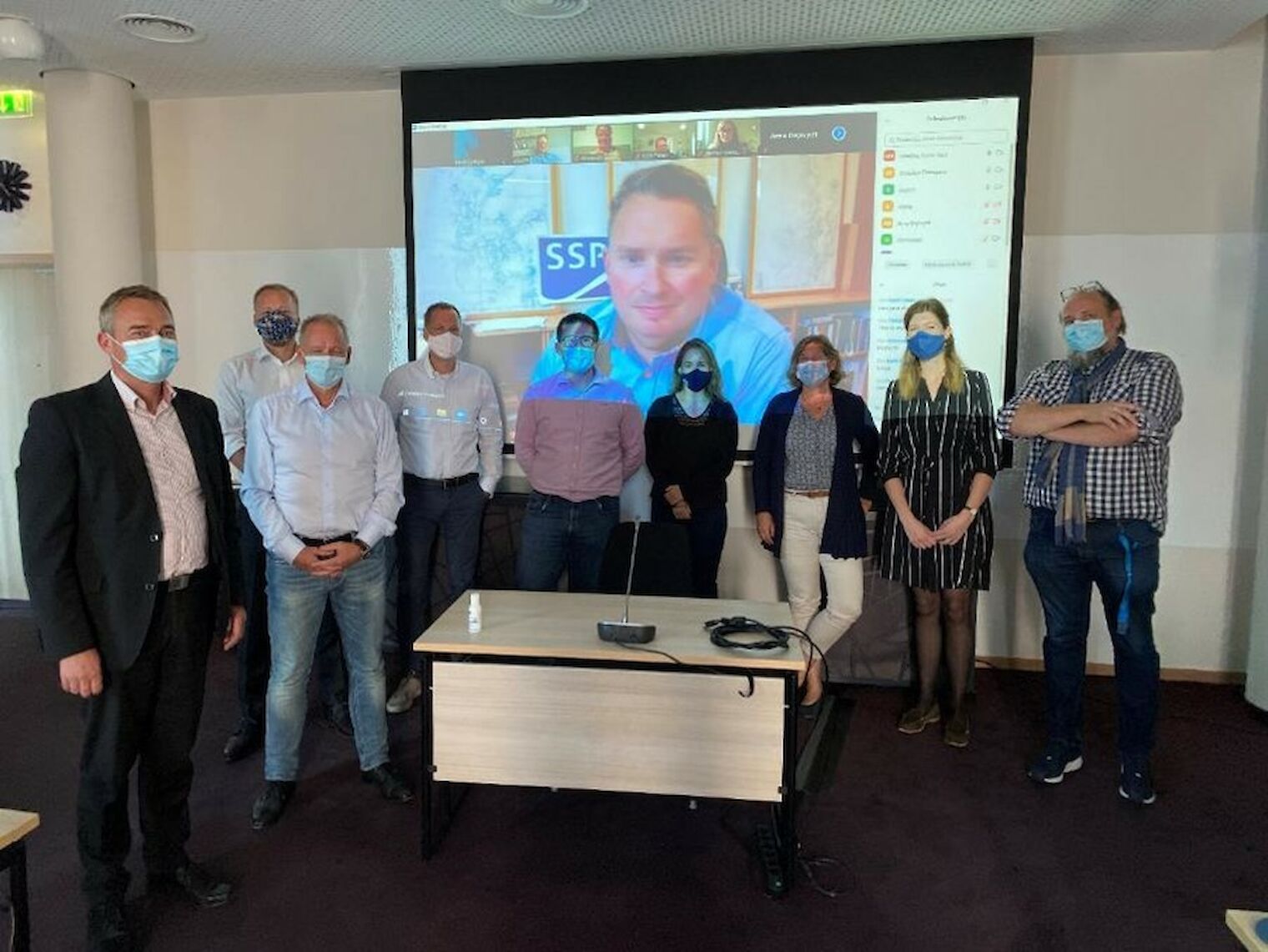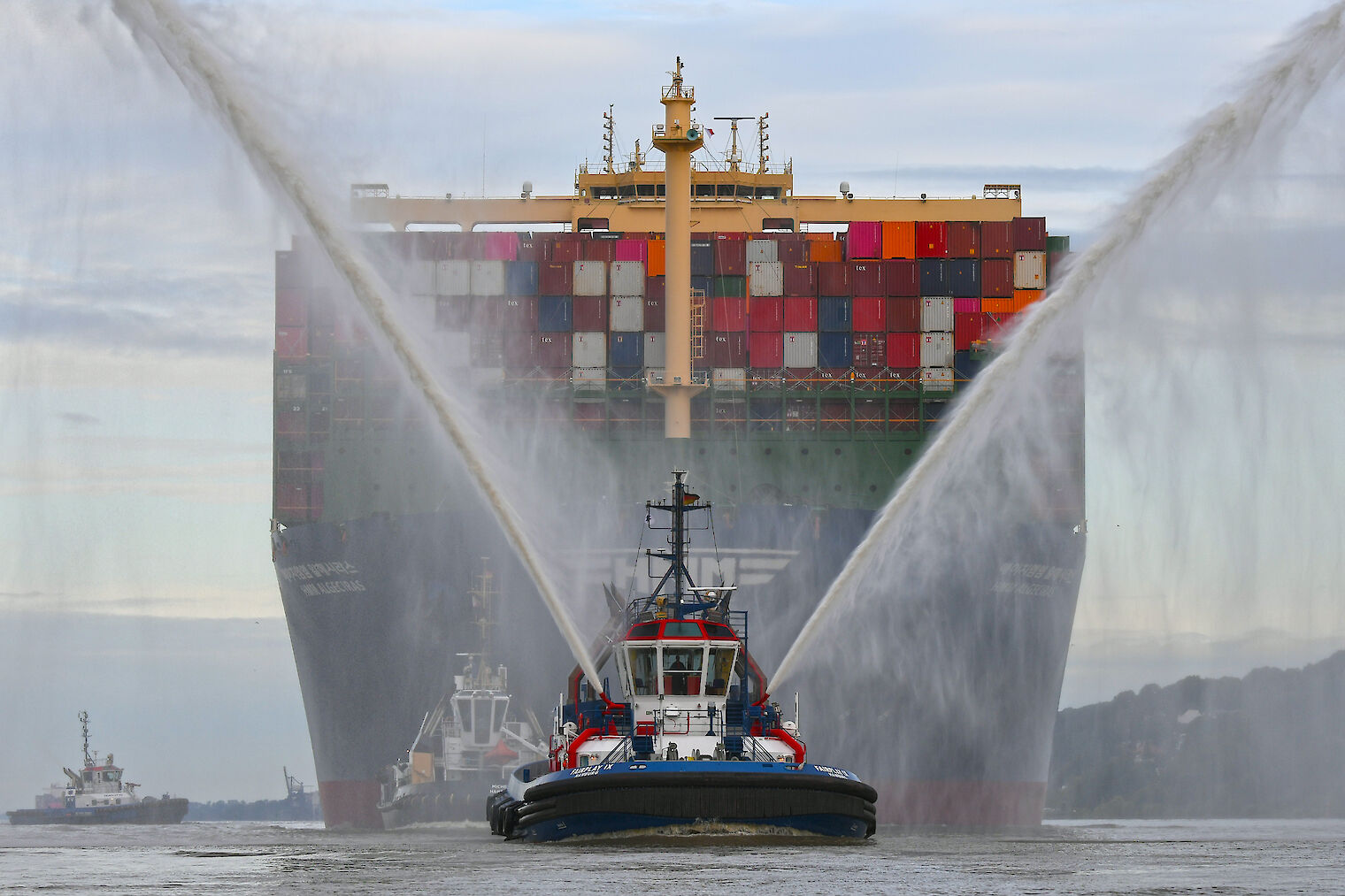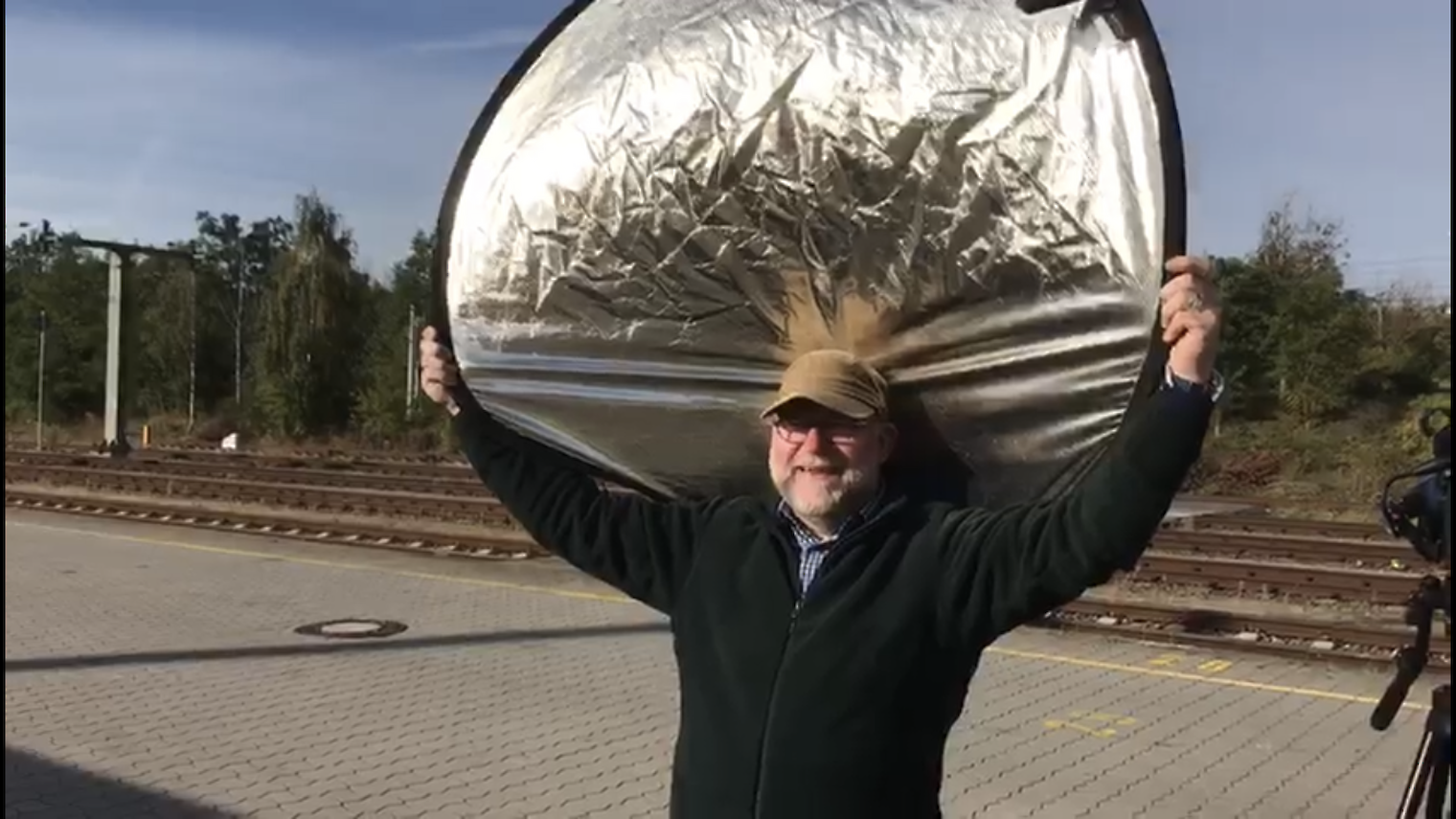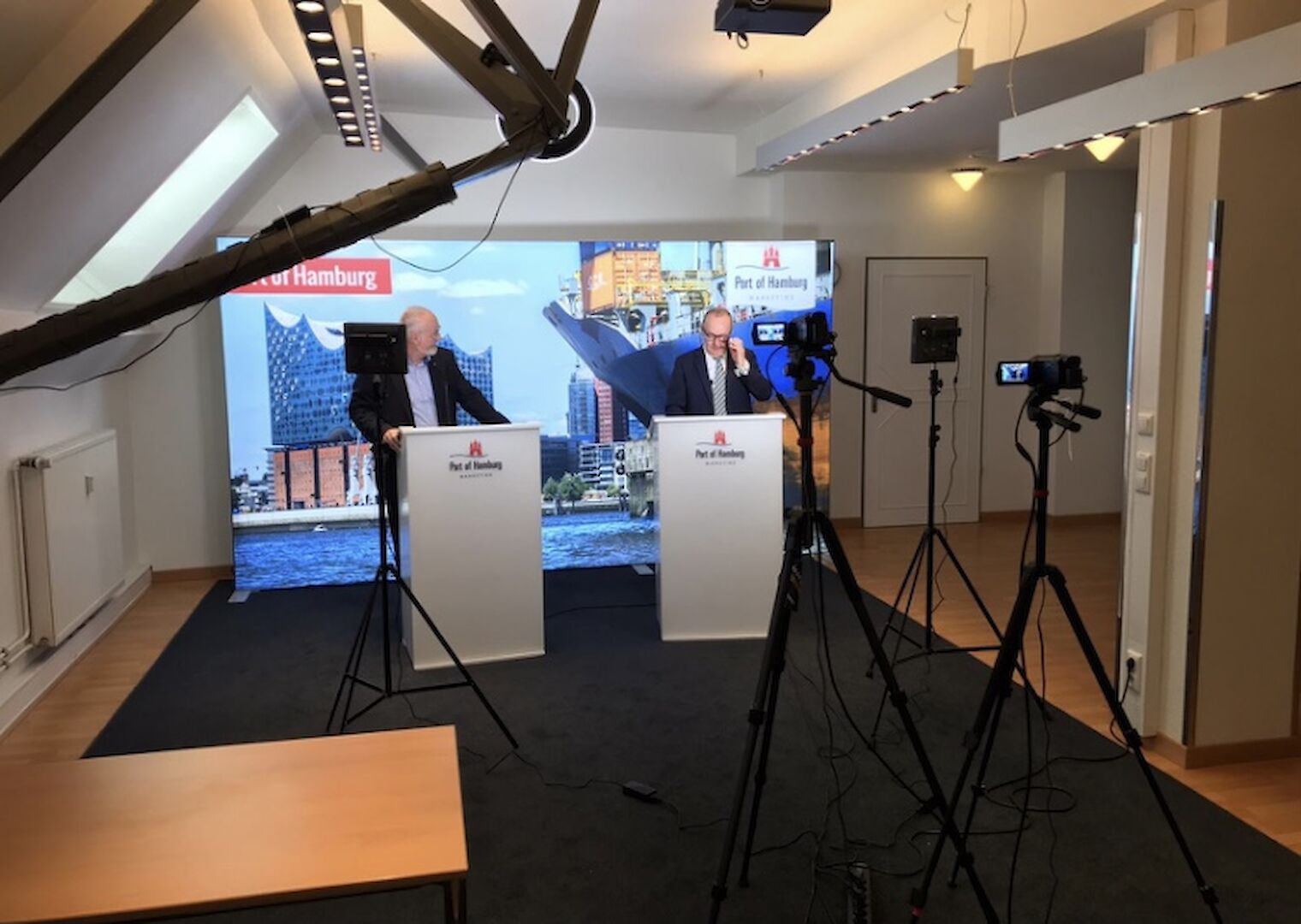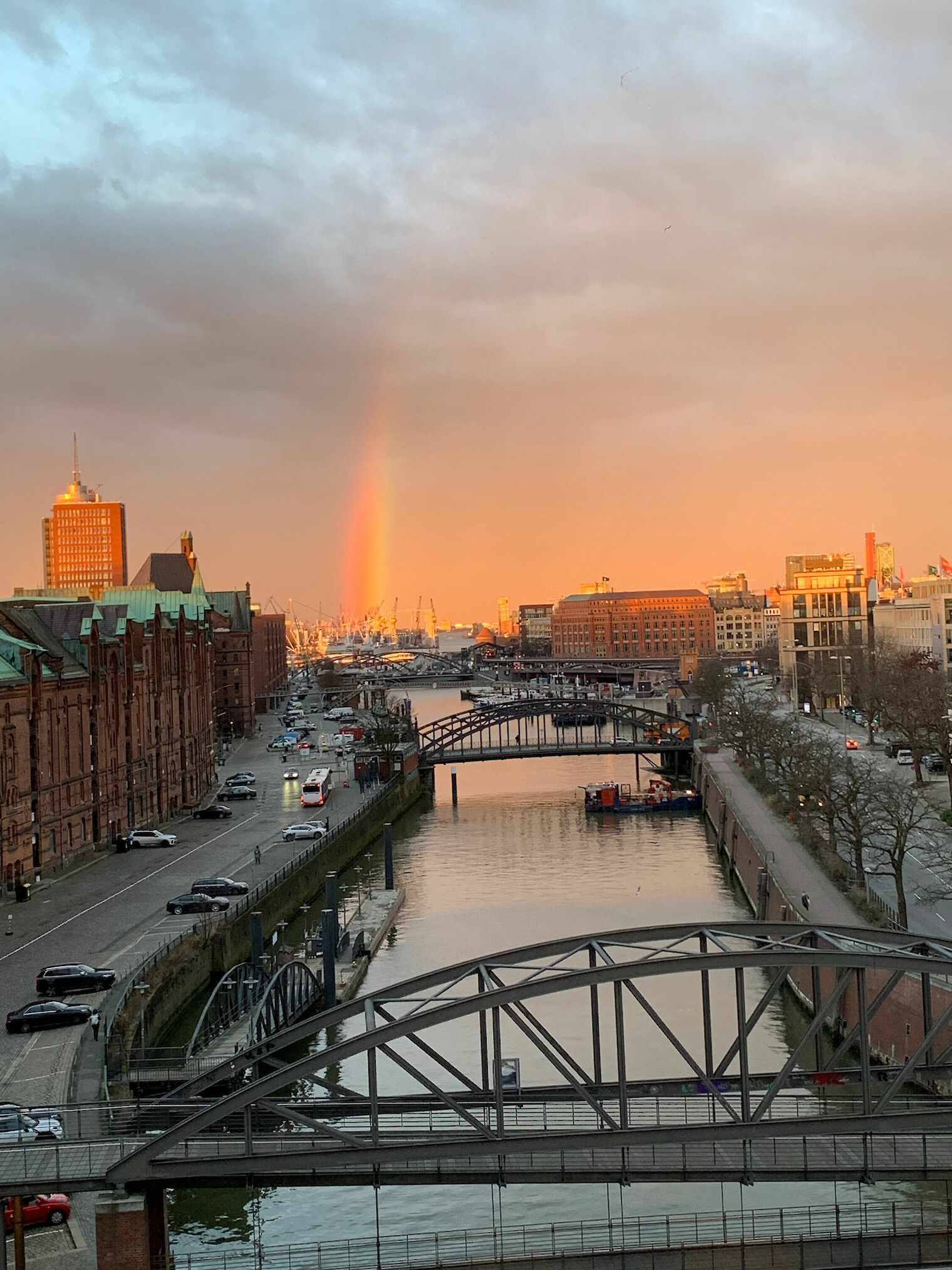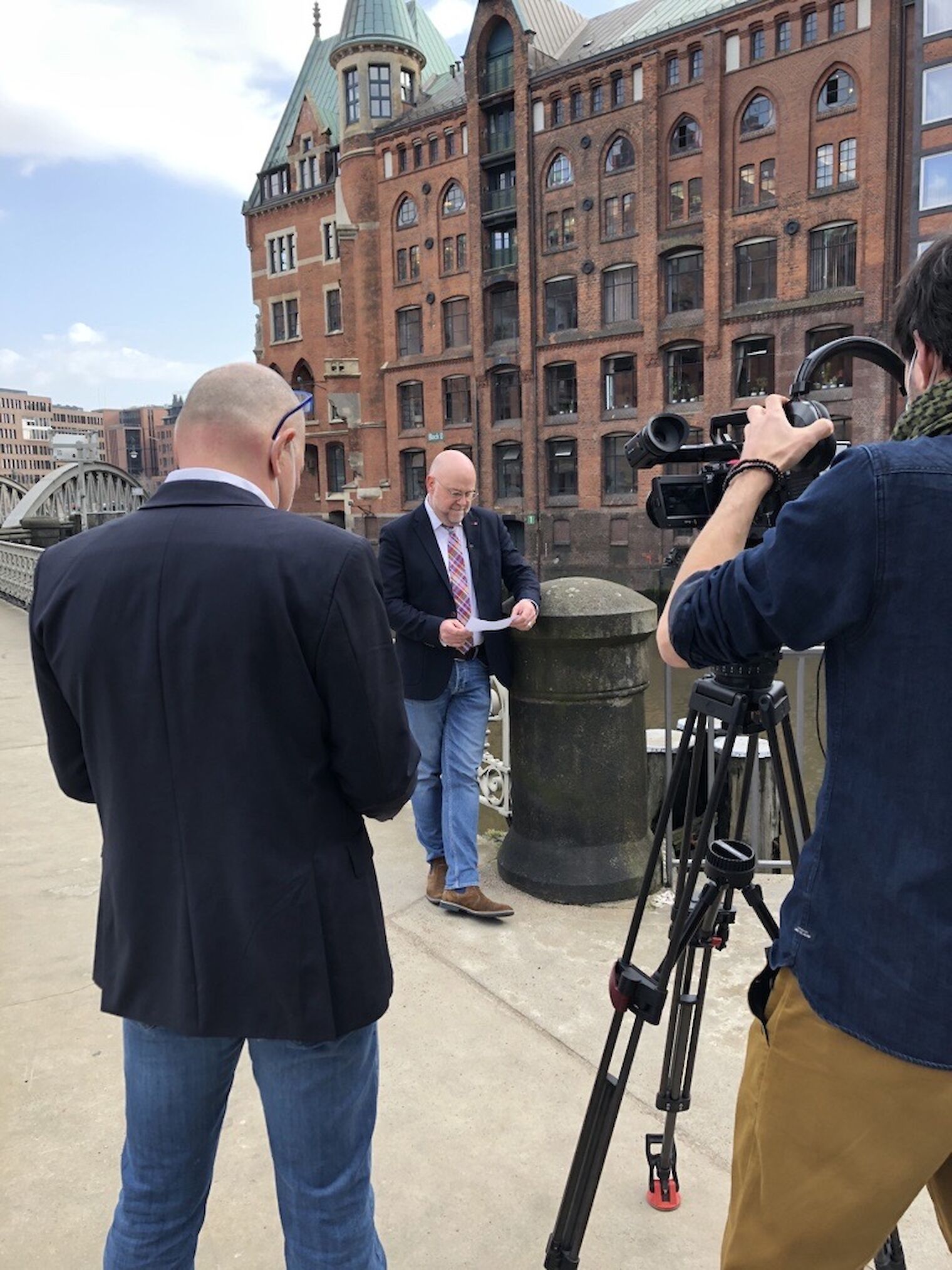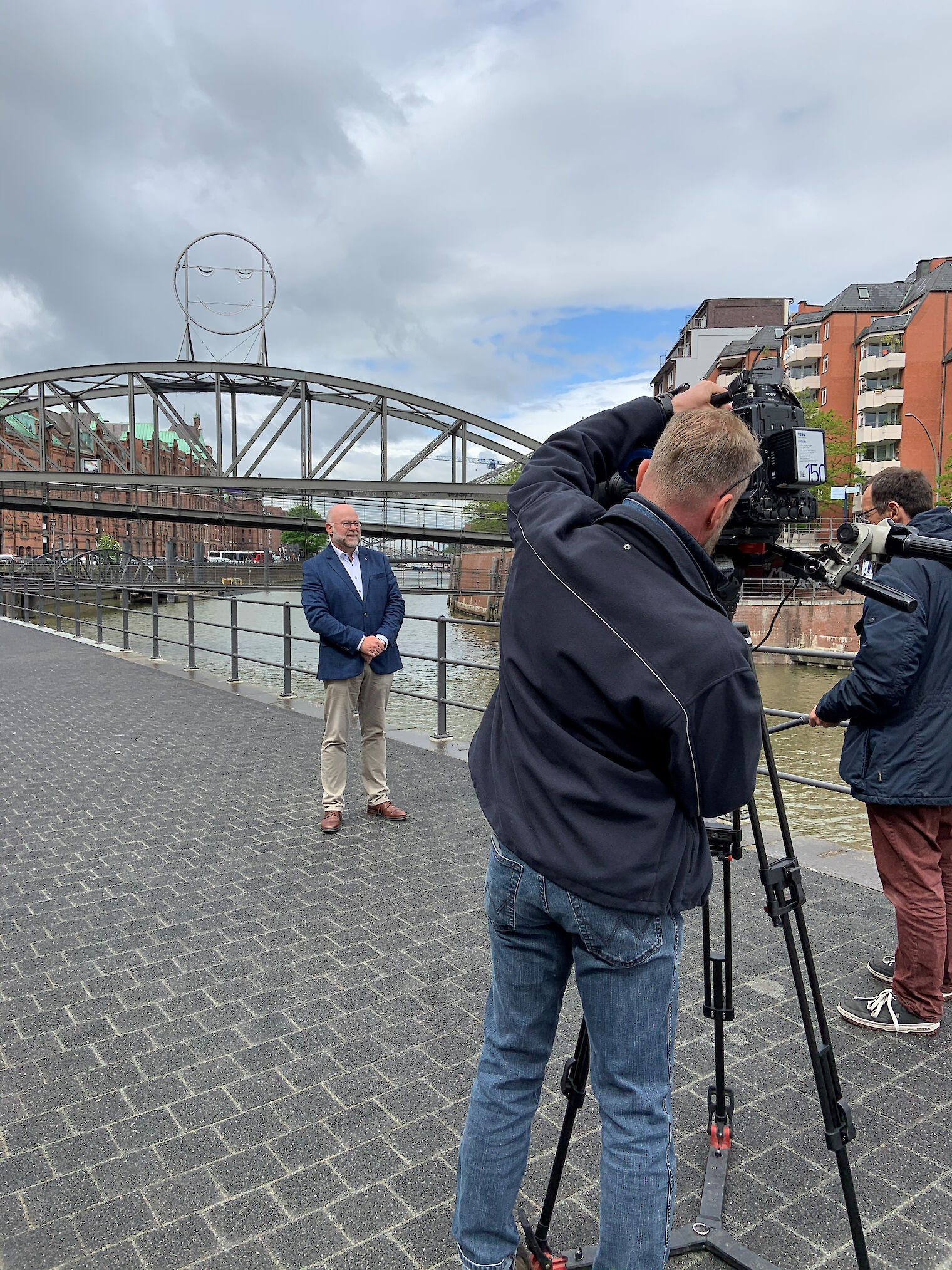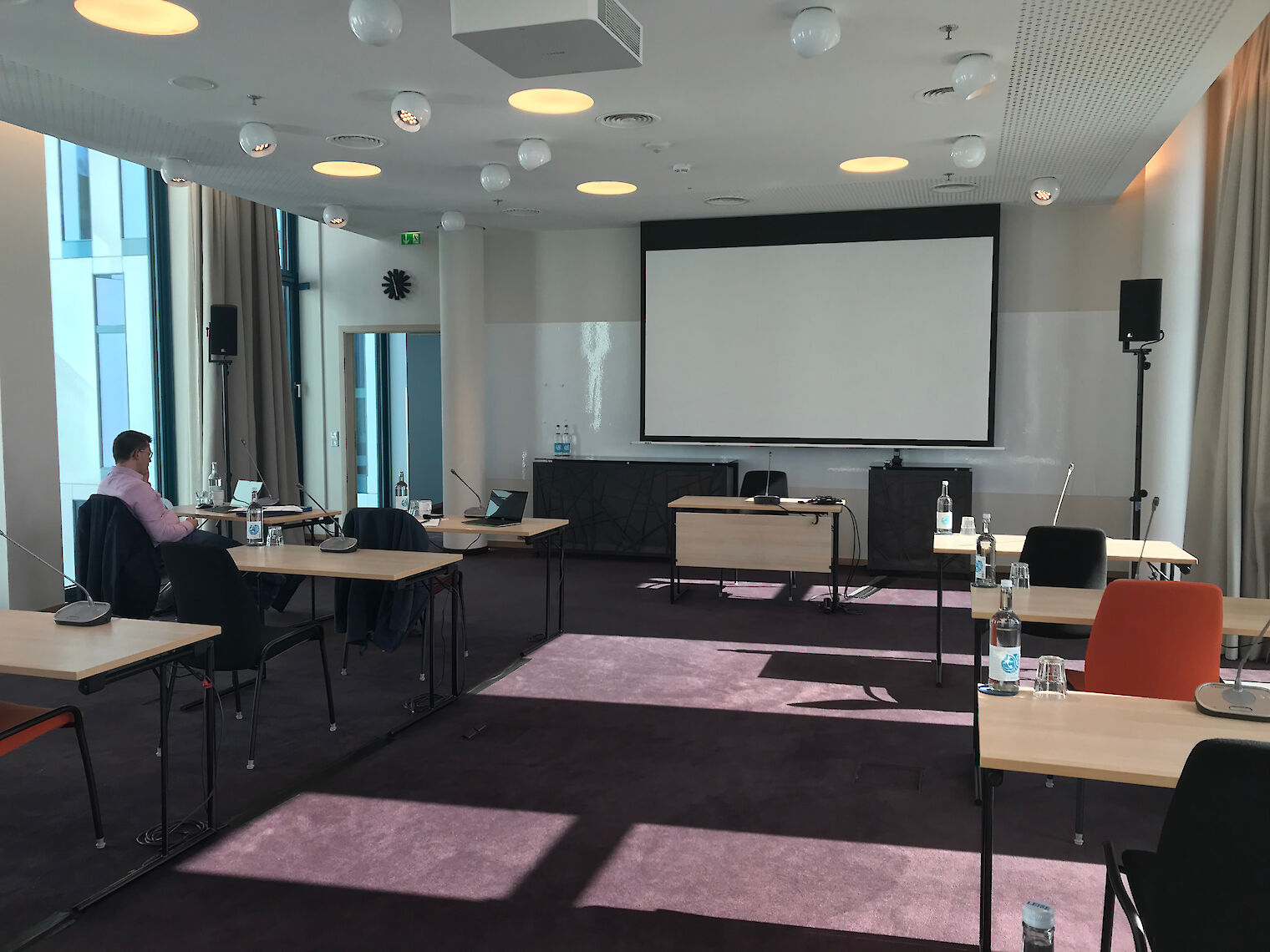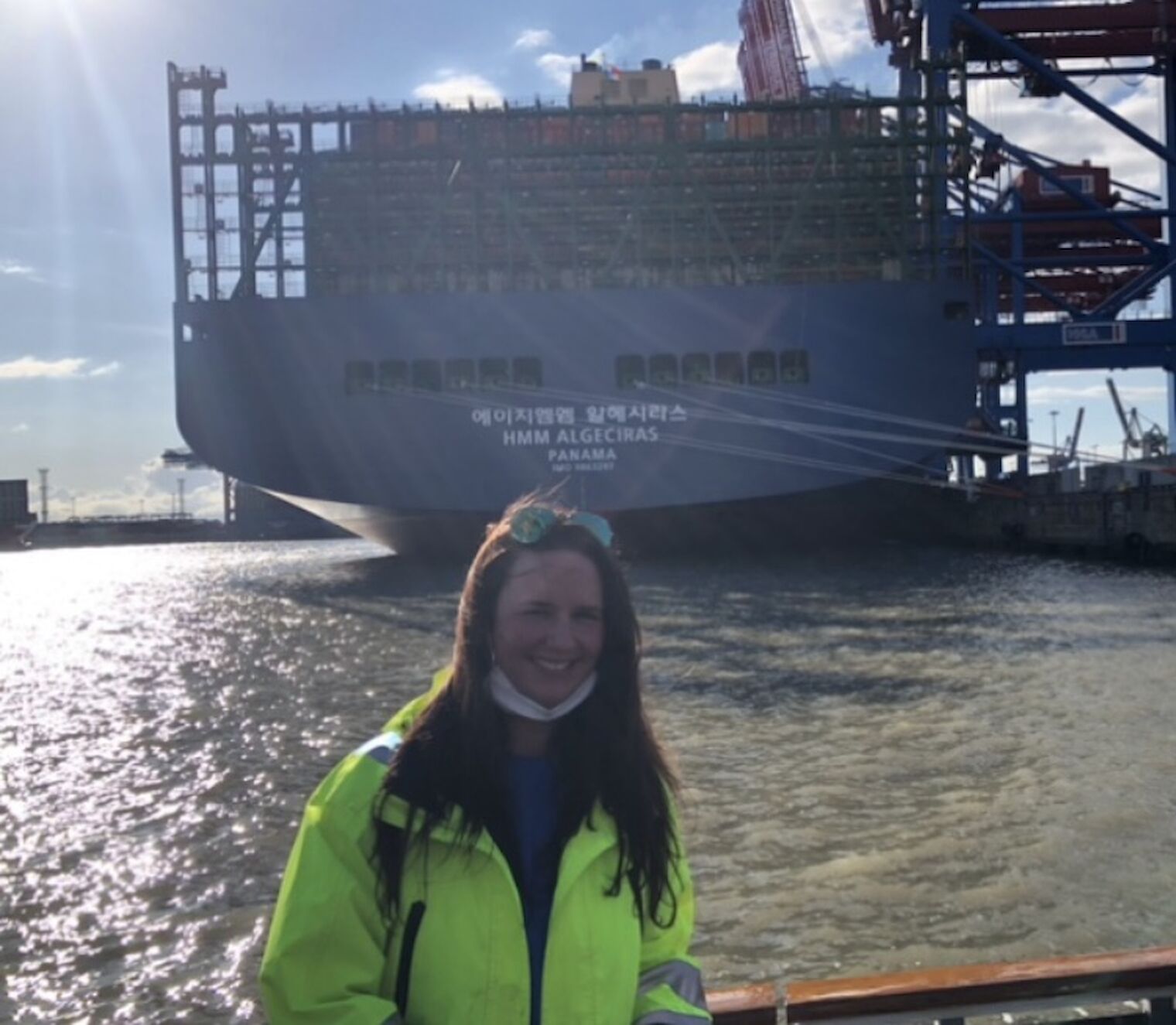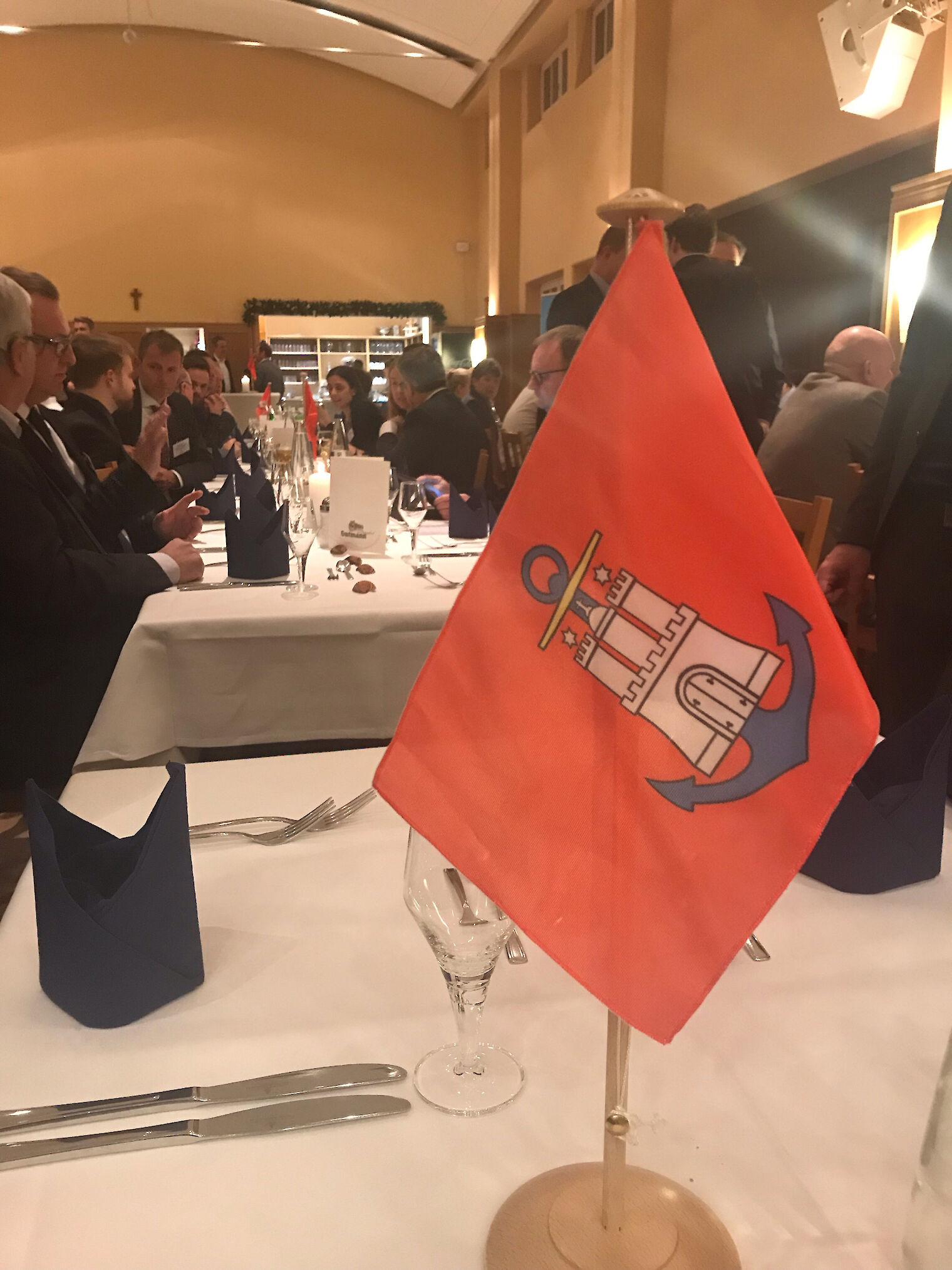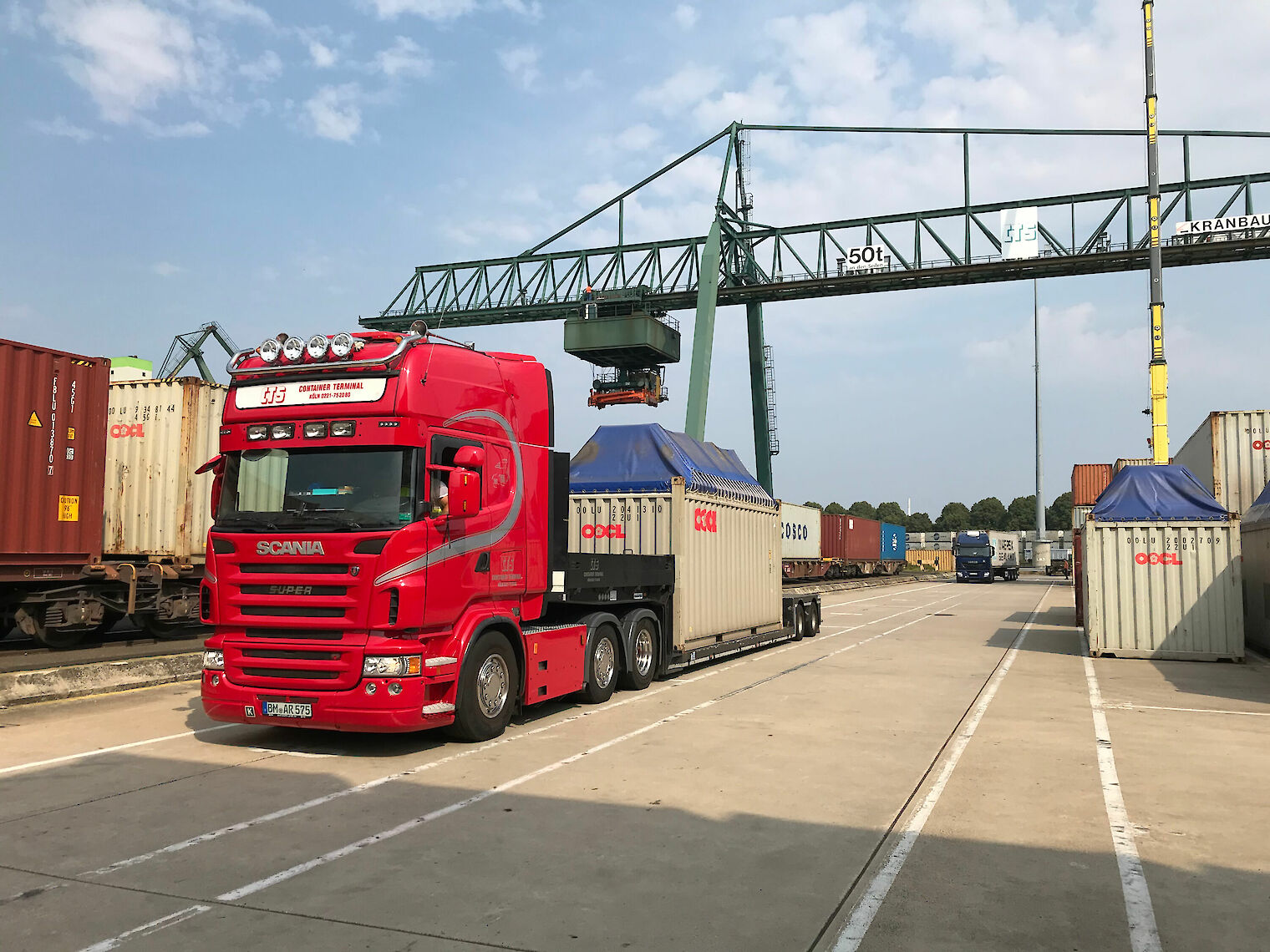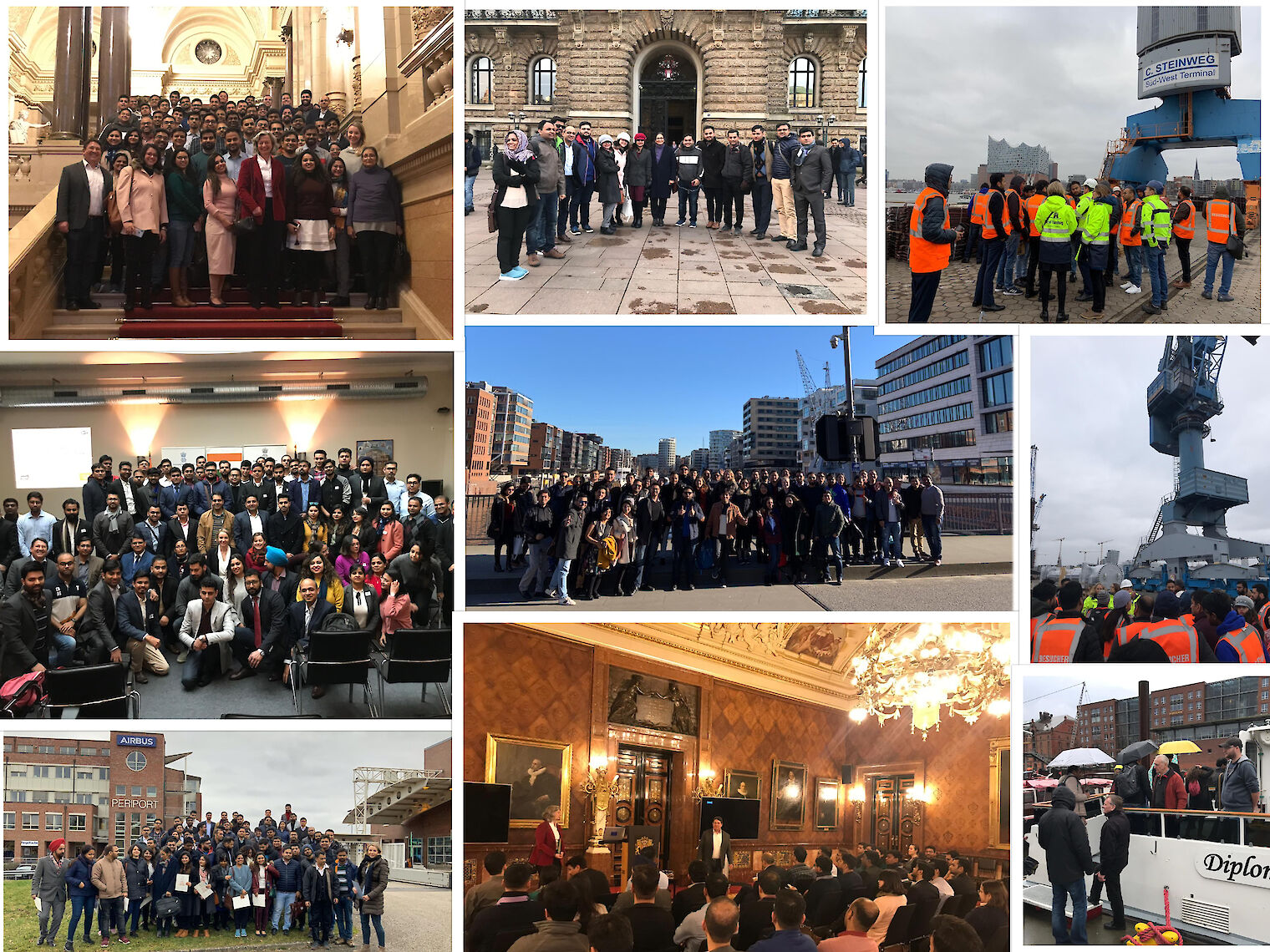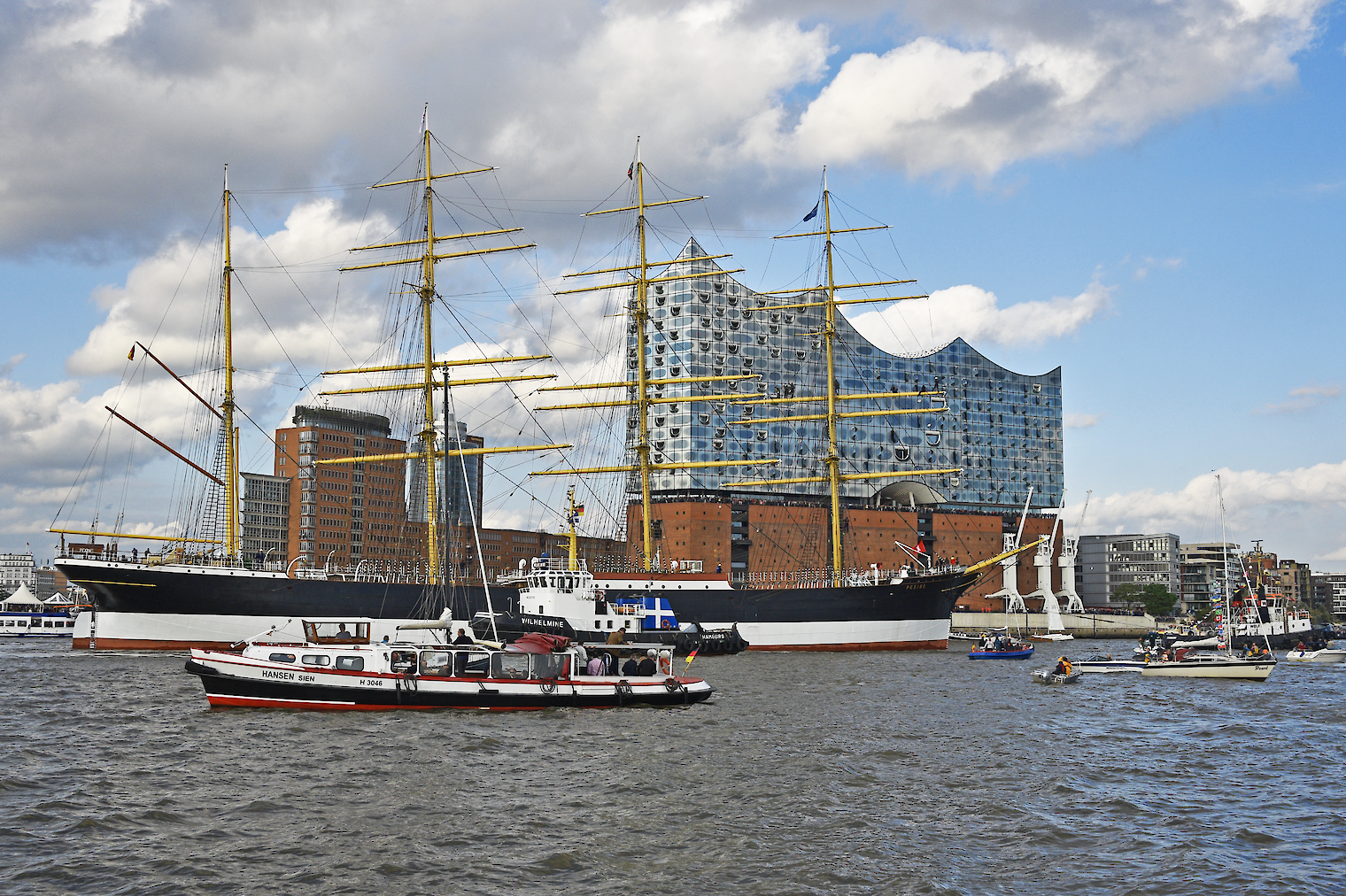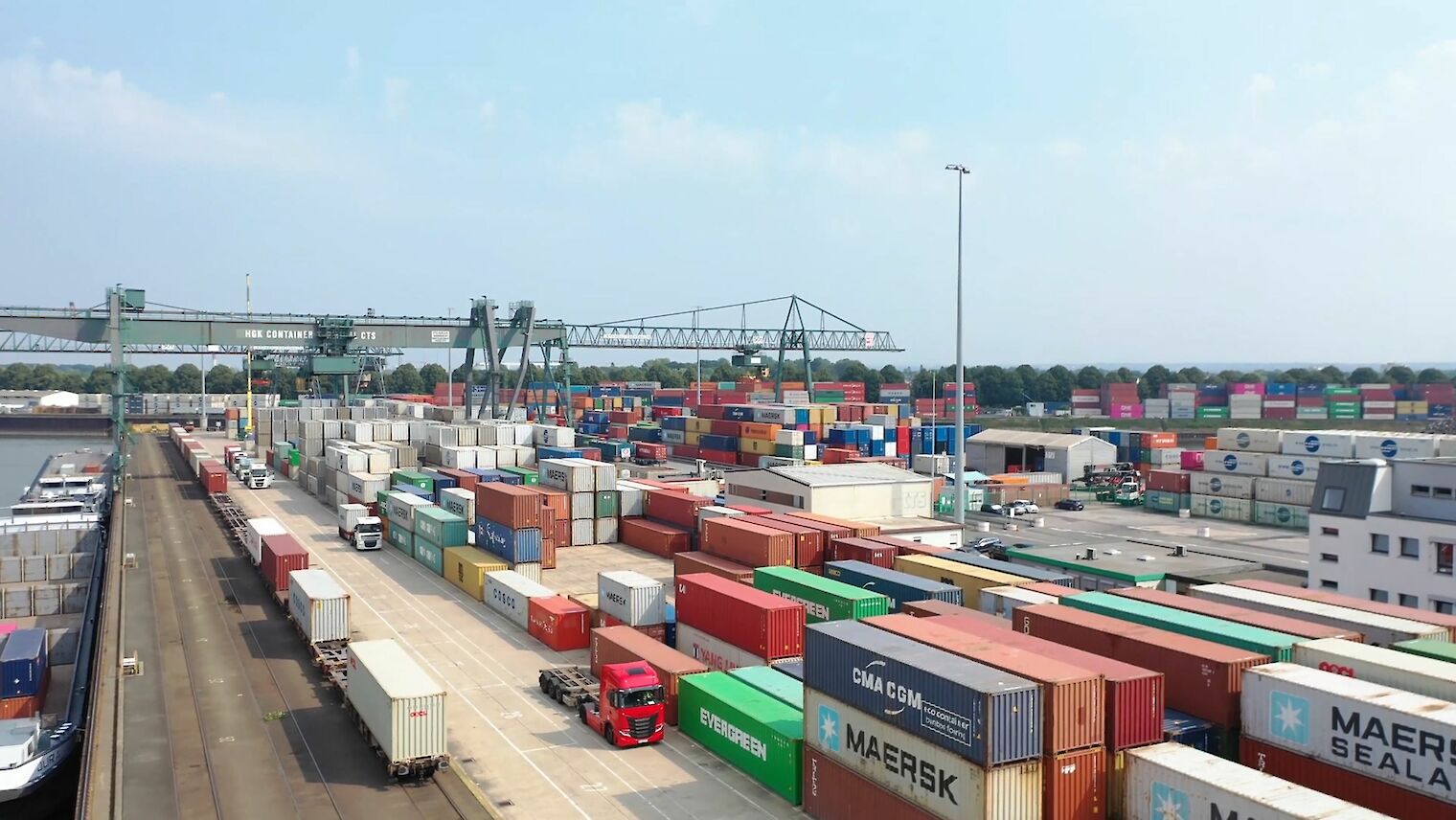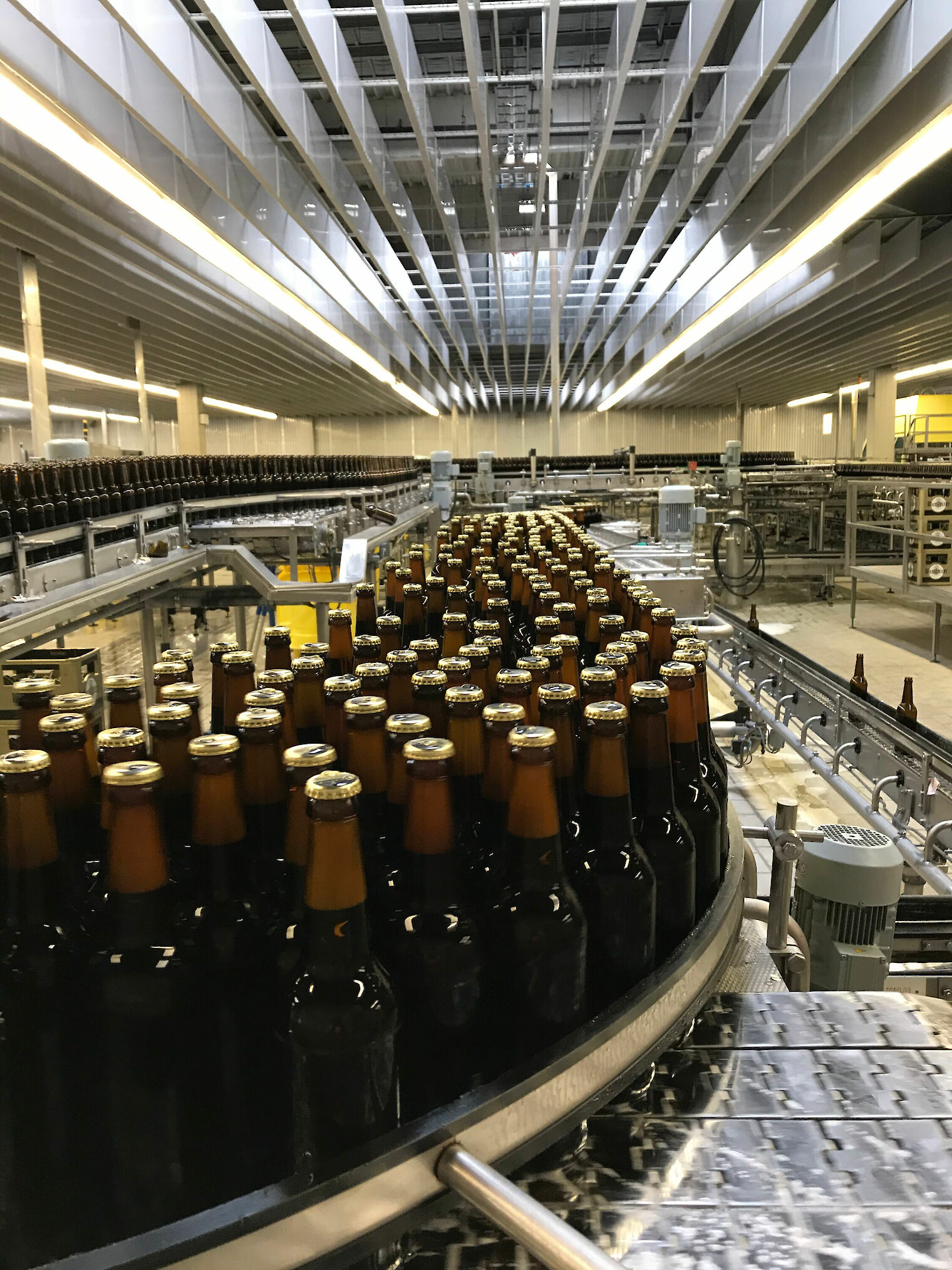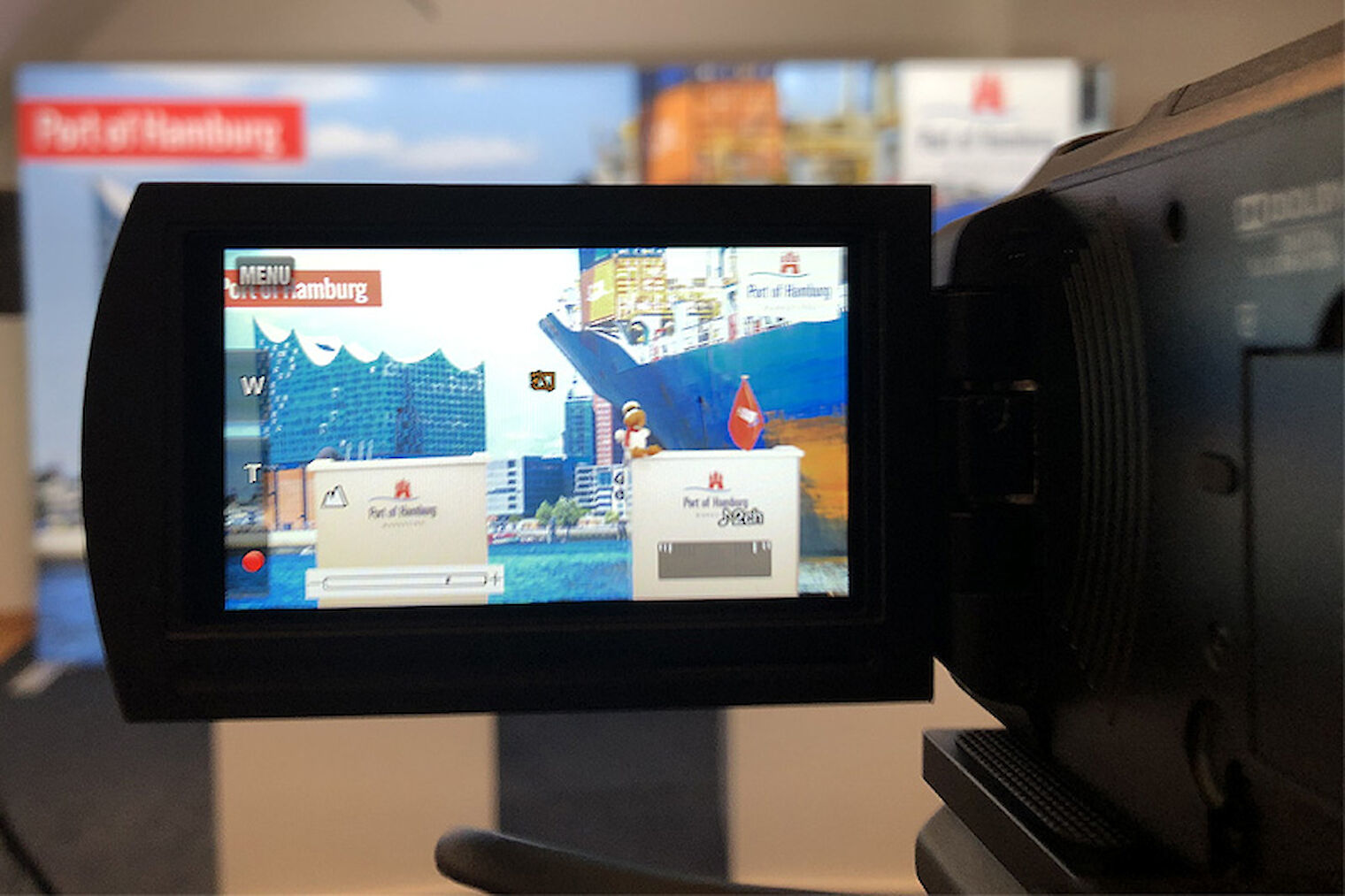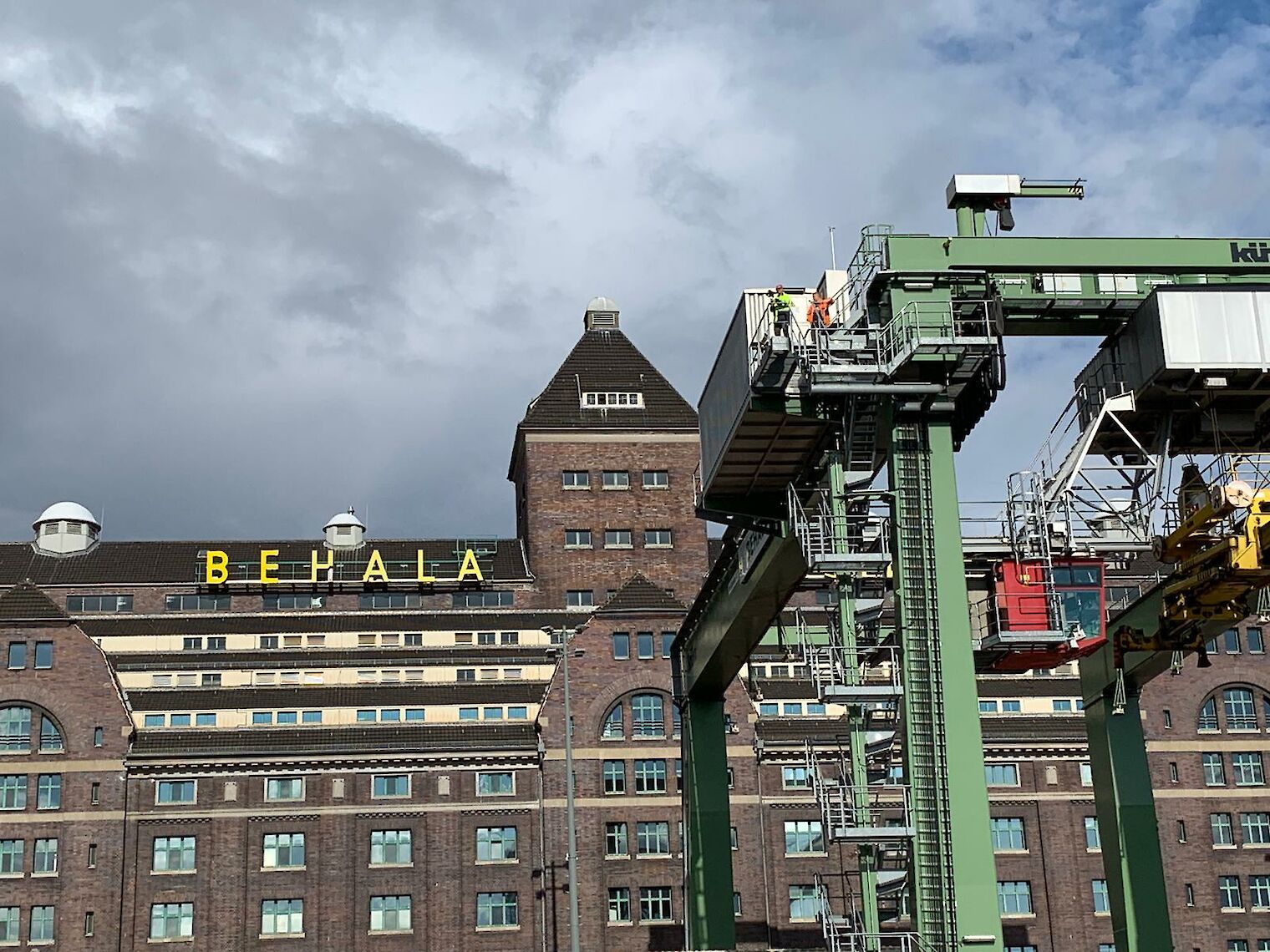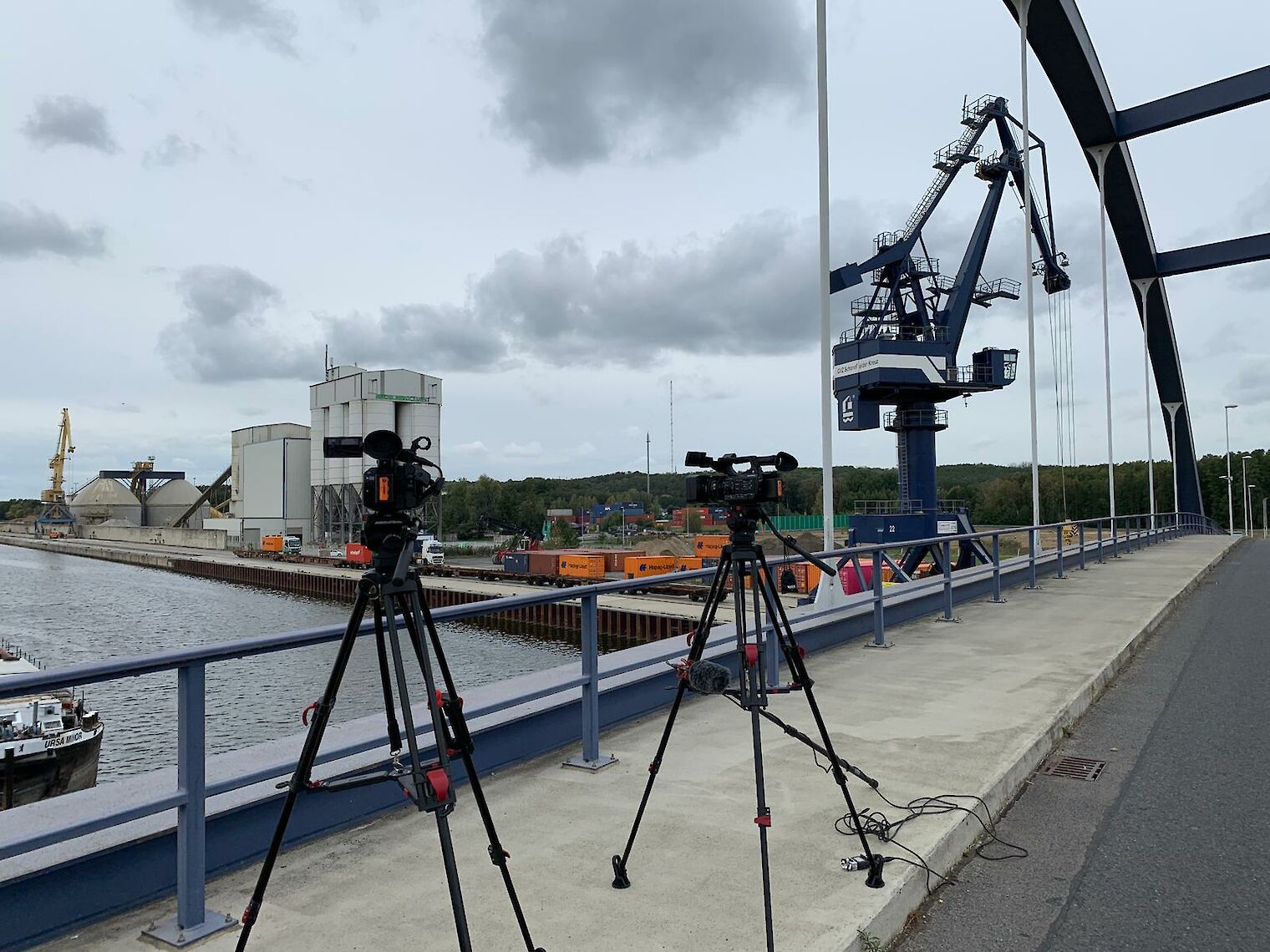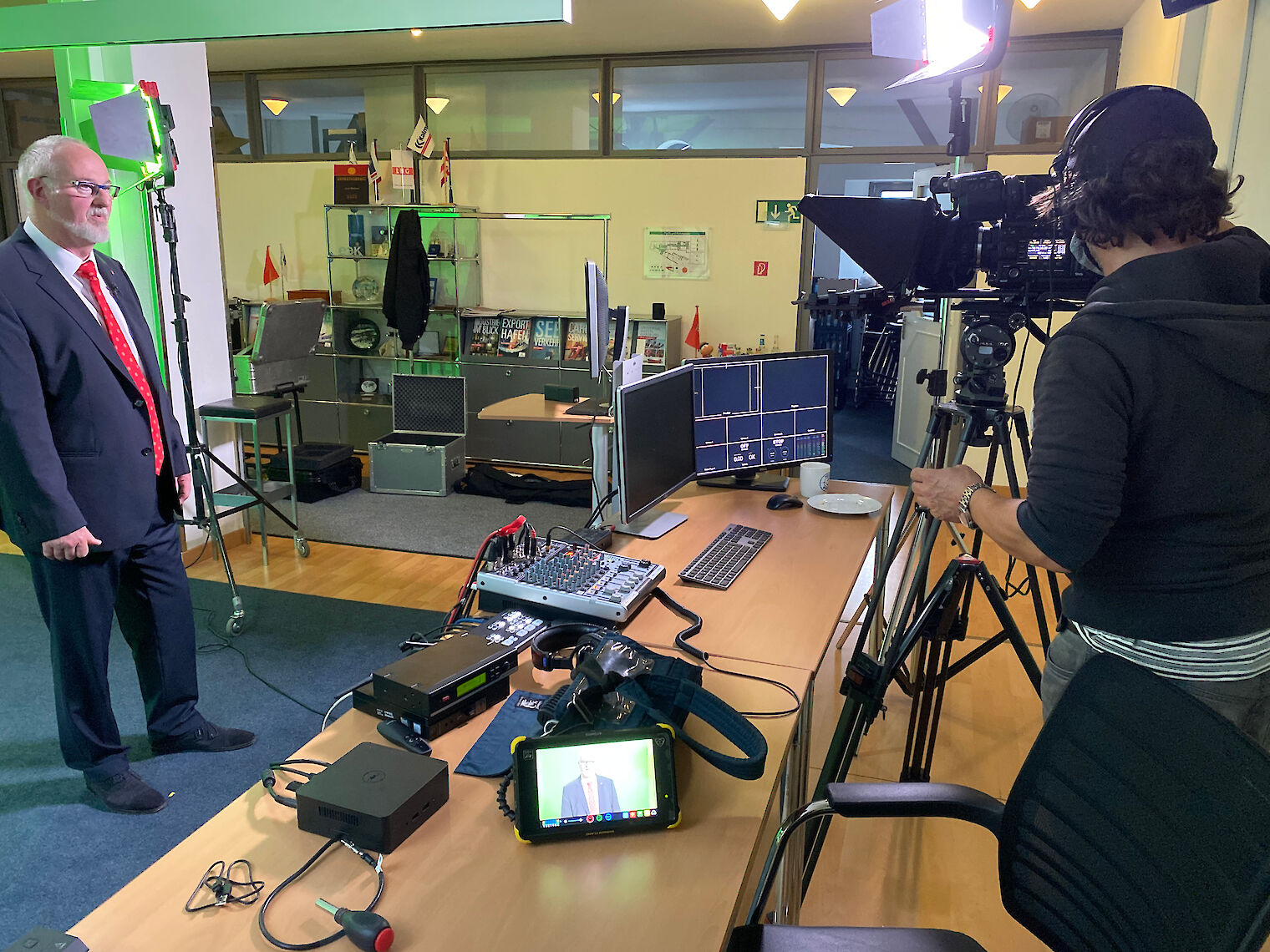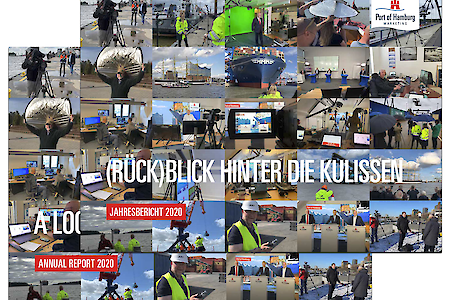A LOOK BACK - BEHIND THE SCENES - Annual Report 2020
Look Back
Port of Hamburg Marketing - Annual Report 2020
Dear Readers,
The worldwide repercussions of the Corona pandemic mainly hit the Port of Hamburg in the first half of 2020. A turnaround in throughput commenced in the last six months of the year. This enabled us to report a single-figure downturn in throughput for the whole year. As critical infrastructure,the port was able to perform its function with no limitations. Without exception,it was there every day for customers,flexibly reacting and rapidly adjusting to this difficult situation. In this crisis,our function as Europe’s largest rail port proved advantageous,with rail transport contributing decisively timely shipments.
We were also delighted by our staff’s flexibility. No questioning if’s and but’s from them,but they buckled down to the job,ensuring that our customers were always well served. The year 2020 was indeed special,and challenging for all of us,unlike any previous year.
With the first lockdown in March,we sent our staff off to work from home. All activities have since been online – from weekly team meetings to customer events and trade fairs,everything was transferred into digital space. The transfer to online media prompted the emergence of new talents among our colleagues. Portfolios were re-distributed,and for some colleagues,completely altered. Despite the challenging situation,all staff were and remain highly committed to their tasks,and the central one of marketing the Port of Hamburg worldwide.
Right at the start of the pandemic,we stepped up our activities on social media channels and established such new video formats as PORTtalk. We are still using these to report on the situation of our member companies and partners,but also the Port of Hamburg’s diversity. We produced and distributed over 60 episodes of our new video formats during 2020.
Along with our video formats PORTtalk and PORTmovie for our social-media channels,we started the online-event series PORTtalk live. Once a month,we stream about various essential topics from our conference room,meanwhile the equivalent of a professional film studio. Along with our partners and members,we can therefore repeatedly brief several hundred viewers on topics such as rail,infrastructure or even the trend in ship sizes.
In our Representative Offices in Europe and worldwide,the situation has changed in exactly the same way as at Head Office. Their traditional work,such as looking after customers,or planning and hosting events,is being done on the phone or digitally. Representatives and their assistants are actively involved in our headquarters work,and have sometimes been able to take over completely new tasks such as backing up numerous online activities.
Last year,we were able to firm up our plans to create an Advisory Council. From this year onwards,this is on hand to support our work as the Executive Board. Our appointments and activities have been transferred into digital space. The ‘Port Breakfast’,for example,has been continued,and we have been able to remain in lively exchange with players on the political stage.
In this Annual Report,we want to take you behind the scenes. We want to show what we have achieved in this special year 2020 together with our employees,members,partners and customers. What challenges we faced and what new steps we dared to take as an association in order to continue to promote the Port of Hamburg together with our member companies. At this point,we wish to thank all our members and supporters for the trust placed in us. We look forward to being able to welcome you on our new online formats or very soon,we hope,at our events in traditional style.
With all good wishes,
Ingo Egloff and Axel Mattern
Joint CEOs,Port of Hamburg Marketing
Ingo Egloff and Axel Mattern,Joint CEOs,Port of Hamburg Marketing
Ladies and Gentlemen,
Dear Members
On behalf of the Supervisory Board of Port of Hamburg Marketing-HHM,I wish to report to you on our work in 2020 as the year under review. In 2020 we performed with the utmost care the duties required of us as the Supervisory Board by law and our Articles of Association. Despite the worldwide corona pandemic,in close and trusting cooperation with the management of the Association,we regularly advised the Executive Board and continually monitored its conduct of business,even though this partly had to be done through new channels.
2020 was an extraordinary year for us all. A great deal changed with the initial lockdown in March. Work was done from home,popular events were cancelled,and it was not clear when we would return to normality.
The Supervisory Board held four meetings in 2020. These took place in February,May,September and November. The meeting in February was the last with a physical presence. After that,meetings were held digitally,and were invariably notable for a frank and intensive exchange of views between the Executive and Supervisory Boards. Wherever the law,Articles of Association and/or the agenda made the assent of the Supervisory Board essential for specific measures,an appropriate resolution was passed. On the basis of documents made available by the Executive Board in advance,members of the Supervisory Board regularly prepared themselves for decisions on Executive Board measures requiring its assent. In addition,apart from these meetings I,as Supervisory Board Chairman,also engaged in regular personal dialogue with the Executive Board.
Recurring topics for Supervisory Board meetings were the Executive Board reports on the financial and staffing situation of the Association,and on the activities of Head Office,the representative offices and the project department. In addition,the Executive Board reported regularly on the current market situation and changes in the membership. The transfer of activities into the digital sphere led to regular reports on the Association’s media and social media activities. With the need to move completely to digital planning of events,there was also a constant focus on events and visitor planning.
At the meeting on 18 February 2020,Jan Oliver Siebrand joined the Supervisory Board for the Hamburg Chamber of Commerce. Jörn Marc Thielebeule was introduced as Honorable Representative for the South Germany/Switzerland/Liechtenstein region. In addition,the Executive Board reported on plans to create an Advisory Council.
The meeting on 19 May 2020 was the first to be held online. After a long interval,Eurogate was welcomed back as a member of the Association,with Jörn Kamrad joining the Supervisory Board. Staff changes at HHLA led to Ingo Witte’s replacement by Oliver Dux on HHM’s Supervisory Board. The Executive Board reported that for the first lockdown in March,HHM were able to work at home within 24 hours. PORTtalk was launched as a video format and has become successfully established in all social networks. Reacting quickly,HHM also inserted a Web Special about Covid-19,showing the latest details from the market and traffic situations,etc. The 2019 Annual Report was approved at this meeting.
On 15 September 2020 the Supervisory Board reported on the first minimalist events for ten people and current meetings with a physical presence. The Executive Board stressed that the increased activities on social media channels had been extremely well received and this was reflected in current statistics. These had involved the complete rebuilding of the large conference room as a studio that is also available for use by members. The Representative Offices are also active on the market and are maintaining contact with the Port of Hamburg’s customers. The annual financial statement for 2019 was approved and Warth &Klein Grant Thornton were selected as auditors.
At the last Supervisory Board meeting of 2020 on 17 November,further planning on the Advisory Council was presented,with a decision due this year. In addition,the Business Plan for the new year was presented and approved. The topics for the Port of Hamburg Magazines and event planning with the new ‘PORTtalk live’ were presented.
In 2020 HHM ventured a digital step forward and mastered this process with bravura. I wish to express my appreciation to the entire HHM team that actively helped shape and facilitate all the projects. The re-configuration of the Conference Room at Head Office in Hamburg as a film studio permitted perfect implementation of digital events. Despite the challenging situation,HHM has not lost contact with its partners,customers or market. New communication channels were actively and successfully harnessed.
On behalf of the entire Supervisory Board,I wish to thank all the members of Port of Hamburg Marketing for the trust they have displayed in these uncertain times. My thanks also go to the Joint CEOs and all staff for their untiring commitment and all their work that was so exceedingly remarkable for new ways of working. I also thank the departed members of the Supervisory Board for their activities on the Supervisory Board of Port of Hamburg Marketing.
I hope that this year we shall revert to some extent to normality again and I wish all members,as well as the staff of HHM,good health and staying power.
Hamburg,April 2021Thomas Lütje
Chairman of the Supervisory Board
Supervisory Board Chairman,Thomas Lütje
Ladies and Gentlemen,
Dear Members
Even if last year was an extraordinary one,presenting major challenges for many of our colleagues,we lost only very few members. That shows what a significant role Port of Hamburg Marketing-HHM fulfils for port businesses,even in times of crisis. Despite the difficult situation,all members have endorsed the adjustment in the association’s activities and continue to feel well catered for by HHM. On behalf of all its members,the Representatives’ Assembly expresses its thanks to all HHM’s staff.
For most of us,the year was marked by strict restrictions on contacts and the resulting work from home. On 24 November 2020,the 48th meeting of the Representatives Assembly,for instance,was the first in its history to be held digitally. During a video conference free of any hitches,the Supervisory Board was exonerated for the year 2019 and a decision on membership fees for 2021 unanimously adopted.
The association’s activities in 2020 naturally centred on increased online communication. Social media channels rapidly became its foremost information medium,since these enabled contact to be maintained with the international market. In addition,a special Covid19 page was incorporated in the Port of Hamburg website to continually give members the latest details of the situation on the pandemic. News from the port and transport industry,of national and federal state measures,and situation reports from Hamburg’s source and target markets remained obtainable there as before.
Deserving the spotlight here is the PORTtalk video format launched at the beginning of 2020. HHM used this to draw attention to various port topics,also offering member companies a platform for communication and exchange,enabling them to remain visible in the market and in the public eye. This successful alternative to the customary events involving a physical presence will remain a firm fixture in future HHM activities. The online event format PORTtalk live gave representatives of the port member companies opportunities of joining in discussions and registering a presence – even if only online. For me,the rapidly improved quality of formats and newly acquired competence in producing contributions and functions represent an outstanding achievement by HHM,which will certainly remain a vital element for its future.
On behalf of the Representatives’ Assembly,I wish to thank the members of Port of Hamburg Marketing for the trust displayed,and the Joint CEOs and all its staff for their commitment and hard work.
Hamburg,April 2021Rainer Fabian
Chairman of the Representatives’ Assembly
Chairman of the Representatives’ Assembly,Rainer Fabian
Dear Readers,
The worldwide repercussions of the Corona pandemic mainly hit the Port of Hamburg in the first half of 2020. A turnaround in throughput commenced in the last six months of the year. This enabled us to report a single-figure downturn in throughput for the whole year. As critical infrastructure,the port was able to perform its function with no limitations. Without exception,it was there every day for customers,flexibly reacting and rapidly adjusting to this difficult situation. In this crisis,our function as Europe’s largest rail port proved advantageous,with rail transport contributing decisively timely shipments.
We were also delighted by our staff’s flexibility. No questioning if’s and but’s from them,but they buckled down to the job,ensuring that our customers were always well served. The year 2020 was indeed special,and challenging for all of us,unlike any previous year.
With the first lockdown in March,we sent our staff off to work from home. All activities have since been online – from weekly team meetings to customer events and trade fairs,everything was transferred into digital space. The transfer to online media prompted the emergence of new talents among our colleagues. Portfolios were re-distributed,and for some colleagues,completely altered. Despite the challenging situation,all staff were and remain highly committed to their tasks,and the central one of marketing the Port of Hamburg worldwide.
Right at the start of the pandemic,we stepped up our activities on social media channels and established such new video formats as PORTtalk. We are still using these to report on the situation of our member companies and partners,but also the Port of Hamburg’s diversity. We produced and distributed over 60 episodes of our new video formats during 2020.
Along with our video formats PORTtalk and PORTmovie for our social-media channels,we started the online-event series PORTtalk live. Once a month,we stream about various essential topics from our conference room,meanwhile the equivalent of a professional film studio. Along with our partners and members,we can therefore repeatedly brief several hundred viewers on topics such as rail,infrastructure or even the trend in ship sizes.
In our Representative Offices in Europe and worldwide,the situation has changed in exactly the same way as at Head Office. Their traditional work,such as looking after customers,or planning and hosting events,is being done on the phone or digitally. Representatives and their assistants are actively involved in our headquarters work,and have sometimes been able to take over completely new tasks such as backing up numerous online activities.
Last year,we were able to firm up our plans to create an Advisory Council. From this year onwards,this is on hand to support our work as the Executive Board. Our appointments and activities have been transferred into digital space. The ‘Port Breakfast’,for example,has been continued,and we have been able to remain in lively exchange with players on the political stage.
In this Annual Report,we want to take you behind the scenes. We want to show what we have achieved in this special year 2020 together with our employees,members,partners and customers. What challenges we faced and what new steps we dared to take as an association in order to continue to promote the Port of Hamburg together with our member companies. At this point,we wish to thank all our members and supporters for the trust placed in us. We look forward to being able to welcome you on our new online formats or very soon,we hope,at our events in traditional style.
With all good wishes,
Ingo Egloff and Axel Mattern
Joint CEOs,Port of Hamburg Marketing
Ingo Egloff and Axel Mattern,Joint CEOs,Port of Hamburg Marketing
Ladies and Gentlemen,
Dear Members
On behalf of the Supervisory Board of Port of Hamburg Marketing-HHM,I wish to report to you on our work in 2020 as the year under review. In 2020 we performed with the utmost care the duties required of us as the Supervisory Board by law and our Articles of Association. Despite the worldwide corona pandemic,in close and trusting cooperation with the management of the Association,we regularly advised the Executive Board and continually monitored its conduct of business,even though this partly had to be done through new channels.
2020 was an extraordinary year for us all. A great deal changed with the initial lockdown in March. Work was done from home,popular events were cancelled,and it was not clear when we would return to normality.
The Supervisory Board held four meetings in 2020. These took place in February,May,September and November. The meeting in February was the last with a physical presence. After that,meetings were held digitally,and were invariably notable for a frank and intensive exchange of views between the Executive and Supervisory Boards. Wherever the law,Articles of Association and/or the agenda made the assent of the Supervisory Board essential for specific measures,an appropriate resolution was passed. On the basis of documents made available by the Executive Board in advance,members of the Supervisory Board regularly prepared themselves for decisions on Executive Board measures requiring its assent. In addition,apart from these meetings I,as Supervisory Board Chairman,also engaged in regular personal dialogue with the Executive Board.
Recurring topics for Supervisory Board meetings were the Executive Board reports on the financial and staffing situation of the Association,and on the activities of Head Office,the representative offices and the project department. In addition,the Executive Board reported regularly on the current market situation and changes in the membership. The transfer of activities into the digital sphere led to regular reports on the Association’s media and social media activities. With the need to move completely to digital planning of events,there was also a constant focus on events and visitor planning.
At the meeting on 18 February 2020,Jan Oliver Siebrand joined the Supervisory Board for the Hamburg Chamber of Commerce. Jörn Marc Thielebeule was introduced as Honorable Representative for the South Germany/Switzerland/Liechtenstein region. In addition,the Executive Board reported on plans to create an Advisory Council.
The meeting on 19 May 2020 was the first to be held online. After a long interval,Eurogate was welcomed back as a member of the Association,with Jörn Kamrad joining the Supervisory Board. Staff changes at HHLA led to Ingo Witte’s replacement by Oliver Dux on HHM’s Supervisory Board. The Executive Board reported that for the first lockdown in March,HHM were able to work at home within 24 hours. PORTtalk was launched as a video format and has become successfully established in all social networks. Reacting quickly,HHM also inserted a Web Special about Covid-19,showing the latest details from the market and traffic situations,etc. The 2019 Annual Report was approved at this meeting.
On 15 September 2020 the Supervisory Board reported on the first minimalist events for ten people and current meetings with a physical presence. The Executive Board stressed that the increased activities on social media channels had been extremely well received and this was reflected in current statistics. These had involved the complete rebuilding of the large conference room as a studio that is also available for use by members. The Representative Offices are also active on the market and are maintaining contact with the Port of Hamburg’s customers. The annual financial statement for 2019 was approved and Warth &Klein Grant Thornton were selected as auditors.
At the last Supervisory Board meeting of 2020 on 17 November,further planning on the Advisory Council was presented,with a decision due this year. In addition,the Business Plan for the new year was presented and approved. The topics for the Port of Hamburg Magazines and event planning with the new ‘PORTtalk live’ were presented.
In 2020 HHM ventured a digital step forward and mastered this process with bravura. I wish to express my appreciation to the entire HHM team that actively helped shape and facilitate all the projects. The re-configuration of the Conference Room at Head Office in Hamburg as a film studio permitted perfect implementation of digital events. Despite the challenging situation,HHM has not lost contact with its partners,customers or market. New communication channels were actively and successfully harnessed.
On behalf of the entire Supervisory Board,I wish to thank all the members of Port of Hamburg Marketing for the trust they have displayed in these uncertain times. My thanks also go to the Joint CEOs and all staff for their untiring commitment and all their work that was so exceedingly remarkable for new ways of working. I also thank the departed members of the Supervisory Board for their activities on the Supervisory Board of Port of Hamburg Marketing.
I hope that this year we shall revert to some extent to normality again and I wish all members,as well as the staff of HHM,good health and staying power.
Hamburg,April 2021Thomas Lütje
Chairman of the Supervisory Board
Supervisory Board Chairman,Thomas Lütje
Ladies and Gentlemen,
Dear Members
Even if last year was an extraordinary one,presenting major challenges for many of our colleagues,we lost only very few members. That shows what a significant role Port of Hamburg Marketing-HHM fulfils for port businesses,even in times of crisis. Despite the difficult situation,all members have endorsed the adjustment in the association’s activities and continue to feel well catered for by HHM. On behalf of all its members,the Representatives’ Assembly expresses its thanks to all HHM’s staff.
For most of us,the year was marked by strict restrictions on contacts and the resulting work from home. On 24 November 2020,the 48th meeting of the Representatives Assembly,for instance,was the first in its history to be held digitally. During a video conference free of any hitches,the Supervisory Board was exonerated for the year 2019 and a decision on membership fees for 2021 unanimously adopted.
The association’s activities in 2020 naturally centred on increased online communication. Social media channels rapidly became its foremost information medium,since these enabled contact to be maintained with the international market. In addition,a special Covid19 page was incorporated in the Port of Hamburg website to continually give members the latest details of the situation on the pandemic. News from the port and transport industry,of national and federal state measures,and situation reports from Hamburg’s source and target markets remained obtainable there as before.
Deserving the spotlight here is the PORTtalk video format launched at the beginning of 2020. HHM used this to draw attention to various port topics,also offering member companies a platform for communication and exchange,enabling them to remain visible in the market and in the public eye. This successful alternative to the customary events involving a physical presence will remain a firm fixture in future HHM activities. The online event format PORTtalk live gave representatives of the port member companies opportunities of joining in discussions and registering a presence – even if only online. For me,the rapidly improved quality of formats and newly acquired competence in producing contributions and functions represent an outstanding achievement by HHM,which will certainly remain a vital element for its future.
On behalf of the Representatives’ Assembly,I wish to thank the members of Port of Hamburg Marketing for the trust displayed,and the Joint CEOs and all its staff for their commitment and hard work.
Hamburg,April 2021Rainer Fabian
Chairman of the Representatives’ Assembly
Chairman of the Representatives’ Assembly,Rainer Fabian
Port of Hamburg Marketing (HHM) represents its members‘ interests with customized communication, project and marketing activities at its Hamburg base and in its main target markets: Member and customer events With its worldwide networking and briefing events on current topics, HHM offers an excellent opportunity for building up and strengthening high-grade business relationships. Congresses and specialist events HHM supports its members in planning and holding their own events – whether by introducing service providers, searching for suitable premises or announcing an event. It can also take over overall coordination of events. Press activities HHM regularly briefs the media on Port of Hamburg business topics, also supporting the press activities of its members by distributing their press releases and assisting in the organization of press activities. Publications Numerous publications in German and English supply not only an overview of the efficient performance and development of the Port of Hamburg, but also insights into projects and special topics. In addition, members may contribute their own editorial matter for the Port of Hamburg Magazine and promote their companies with advertisements. These publications also feature in the Port of Hamburg App. Online media HHM also publishes its members’ press releases on www.hafen-hamburg.de and in the Port of Hamburg App. In addition, our Internet page features contacts with port service providers, a database of direct liner services via Hamburg and an overview of vessels expected in Hamburg. Newsletters in German and English as well as various social media channels round off its range. Market research Regular statistics and reports supply information on the trends in seaborne foreign trade as a whole and on hinterland services. In addition, HHM reports on the basis of surveys and analyses, as well as with data on current market developments and trends. Market development With HHM present in essential core markets in Germany and internationally, members profit from delegation visits, company tours, and functions at which valuable market contacts can be made. The focus is on the Baltic region, SE Europe and countries overseas. Projects Along with members, HHM participates in responding to calls to tender for EU and nationally promoted projects that deal with current transport policy topics as well as opportunities for optimizing transport and freight handling processes. Trade fairs Under the Port of Hamburg umbrella brand, HHM plans and organizes worldwide trade fair showcasing. Its fellow-exhibitors on a joint stand benefit from overall coordination, a comprehensive service package and especially favourable conditions – including backing with targeted press activities. Trade visitor programs HHM creates individual visit programs for delegations and groups from Germany and elsewhere. These can be expertly guided information tours, terminal visits, company inspections or specialized lectures. HHM also creates fascinating programs for the new generation in logistics. Staff As at 31 December 2020,a total of 40 staff (m/f) were employed at HHM:24 in head office – including two working students – plus 16 in the representative offices. Appointments in 2020 Diana Markowska joined HHR Warsaw in March to stand in for the assistant Emilia Przybył. Adina Cailliaux,Deputy Head of the Project Department,returned in May 2020. On 1 October 2020 the Communication Department gained two new members with Lea Mentzel,previously on work experience,and Ralf Johanning. They are mainly engaged in press and public relations work. Ralf Johanning replaces Karin Lengenfelder,who moved to the Munich Representative Office on 1 October 2020 prior to taking over as head of it in 2021. The team from Port of Hamburg Marketing The Supervisory Board advises and constructively monitors the management of HHM. Apart from passing resolutions on the Business Plan and the Annual Financial Statement,the Supervisory Board lays down HHM’s main tasks and guidelines on basics. »We at ONE rated HHM’s swift and professional switch from analogue to digital/virtual operation as especially positive. This enabled us to continue participating in different events. Once again,we’d like to make special mention of the PORTtalk format,still unrivalled in the transport industry.« »HHM smoothed the path into the intermodal future for us. And during the Corona pandemic they were the first to be equipped to conduct association work digitally and highly professionally.« »We as TFG felt that it was very positive that HHM reacted swiftly in the crisis and offered us as a new member new formats. So we had an opportunity to cooperate on PORTtalk and therefore to use the HHM network,even during the crisis. Very many thanks to the HHM team!« Staff As at 31 December 2020,a total of 40 staff (m/f) were employed at HHM:24 in head office – including two working students – plus 16 in the representative offices. Appointments in 2020 Diana Markowska joined HHR Warsaw in March to stand in for the assistant Emilia Przybył. Adina Cailliaux,Deputy Head of the Project Department,returned in May 2020. On 1 October 2020 the Communication Department gained two new members with Lea Mentzel,previously on work experience,and Ralf Johanning. They are mainly engaged in press and public relations work. Ralf Johanning replaces Karin Lengenfelder,who moved to the Munich Representative Office on 1 October 2020 prior to taking over as head of it in 2021. The team from Port of Hamburg Marketing The Supervisory Board advises and constructively monitors the management of HHM. Apart from passing resolutions on the Business Plan and the Annual Financial Statement,the Supervisory Board lays down HHM’s main tasks and guidelines on basics. »We at ONE rated HHM’s swift and professional switch from analogue to digital/virtual operation as especially positive. This enabled us to continue participating in different events. Once again,we’d like to make special mention of the PORTtalk format,still unrivalled in the transport industry.« »HHM smoothed the path into the intermodal future for us. And during the Corona pandemic they were the first to be equipped to conduct association work digitally and highly professionally.« »We as TFG felt that it was very positive that HHM reacted swiftly in the crisis and offered us as a new member new formats. So we had an opportunity to cooperate on PORTtalk and therefore to use the HHM network,even during the crisis. Very many thanks to the HHM team!«HHM
![]()
![]()
![]()
![]()
![]()
![]()
![]()
![]()
![]()
![]()
Port of Hamburg Marketing – A strong voice for the port
The Port of Hamburg is Germany’s largest multi-purpose port. Along with its members,Port of Hamburg Marketing-HHM is active worldwide to further strengthen its market position in worldwide competition. Founded in 1985,for over thirty-five years the Association has campaigned with great success for Hamburg as a port and logistics region. The Port of Hamburg now enjoys a positive image all over the world,standing for professionalism,efficiency and innovation.
HHM is soundly based both nationally and internationally. At a total of twelve locations,the staff at headquarters and the representative offices champion the interests of Hamburg and the region’s seaport industry. Experts in the market regions cultivate excellent contacts with numerous companies in trade and industry,the transport and logistics sector,trade associations and political decision-makers.
HHM offers skilled support for terminal operators,shipping companies and liner agents,transport providers,warehousing,logistics and packaging companies,Customs experts,vocational and in-service training institutions,along with numerous other companies and organizations. This is facilitated by customized communication,project and marketing activities at its Hamburg base as well as in the Port of Hamburg’s core markets. All activities are neutral vis-à-vis companies and competitors.
Pauline Graf completed her studies,and her spell of work experience in the Online Media Department at Port of Hamburg Marketing,on 30 September. As part of his study course,Nando Suhre completed a three-month attachment in the Communication &Information Department,while Cedric Stüwer spent six months with HHM as part of his training. Tim Reincke continues his work experience in the Project Department,while Anna-Lena Büttner was able to spend the whole year doing so in Communication &Information.
Organs of the Association
The Supervisory Board comprises members from different membership categories as well as one member each from the Hamburg Chamber of Commerce,the ports in the Metropolitan Region and the Port of Hamburg Business Association.
The Representatives’ Assembly comprises members drawn from the different membership categories and its responsibilities include the election,removal and exoneration of Supervisory Board members,setting membership dues and any changes to the Articles of Association.
Jan Holst,Director Germany &Central Europe ONE
Michael Fiedler,CEO,LUTRA,Hafen KönigsWusterhausen
Agatha Sick,Manager Marketing and Communications,TFG TransfrachtPort of Hamburg Marketing – A strong voice for the port
The Port of Hamburg is Germany’s largest multi-purpose port. Along with its members,Port of Hamburg Marketing-HHM is active worldwide to further strengthen its market position in worldwide competition. Founded in 1985,for over thirty-five years the Association has campaigned with great success for Hamburg as a port and logistics region. The Port of Hamburg now enjoys a positive image all over the world,standing for professionalism,efficiency and innovation.
HHM is soundly based both nationally and internationally. At a total of twelve locations,the staff at headquarters and the representative offices champion the interests of Hamburg and the region’s seaport industry. Experts in the market regions cultivate excellent contacts with numerous companies in trade and industry,the transport and logistics sector,trade associations and political decision-makers.
HHM offers skilled support for terminal operators,shipping companies and liner agents,transport providers,warehousing,logistics and packaging companies,Customs experts,vocational and in-service training institutions,along with numerous other companies and organizations. This is facilitated by customized communication,project and marketing activities at its Hamburg base as well as in the Port of Hamburg’s core markets. All activities are neutral vis-à-vis companies and competitors.
Pauline Graf completed her studies,and her spell of work experience in the Online Media Department at Port of Hamburg Marketing,on 30 September. As part of his study course,Nando Suhre completed a three-month attachment in the Communication &Information Department,while Cedric Stüwer spent six months with HHM as part of his training. Tim Reincke continues his work experience in the Project Department,while Anna-Lena Büttner was able to spend the whole year doing so in Communication &Information.
Organs of the Association
The Supervisory Board comprises members from different membership categories as well as one member each from the Hamburg Chamber of Commerce,the ports in the Metropolitan Region and the Port of Hamburg Business Association.
The Representatives’ Assembly comprises members drawn from the different membership categories and its responsibilities include the election,removal and exoneration of Supervisory Board members,setting membership dues and any changes to the Articles of Association.
Jan Holst,Director Germany &Central Europe ONE
Michael Fiedler,CEO,LUTRA,Hafen KönigsWusterhausen
Agatha Sick,Manager Marketing and Communications,TFG Transfracht
Even if the HHM office at Pickhuben 6 was at times eerily empty, our colleagues at the Hamburg Head Office kept up the good work in 2020. Press conferences were held online, project meetings were moved to virtual rooms, hygiene concepts were drafted and new platforms were invented. The association‘s activities were turned upside down. Nevertheless, together with its members, HHM succeeded in positioning the Port of Hamburg on the international market from home. Corona dictated that only limited transport policy lobbying was feasible in 2020. Nevertheless,from March onwards the successful ‘Port Breakfasts’ were continued in online format. These were traditionally held at the State of Hamburg’s representative villa in Berlin. As a rule,35-40 people take the opportunity to learn more on maritime topics. The organizers,the Federation of German Industry,Federation of Public Inland Ports,Federal Association of Freight Forwarding and Logistics,Port of Hamburg Marketing,IHK Nord – Federation of North German Chambers of Industry and Commerce,Association of German Shipowners,German Shipbuilding and Ocean Industries Association,Central Association of German Shipbrokers and the Central Association of German Port Operators,offered information on various topics: In addition,various individual meetings were held with members of parliament that belong to committees relevant for the port. In this context,for example,the concerns of the pilots for modern,up-to-date communication options for access to the Port of Hamburg were also strongly supported. Active work in various elements of the German Transport Forum-DVF,Logistics Alliance Germany and Maritime Forum Berlin,as well as in political foundations / think-tanks and business organizations also serves to convey the positions of the Port of Hamburg and others in the Metropolitan Region. Along with other organizations,Port of Hamburg Marketing has approached ministries on questions of improving conditions for inland waterway shipping on the Elbe. A continuous exchange took place with the Hamburg government on ports topics,but also the impact of the Corona pandemic on companies. A PORTtalk on this with Finance Senator Dr. Andreas Dressel was produced. On account of the pandemic,looking after foreign or German political delegations,otherwise required on numerous occasions,was also restricted. In the few breaks in lockdown,two economics ministers from Austrian federal states were welcomed and hosted,as well as delegations of SPD and FDP members of the Federal parliament in Berlin. The first virtual ‘Port Breakfast’ from the HHM-Studio. Ingo Egloff,HHM and Ralf Nagel,VDR. This year I have already been working for ten years for Port of Hamburg Marketing. In 2011 I started as an office assistant. Then at the beginning of 2015 I became Assistant to the Executive Board. Among my tasks are office organization generally,property management,and various jobs in the Executive Board office. The year 2020 was like none other before,turning my working day completely upside down. With the start of the first lockdown,and the almost complete absence of colleagues working in their homes,my task was to ensure that the office continued to function. Along with the Executive Board and book-keeping colleagues,I worked out an emergency staffing plan on making presence in the office Corona-compatible. After some relaxation of the measures in summer,I was then responsible for assigning our employees,and for adherence to Corona rules in the office. From now on,constant changes plus flexibility were the order of the day. I have to do many of my jobs on the spot,but a few days at the home office are very positive for me. Here I can concentrate on disposing of some matters,also saving the journey to work. Ever-present tasks such as travel bookings,event planning,visitor programs and preparing for in-person appointments were suddenly non-existent. Instead,online appointments and administrative work doubled in practice. This difficult year also brought pleasant jobs and events,such as distribution of protective masks in the port,the arrivals of mega-containerships,and the return of the ‘Peking’. For me,the way in which our team has risen to the occasion since March 2020 was mightily impressive. The recently launched formats ‘PORTtalk’ and ‘PORTtalk live’ are splendid new projects reflecting immense effort and creativity. To be able to sit together with my colleagues again,free of any second thoughts,that’s what I most look forward to. I greatly miss events and personal contact with companies in the port. This year has taught me to value those in particular. The port subsides into the twilight gloom,the roads are empty and never before the early days of my new Corona shift have so many parking spaces been free. It grows dark instead of light and I am sitting alone in my office! Where otherwise life pulses,the printer that I have never noticed is rumbling from a distance. All staff were deftly and flexibly equipped to move into home office mode. We planned our shifts individually and I am delighted to see my colleagues now and again. Corona rapidly brought us further into the digital world,and I am proud of our splendid HHM team. Although Finance &Controlling had to contend less with cancellations of events requiring a physical presence,or business trips,our work too was completely turned upside down. Apart from everyday bookkeeping that increasingly had to be done on virtual auditing platforms,along with the Executive Board and its assistant Katharina Weidemann we turned our attention to office organization. This involved more than you might think. On the one hand,the task was to enable all our colleagues to work from home. New equipment needed to be acquired,links established,and rules drafted. Some large monitors,laptops and office chairs were even on occasion shifted to colleagues’ homes by us and the Executive Board. In spring we also worked out an office occupancy plan,implementing this in the course of the year to ensure that we constantly have a contact on the spot,enabling us to keep the office running. Despite the high proportion of our tasks that can be digitalized,the odd few can only be performed manually. Many of these fall to Finance &Controlling. For example,the audit of the annual results by newly appointed chartered accountants was largely done online,yet required many documents to be scanned in paper form. Our tasks in 2020 also included acquisition of masks,drafting of hygiene plans,and regular research and training on current Corona measures in Hamburg and the Metropolitan Region. With numerous questions and uncertainties arising on labour laws,timekeeping,child minding,etc.,communication with the entire HHM team was of particular importance. We at HHM proved very largely able to maintain our activity as an association,being able to find flexible,individual solutions for our colleagues’ work. Nevertheless,our team noticed the strain on their nerves. What we especially miss are the relaxed discussions between pantry and office of the kind that often continue for longer than the lunch break… Corona dictated that only limited transport policy lobbying was feasible in 2020. Nevertheless,from March onwards the successful ‘Port Breakfasts’ were continued in online format. These were traditionally held at the State of Hamburg’s representative villa in Berlin. As a rule,35-40 people take the opportunity to learn more on maritime topics. The organizers,the Federation of German Industry,Federation of Public Inland Ports,Federal Association of Freight Forwarding and Logistics,Port of Hamburg Marketing,IHK Nord – Federation of North German Chambers of Industry and Commerce,Association of German Shipowners,German Shipbuilding and Ocean Industries Association,Central Association of German Shipbrokers and the Central Association of German Port Operators,offered information on various topics: In addition,various individual meetings were held with members of parliament that belong to committees relevant for the port. In this context,for example,the concerns of the pilots for modern,up-to-date communication options for access to the Port of Hamburg were also strongly supported. Active work in various elements of the German Transport Forum-DVF,Logistics Alliance Germany and Maritime Forum Berlin,as well as in political foundations / think-tanks and business organizations also serves to convey the positions of the Port of Hamburg and others in the Metropolitan Region. Along with other organizations,Port of Hamburg Marketing has approached ministries on questions of improving conditions for inland waterway shipping on the Elbe. A continuous exchange took place with the Hamburg government on ports topics,but also the impact of the Corona pandemic on companies. A PORTtalk on this with Finance Senator Dr. Andreas Dressel was produced. On account of the pandemic,looking after foreign or German political delegations,otherwise required on numerous occasions,was also restricted. In the few breaks in lockdown,two economics ministers from Austrian federal states were welcomed and hosted,as well as delegations of SPD and FDP members of the Federal parliament in Berlin. The first virtual ‘Port Breakfast’ from the HHM-Studio. Ingo Egloff,HHM and Ralf Nagel,VDR. This year I have already been working for ten years for Port of Hamburg Marketing. In 2011 I started as an office assistant. Then at the beginning of 2015 I became Assistant to the Executive Board. Among my tasks are office organization generally,property management,and various jobs in the Executive Board office. The year 2020 was like none other before,turning my working day completely upside down. With the start of the first lockdown,and the almost complete absence of colleagues working in their homes,my task was to ensure that the office continued to function. Along with the Executive Board and book-keeping colleagues,I worked out an emergency staffing plan on making presence in the office Corona-compatible. After some relaxation of the measures in summer,I was then responsible for assigning our employees,and for adherence to Corona rules in the office. From now on,constant changes plus flexibility were the order of the day. I have to do many of my jobs on the spot,but a few days at the home office are very positive for me. Here I can concentrate on disposing of some matters,also saving the journey to work. Ever-present tasks such as travel bookings,event planning,visitor programs and preparing for in-person appointments were suddenly non-existent. Instead,online appointments and administrative work doubled in practice. This difficult year also brought pleasant jobs and events,such as distribution of protective masks in the port,the arrivals of mega-containerships,and the return of the ‘Peking’. For me,the way in which our team has risen to the occasion since March 2020 was mightily impressive. The recently launched formats ‘PORTtalk’ and ‘PORTtalk live’ are splendid new projects reflecting immense effort and creativity. To be able to sit together with my colleagues again,free of any second thoughts,that’s what I most look forward to. I greatly miss events and personal contact with companies in the port. This year has taught me to value those in particular. The port subsides into the twilight gloom,the roads are empty and never before the early days of my new Corona shift have so many parking spaces been free. It grows dark instead of light and I am sitting alone in my office! Where otherwise life pulses,the printer that I have never noticed is rumbling from a distance. All staff were deftly and flexibly equipped to move into home office mode. We planned our shifts individually and I am delighted to see my colleagues now and again. Corona rapidly brought us further into the digital world,and I am proud of our splendid HHM team. Although Finance &Controlling had to contend less with cancellations of events requiring a physical presence,or business trips,our work too was completely turned upside down. Apart from everyday bookkeeping that increasingly had to be done on virtual auditing platforms,along with the Executive Board and its assistant Katharina Weidemann we turned our attention to office organization. This involved more than you might think. On the one hand,the task was to enable all our colleagues to work from home. New equipment needed to be acquired,links established,and rules drafted. Some large monitors,laptops and office chairs were even on occasion shifted to colleagues’ homes by us and the Executive Board. In spring we also worked out an office occupancy plan,implementing this in the course of the year to ensure that we constantly have a contact on the spot,enabling us to keep the office running. Despite the high proportion of our tasks that can be digitalized,the odd few can only be performed manually. Many of these fall to Finance &Controlling. For example,the audit of the annual results by newly appointed chartered accountants was largely done online,yet required many documents to be scanned in paper form. Our tasks in 2020 also included acquisition of masks,drafting of hygiene plans,and regular research and training on current Corona measures in Hamburg and the Metropolitan Region. With numerous questions and uncertainties arising on labour laws,timekeeping,child minding,etc.,communication with the entire HHM team was of particular importance. We at HHM proved very largely able to maintain our activity as an association,being able to find flexible,individual solutions for our colleagues’ work. Nevertheless,our team noticed the strain on their nerves. What we especially miss are the relaxed discussions between pantry and office of the kind that often continue for longer than the lunch break… A major aspect of public relations is active networking and nurturing contacts; a lively exchange after a conference and a handshake at events, drinking a coffee together at interviews and in meetings. In 2020, all this was suddenly no longer possible. The Communication and Information team adapted quickly and used opportunities arising. In no time at all we fired up our communication on all channels, facilitating reporting the latest comprehensive news. Through our good worldwide Representative Office network, we were always at the cutting edge of economic developments in Hamburg‘s markets. To make this information available to our members too, a Covid 19 page was embedded in our website, and updated daily by our team. In addition, we increasingly relied on our social media presence. Via our channels on Facebook, LinkedIn, Instagram and Twitter we were able to reach members, port customers and partners as well as the general public, representing the Port of Hamburg across the globe. With our ‘#hafenhelden’, or ‘port heroes’, campaign alone, with various contributions, we were able to reach more than 40,000 individuals, making system relevant jobs along the supply chain visible. We were able to offer our press conferences in an online format, reaching journalists in the hinterland, who previously seldom attended in-person events because of the long journey. Apart from telephone interviews, while keeping to Corona rules, there were also personal meetings. Many press questions regarding the impact of the pandemic on the port were dealt with. We successfully supported our members by recording and spreading their news through our diverse channels. Even in 2020, it was possible to continue image advertising for the Port of Hamburg in selected media. Special mention should also be made of our new PORTtalk video format. Here, we make a platform available to our members, where they can present themselves even during Corona regulations. During the course of the year, 60 videos were recorded and released. This supra-departmental project has opened up a completely new field of activity, and an opportunity for professional development. Even in times of crisis the Port of Hamburg does not come to a standstill. In 2020, we were able to cover two real milestones both digitally and live. In the first case we were able to welcome the ‘HMM Algeciras’ on its maiden call. As a small group, there was a press tour on a launch to celebrate the arrival of the world’s largest containership. In November, it was the turn of the ‘CMA CGM Jacques Saadé’ to reach the Port of Hamburg – another unique event, since she is the world’s first mega-containership powered by LNG. For the homecoming of the four-mast barque ‘Peking’ in September, we organized an accompanying launch for our staff, in conformity with Covid rules. Almost like a mini-port anniversary, after its complete refitting the historic sailing ship was welcomed in its home port, where the ‘Peking’ will now be used as a museum ship. Event management is also part of our portfolio: It suffered most from various limitations in 2020. Nevertheless, we reacted quickly and were, for example, able to record a great success with our second future conference on the topic of hydrogen. Benefitting from the hybrid event, we greatly increased our outreach, registering some 450 delegates. In addition to this is our new PORTtalk live – a joint project between Head Office and the German-speaking Representative Offices. Once a month, there is a lively discussion among experts on various specialist topics. All in all, in 2020, the Communication and Information team was challenged as never before. The heavy demand for current news covering the economy, shipping and politics presented us with new challenges that we mastered through good collaboration and great motivation in our team. Meeting journalists,having background discussions,researching fascinating stories on-the-spot for the Port of Hamburg Magazine:That’s how I anticipated my start at Port of Hamburg Marketing in October. However,the start of the second wave of the Corona pandemic abruptly interrupted all that. However,when a door closes,a window opens somewhere else. I had the opportunity of dedicating myself to a brand new format – video production. Fine,here too,it’s all about creating an arc of suspense,finding and telling interesting stories to keep the viewer in the loop. And yet,when you take a closer look,print and video really are two different worlds. I have had to learn that when you are developing a storyboard for video formats,from the beginning you should be thinking in pictures. Sounds simple enough,but in reality that can be pretty tough going. Today,with our great team,I’m in the process of developing and producing exciting stories. While doing this,my original tasks haven’t suffered. Here too,I’m in action producing a really interesting,informative customer magazine four times a year with our Communication and Information team colleagues. What is still lacking are the personal meetings. But this too will soon be possible again. Then both written articles and videos will be much easier to produce. When you are awarded your university degree,it’s a time full of anticipation,and yet uncertainty,especially during a worldwide pandemic. That is why I was so happy when Port of Hamburg Marketing approached me in the summer with the offer of changing my work experience post into a full-time job. Since October,I have been able to present the Port of Hamburg to the general public as a permanent member of the press team. While working from home,in fact little has changed from my original tasks. Just as before,my working day consists of answering media questions,updating our website,the app and social media channels,content production,editing press texts,planning and implementing print media and translating contributions. I have also been able to organize and accompany press events. Last year,I had the chance of getting acquainted with a completely new field of activity. For our video formats,I took on different tasks from technical assistant,carrying cable,via make-up to camera operator. In the meantime,I have specialized in storytelling and cutting. Nevertheless,what is still missing are the occasional terminal visits,face-to-face interviews for our magazine and the chance ‘coffee-table gossip’ in the office next door. The Port of Hamburg Magazine In 2020,for the first time,more than half of the world population used social media,according to a study by ‘Hootsuite’ and ‘We Are Social’. Among other reasons,the Corona pandemic was a contributing factor,since so many people had to work from home. We,too,spent more time on social media from our homes to stay in contact with our colleagues,members and customers. We are always close to it for our followers! Meeting journalists,having background discussions,researching fascinating stories on-the-spot for the Port of Hamburg Magazine:That’s how I anticipated my start at Port of Hamburg Marketing in October. However,the start of the second wave of the Corona pandemic abruptly interrupted all that. However,when a door closes,a window opens somewhere else. I had the opportunity of dedicating myself to a brand new format – video production. Fine,here too,it’s all about creating an arc of suspense,finding and telling interesting stories to keep the viewer in the loop. And yet,when you take a closer look,print and video really are two different worlds. I have had to learn that when you are developing a storyboard for video formats,from the beginning you should be thinking in pictures. Sounds simple enough,but in reality that can be pretty tough going. Today,with our great team,I’m in the process of developing and producing exciting stories. While doing this,my original tasks haven’t suffered. Here too,I’m in action producing a really interesting,informative customer magazine four times a year with our Communication and Information team colleagues. What is still lacking are the personal meetings. But this too will soon be possible again. Then both written articles and videos will be much easier to produce. When you are awarded your university degree,it’s a time full of anticipation,and yet uncertainty,especially during a worldwide pandemic. That is why I was so happy when Port of Hamburg Marketing approached me in the summer with the offer of changing my work experience post into a full-time job. Since October,I have been able to present the Port of Hamburg to the general public as a permanent member of the press team. While working from home,in fact little has changed from my original tasks. Just as before,my working day consists of answering media questions,updating our website,the app and social media channels,content production,editing press texts,planning and implementing print media and translating contributions. I have also been able to organize and accompany press events. Last year,I had the chance of getting acquainted with a completely new field of activity. For our video formats,I took on different tasks from technical assistant,carrying cable,via make-up to camera operator. In the meantime,I have specialized in storytelling and cutting. Nevertheless,what is still missing are the occasional terminal visits,face-to-face interviews for our magazine and the chance ‘coffee-table gossip’ in the office next door. The Port of Hamburg Magazine In 2020,for the first time,more than half of the world population used social media,according to a study by ‘Hootsuite’ and ‘We Are Social’. Among other reasons,the Corona pandemic was a contributing factor,since so many people had to work from home. We,too,spent more time on social media from our homes to stay in contact with our colleagues,members and customers. We are always close to it for our followers! In 2020 the Events Department of Port of Hamburg Marketing - HHM was completely dominated by the worldwide Covid 19 pandemic and the restrictions it caused. In spring, our daily work consisted of numerous internal and external consultations. We regularly considered which events had to be cancelled, and for which ones digital alternatives could be found. After in-person events dropped out and at the same time, our in-house ‘HHM Studio’ increasingly took on shape, with quality technical equipment. My portfolio expanded to include support in the organization and technical supervision of online events streamed from the HHM studio. At the same time, I remained responsible for the entire organization of the ‘Future Conference for Industry, Logistics and Ports’, run every two years by HHM along with various co-organizers – namely UMCO GmbH, KPMG, IFB Hamburg, Hamburg Port Authority, Hamburg Invest, Hamburg Industries Federation - IVH, along with the ‘Lower Elbe Project’, represented by egeb - Development Corporation, Hamburg Chamber of Commerce, Brunsbüttel Municipality and Hanseatic Town of Stade. For 2020 it was planned to deepen and discuss the topic ‘North Germany as Hydrogen Hub’. Planning for a one-day, in-person conference for an anticipated attendance of around 250-350 participants, along with a smaller related function the previous evening, was in progress since 2018. Along with the co-organizers, as a consequence of worldwide occurrences we decided in spring 2020 to change the format to a two-hour hybrid online conference. In October, therefore, eight of the nine speakers, including Hamburg’s Senator of Economics, met face-to-face, while observing Corona restrictions, in the Auditorium of the ‘Ingenieurwerk’ in Wilhelmsburg. The ninth speaker was connected by Zoom. The discussions were filmed with cameras and streamed live. Welcome messages from Hamburg’s First Mayor and Schleswig-Holsteins Minister of Economics, along with background video briefings, completed the format. Approximately 450 participants watched the live-stream online. Organizing this new form of event proved a special highlight, involving many small tasks such as production of an introductory video or the drafting and observance of a Covid 19 hygiene plan. The Future Conference took place as a hybrid event. The Visitor Group department was seriously hit by the Corona pandemic, more so than any other in Port of Hamburg Marketing. In 2019, we hosted over 105 trade visitor groups and compiled individual visit programs. In 2020, HHM welcomed 18 visitor groups. One highlight was the visit of a 70-strong group from the Indian Institute of Foreign Trade. For one week, its members were able to experience Hamburg and the port at very close range. At the beginning of the year, the list of enquiries was still long, yet as the extent of the pandemic became clearer, many visits already had to be cancelled in the early months of 2020. Initially, the groups registered were warned by phone or e-mail that the current situation could lead to cancellation. With the closure of terminals to external visitors and the first lockdown in March, it was then clear that we would not be able to receive visitors for the time being. However, HHM continued to assist groups with cancellation or re-planning of already booked visits. As the situation towards summer eased somewhat, we were able to welcome a few visitor groups, yet always observing the terms of the law on protection against infection. So the universally popular harbour boat trips were run with fewer people on board plus obligatory masks. Some terminal tours were replaced by lectures. With the tightening of the situation and climbing infection rates, we stopped receiving visitor groups in October. We do hope that we will soon be able to introduce our groups to our all-purpose port once again, and welcome them to Hamburg. One highlight was the visit of a 70-strong group from the Indian Institute of Foreign Trade. In 2020 the Events Department of Port of Hamburg Marketing - HHM was completely dominated by the worldwide Covid 19 pandemic and the restrictions it caused. In spring, our daily work consisted of numerous internal and external consultations. We regularly considered which events had to be cancelled, and for which ones digital alternatives could be found. After in-person events dropped out and at the same time, our in-house ‘HHM Studio’ increasingly took on shape, with quality technical equipment. My portfolio expanded to include support in the organization and technical supervision of online events streamed from the HHM studio. At the same time, I remained responsible for the entire organization of the ‘Future Conference for Industry, Logistics and Ports’, run every two years by HHM along with various co-organizers – namely UMCO GmbH, KPMG, IFB Hamburg, Hamburg Port Authority, Hamburg Invest, Hamburg Industries Federation - IVH, along with the ‘Lower Elbe Project’, represented by egeb - Development Corporation, Hamburg Chamber of Commerce, Brunsbüttel Municipality and Hanseatic Town of Stade. For 2020 it was planned to deepen and discuss the topic ‘North Germany as Hydrogen Hub’. Planning for a one-day, in-person conference for an anticipated attendance of around 250-350 participants, along with a smaller related function the previous evening, was in progress since 2018. Along with the co-organizers, as a consequence of worldwide occurrences we decided in spring 2020 to change the format to a two-hour hybrid online conference. In October, therefore, eight of the nine speakers, including Hamburg’s Senator of Economics, met face-to-face, while observing Corona restrictions, in the Auditorium of the ‘Ingenieurwerk’ in Wilhelmsburg. The ninth speaker was connected by Zoom. The discussions were filmed with cameras and streamed live. Welcome messages from Hamburg’s First Mayor and Schleswig-Holsteins Minister of Economics, along with background video briefings, completed the format. Approximately 450 participants watched the live-stream online. Organizing this new form of event proved a special highlight, involving many small tasks such as production of an introductory video or the drafting and observance of a Covid 19 hygiene plan. The Future Conference took place as a hybrid event. The Visitor Group department was seriously hit by the Corona pandemic, more so than any other in Port of Hamburg Marketing. In 2019, we hosted over 105 trade visitor groups and compiled individual visit programs. In 2020, HHM welcomed 18 visitor groups. One highlight was the visit of a 70-strong group from the Indian Institute of Foreign Trade. For one week, its members were able to experience Hamburg and the port at very close range. At the beginning of the year, the list of enquiries was still long, yet as the extent of the pandemic became clearer, many visits already had to be cancelled in the early months of 2020. Initially, the groups registered were warned by phone or e-mail that the current situation could lead to cancellation. With the closure of terminals to external visitors and the first lockdown in March, it was then clear that we would not be able to receive visitors for the time being. However, HHM continued to assist groups with cancellation or re-planning of already booked visits. As the situation towards summer eased somewhat, we were able to welcome a few visitor groups, yet always observing the terms of the law on protection against infection. So the universally popular harbour boat trips were run with fewer people on board plus obligatory masks. Some terminal tours were replaced by lectures. With the tightening of the situation and climbing infection rates, we stopped receiving visitor groups in October. We do hope that we will soon be able to introduce our groups to our all-purpose port once again, and welcome them to Hamburg. One highlight was the visit of a 70-strong group from the Indian Institute of Foreign Trade. All schedules were simply thrown away in 2020. The planned relaunch of our website had to be further deferred. With the first lockdown at the beginning of the pandemic,it was above all essential to make data rapidly and extensively available on our portal hafen-hamburg.de The page we compiled on the situation in the Port of Hamburg and its markets was extremely well received,as reflected in the hit totals. In the month of March alone,over 60,0 clicks were counted. Apart from news from the port business,Hamburg authorities and institutions,data on border-crossing services was also offered. In addition,data on individual countries was researched and stored. The customer websites looked after by HHM were also maintained and expanded from home offices. The clients from the cruise industry,especially,who were the most seriously affected,had to react rapidly and rejig their cruise offerings. Here HHM was able to help swiftly and effectively. Jochen Wischhusen in the new HHM studio Due to the increased interest of our followers in video content,we launched PORTtalk in 2020. The aim of the new format was to make our platforms and networks available to member companies and to report on news from the Port of Hamburg. In the beginning,we recorded statements in our former conference room,which we converted into a small studio. Right from the start,our members and partners took advantage of the offer and so,in the course of the year,we extended our production radius into Hamburgs hinterland markets. For example a terminal tour in the west of Germany and also in Brandenburg. The PORTtalk team grew steadily and in various training courses and workshops we learned how to use new equipment and the right programmes. Our representative offices also participate in the planning and (post-)production. In 2020,we produced more than 60 videos on a number of topics,which we published on multiple platforms. Since the port always provides spectacular scenery,the PORTmovie format was introduced as well. From impressive deliveries of new container cranes,to the return of the Peking to its home port,to the first call of the world's largest container ship, we capture great images from the port and produce PORTmovies. Filming for PORTtalk on the DUSS Terminal in Billwerder In the course of 2020, our main conference room at the Hamburg headquarters was transformed into a professional film studio. From here we can broadcast and record press conferences and events, such as PORTtalk live. Technologically, hardly anything is impossible. For example, external speakers can join the events digitally while working from home, while the presenters are on-site. Our member companies also have the option to stream their own events with their own branding from the HHM studio. The HHM studio in action All schedules were simply thrown away in 2020. The planned relaunch of our website had to be further deferred. With the first lockdown at the beginning of the pandemic, it was above all essential to make data rapidly and extensively available on our portal hafen-hamburg.de The page we compiled on the situation in the Port of Hamburg and its markets was extremely well received, as reflected in the hit totals. In the month of March alone, over 60,000 clicks were counted. Apart from news from the port business, Hamburg authorities and institutions, data on border-crossing services was also offered. In addition, data on individual countries was researched and stored. The customer websites looked after by HHM were also maintained and expanded from home offices. The clients from the cruise industry, especially, who were the most seriously affected, had to react rapidly and rejig their cruise offerings. Here HHM was able to help swiftly and effectively. Jochen Wischhusen in the new HHM studio Due to the increased interest of our followers in video content, we launched PORTtalk in 2020. The aim of the new format was to make our platforms and networks available to member companies and to report on news from the Port of Hamburg. In the beginning, we recorded statements in our former conference room, which we converted into a small studio. Right from the start, our members and partners took advantage of the offer and so, in the course of the year, we extended our production radius into Hamburgs hinterland markets. For example a terminal tour in the west of Germany and also in Brandenburg. The PORTtalk team grew steadily and in various training courses and workshops we learned how to use new equipment and the right programmes. Our representative offices also participate in the planning and (post-)production. In 2020, we produced more than 60 videos on a number of topics, which we published on multiple platforms. Since the port always provides spectacular scenery, the PORTmovie format was introduced as well. From impressive deliveries of new container cranes, to the return of the Peking to its home port, to the first call of the world's largest container ship,we capture great images from the port and produce PORTmovies. Filming for PORTtalk on the DUSS Terminal in Billwerder In the course of 2020,our main conference room at the Hamburg headquarters was transformed into a professional film studio. From here we can broadcast and record press conferences and events,such as PORTtalk live. Technologically,hardly anything is impossible. For example,external speakers can join the events digitally while working from home,while the presenters are on-site. Our member companies also have the option to stream their own events with their own branding from the HHM studio. The HHM studio in action Looking back at 2020 and the challenges of the Corona pandemic, for me and for all my colleagues the almost wholesale transfer of work, including mine in HHM market research, to ‘home offices’ was something novel. In this special situation, there was a growing need for data, that also reached us in market research. Almost weekly, developments shifted. Nobody could tell at the start where we were going. Overnight, the daily, personal exchange with the team was for a long time almost entirely reduced to telephone calls and online meetings. Yet for market research tasks, barely any change occurred in securing and processing data, since even previously, data exchange had been digital. Many information channels had already been digitalized and established, e.g. access to databases, trade journals and online releases. That a root-and-branch adaptation of our database had been completed the previous year, facilitating smooth operation, certainly paid off. Our members were therefore able to receive our analyses and evaluations as usual. These included eight issues of the ‘HHM Seaborne Freight Report’, with a survey of market highlights, and four of the ‘HHM Quarterly Report’, with detailed analyses including one on container transport. Online workshops and lectures also had one positive aspect, with no time-consuming outward and return journeys required. That also facilitated more efficient working. Yet these cannot replace personal contacts and experience. Worldwide and in Germany, in the initial stage of the pandemic it was barely possible to envisage where events were leading humanity, the economy and of course, the ports. The recent past offered us no relevant experience. Comparisons could only be made with the last world financial crisis in 2008/2009. In the course of the year, however, the situation in China improved relatively quickly. Industrial demand recovered markedly. Assistance packages from the government in Germany and elsewhere, as well as large savings from the impossibility of travel, stabilized consumer purchasing power for other products. Online trading also boomed. From mid-year, container throughput volumes swiftly returned. A collapse in port handling was fortunately averted thanks to the achievements of terminals and their personnel at this challenging time. For me, in 2020 the Port of Hamburg afforded impressive proof of its systemic relevance for supplying the population and industry. Serious fluctuations in demand in container shipping have made the changed structures of the market in recent years abundantly clear, stimulating interest in shipping companies and shipping. If questions about the prevalence of blank sailings initially predominated, in the second half of the year enquiries on schedule observance, equipment availability and financial results were added. The range of additional research extended from the repercussions of Corona on the freight transport market generally to details of the driving bans in the individual German federal states. All this alongside the routine questions about ship arrivals, liner services and volumes for hinterland carriers. Below the line, it became apparent that logistics in general, and sea transport in particular, are system-relevant sectors that in the course of 2020 proved flexible and resilient in confronting the pandemic. ‘Home Office’ does not mean working at home, but living in the office – or that was how it has often felt. I long ago gave up pressing shirts on the ironing board, which I use to make video calls. Wearing a non-iron pullover, naturally. I read e-mails on the dinner table, and edit texts on the sofa. The infrastructure for working at home seemed to have been plucked from thin air overnight – as protection against infection, to keep the company running, and to back up working parents only able that way to cope with keeping their careers and family going, with schools closed. As father of two school-age children, while working at home I was seldom alone. Without the usual journey to work, I was also able to spend more time with the family. Telephone and video conference tools are now our line to colleagues, members and useful contacts. They have altered discussion culture. Efficient meetings require thorough preparation by the organizers, clear goals and structures, as well as discipline among the participants. We should use the experience gathered during the pandemic to position ourselves as well as possible, whether as individuals or Port of Hamburg Marketing, for the challenges of the future. Looking back at 2020 and the challenges of the Corona pandemic, for me and for all my colleagues the almost wholesale transfer of work, including mine in HHM market research, to ‘home offices’ was something novel. In this special situation, there was a growing need for data, that also reached us in market research. Almost weekly, developments shifted. Nobody could tell at the start where we were going. Overnight, the daily, personal exchange with the team was for a long time almost entirely reduced to telephone calls and online meetings. Yet for market research tasks, barely any change occurred in securing and processing data, since even previously, data exchange had been digital. Many information channels had already been digitalized and established, e.g. access to databases, trade journals and online releases. That a root-and-branch adaptation of our database had been completed the previous year, facilitating smooth operation, certainly paid off. Our members were therefore able to receive our analyses and evaluations as usual. These included eight issues of the ‘HHM Seaborne Freight Report’, with a survey of market highlights, and four of the ‘HHM Quarterly Report’, with detailed analyses including one on container transport. Online workshops and lectures also had one positive aspect, with no time-consuming outward and return journeys required. That also facilitated more efficient working. Yet these cannot replace personal contacts and experience. Worldwide and in Germany, in the initial stage of the pandemic it was barely possible to envisage where events were leading humanity, the economy and of course, the ports. The recent past offered us no relevant experience. Comparisons could only be made with the last world financial crisis in 2008/2009. In the course of the year, however, the situation in China improved relatively quickly. Industrial demand recovered markedly. Assistance packages from the government in Germany and elsewhere, as well as large savings from the impossibility of travel, stabilized consumer purchasing power for other products. Online trading also boomed. From mid-year, container throughput volumes swiftly returned. A collapse in port handling was fortunately averted thanks to the achievements of terminals and their personnel at this challenging time. For me, in 2020 the Port of Hamburg afforded impressive proof of its systemic relevance for supplying the population and industry. Serious fluctuations in demand in container shipping have made the changed structures of the market in recent years abundantly clear, stimulating interest in shipping companies and shipping. If questions about the prevalence of blank sailings initially predominated, in the second half of the year enquiries on schedule observance, equipment availability and financial results were added. The range of additional research extended from the repercussions of Corona on the freight transport market generally to details of the driving bans in the individual German federal states. All this alongside the routine questions about ship arrivals, liner services and volumes for hinterland carriers. Below the line, it became apparent that logistics in general, and sea transport in particular, are system-relevant sectors that in the course of 2020 proved flexible and resilient in confronting the pandemic. ‘Home Office’ does not mean working at home, but living in the office – or that was how it has often felt. I long ago gave up pressing shirts on the ironing board, which I use to make video calls. Wearing a non-iron pullover, naturally. I read e-mails on the dinner table, and edit texts on the sofa. The infrastructure for working at home seemed to have been plucked from thin air overnight – as protection against infection, to keep the company running, and to back up working parents only able that way to cope with keeping their careers and family going, with schools closed. As father of two school-age children, while working at home I was seldom alone. Without the usual journey to work, I was also able to spend more time with the family. Telephone and video conference tools are now our line to colleagues, members and useful contacts. They have altered discussion culture. Efficient meetings require thorough preparation by the organizers, clear goals and structures, as well as discipline among the participants. We should use the experience gathered during the pandemic to position ourselves as well as possible, whether as individuals or Port of Hamburg Marketing, for the challenges of the future. The year 2020 started very promisingly,then March arrived and it seemed as if we had run into a wall. All business trips and conferences,planned far in advance,were cancelled. Online alternatives had to be planned and implemented. Working at home became part of everyday routine and MS Teams,WebEx and Co became our constant companions. Telephone and video conferences were an essential instrument for project work even before the pandemic. Now these tools are the sole element and backbone of project direction. This works,but it is increasingly noticeable that online conferences and partner meetings are not able to completely replace personal meetings. It takes longer,for example,to build up trust between project partners,and proactively to take the substance to the implementation stage. Yet their use also leads to some strange and funny moments when household pets,children or appliances pursue a life of their own. In addition,an iron is amazingly seldom in use – something easy to accept. Despite all the restrictions,our team have been able to keep all projects running. Timing or budget plan challenges have been surmounted with the aid of funding providers,and solutions found. Here’s brief survey of the Project Department’s activities Seed money projects-funding for project development Interreg projects-Baltic,North Sea and Europe Programme Area Further activities After the pandemic,the Project Department looks forward most of all to ‘real-life’ meetings,interaction,confidential discussion on the margin and networking! HHM has long been involved in project work in consultation with the various institutions and authorities addressing the Baltic macro-region and other European topics relevant for Hamburg. As one example,mention should be made of the Trans European Transport Network-TEN-T coordinated by Catherine Trautmann and Kurt Bodewig-or the Area Transport Policy as part of the EU strategy for the Baltic – Advisers:Thomas Erlandson and Algirdas Šakalys. HHM uses work done on EU projects,to look for exchange with the relevant interest groups,and to involve itself in Hamburg’s informing strategies and packages of measures. So the North Sea-Baltic corridor so relevant for Hamburg,for example,with the stretch towards Berlin and beyond,i.e. Hamburg’s natural hinterland as rail port,is being advanced through the ‘North Sea Baltic Connector of Regions-NSB CoRe’ project. A further example is the participation in the coordination meeting on EU strategy for the Baltic-Policy Area Transport-,along with support for its coordinators on working up strategies and events. HHM’s active involvement as experts in revising the transport section of the EU strategy for the Baltic region. HHM has also been successfully active for years at regional and national level. Here the cooperative projects under the patronage of state ministries deserve mention. These include ‘Port of Hamburg 62+’,‘HILDE’ and ‘HH-NRWplus’. All projects have in common the transfer of freight services in seaport-hinterland transport to rail and inland waterways. The concept and the success of projects for transferring traffic,as launched by Port of Hamburg Marketing,depend on absolute proximity to practice,direct involvement of shippers and logistics companies,and political backing at state level. Close and excellent cooperation also exists with other institutions in Hamburg itself. For example,HHM supports the Hamburg Ministry of Economics and Innovation on the ‘Smooth Ports’ project,harnessing its competence to brief it on the potential and scope of EU cooperative measures,including the possible subsidies,and to provide support. This helps draw attention to fresh opportunities and processes. New potential can also be revealed to the ministry. Ideas for additional further cooperative measures are already in place and are currently under further development. In early summer 2020 HHM took over as the head of the Interreg North Sea project North Sea CONNECT. The lead partner-designate left the project after it was authorized. The project partners then experienced a few turbulent months in organizing it. Now the project is to start with fresh impetus. The pandemic was also under way for some months and we hoped for a first face-to-face partners’ meeting. At some point,it emerged that this would not occur,with the crucial factor not being the current situation in Hamburg,but in the partner countries. We accordingly revised the plans,with the initial HHM hybrid meeting to be held in Hamburg on 1-2 September. With neither HHM premises nor the meeting rooms of various hotels able to meet the space requirement in terms of square metres per delegate,inviting tenders was by no means simple. With the arrival in Hamburg of partners from Denmark and Germany,plus a few Belgians,finally everything was organized. Two further Belgian partners,and others from Sweden and Great Britain,were connected on screen. The inaugural meeting was a complete success. Since the partners had never previously met each other,all the trouble taken to organize a hybrid meeting was worthwhile. On project business,especially,personal contact and exchanges,handshakes,are irreplaceable. After this event,we grew accustomed to monthly online partners’ meetings. The North Sea CONNECT project has made a successful start,agreements have been reached,and work plans observed. Yet as the impetus and basis for trust,the feeling of project partnership continues to lag behind. Everybody yearns for a second occasion to get to know each other properly,far away from online meetings,etcetera. This hybrid meeting was a premiere for HHM. The experience and lessons of the successful test balloon then contributed towards the ingredients in various online meetings and HHM events. The hybrid meeting of the North Sea project North Sea CONNECT in Hamburg The year 2020 started very promisingly,then March arrived and it seemed as if we had run into a wall. All business trips and conferences,planned far in advance,were cancelled. Online alternatives had to be planned and implemented. Working at home became part of everyday routine and MS Teams,WebEx and Co became our constant companions. Telephone and video conferences were an essential instrument for project work even before the pandemic. Now these tools are the sole element and backbone of project direction. This works,but it is increasingly noticeable that online conferences and partner meetings are not able to completely replace personal meetings. It takes longer,for example,to build up trust between project partners,and proactively to take the substance to the implementation stage. Yet their use also leads to some strange and funny moments when household pets,children or appliances pursue a life of their own. In addition,an iron is amazingly seldom in use – something easy to accept. Despite all the restrictions,our team have been able to keep all projects running. Timing or budget plan challenges have been surmounted with the aid of funding providers,and solutions found. Here’s brief survey of the Project Department’s activities Seed money projects-funding for project development Interreg projects-Baltic,North Sea and Europe Programme Area Further activities After the pandemic,the Project Department looks forward most of all to ‘real-life’ meetings,interaction,confidential discussion on the margin and networking! HHM has long been involved in project work in consultation with the various institutions and authorities addressing the Baltic macro-region and other European topics relevant for Hamburg. As one example,mention should be made of the Trans European Transport Network-TEN-T coordinated by Catherine Trautmann and Kurt Bodewig-or the Area Transport Policy as part of the EU strategy for the Baltic – Advisers:Thomas Erlandson and Algirdas Šakalys. HHM uses work done on EU projects,to look for exchange with the relevant interest groups,and to involve itself in Hamburg’s informing strategies and packages of measures. So the North Sea-Baltic corridor so relevant for Hamburg,for example,with the stretch towards Berlin and beyond,i.e. Hamburg’s natural hinterland as rail port,is being advanced through the ‘North Sea Baltic Connector of Regions-NSB CoRe’ project. A further example is the participation in the coordination meeting on EU strategy for the Baltic-Policy Area Transport-,along with support for its coordinators on working up strategies and events. HHM’s active involvement as experts in revising the transport section of the EU strategy for the Baltic region. HHM has also been successfully active for years at regional and national level. Here the cooperative projects under the patronage of state ministries deserve mention. These include ‘Port of Hamburg 62+’,‘HILDE’ and ‘HH-NRWplus’. All projects have in common the transfer of freight services in seaport-hinterland transport to rail and inland waterways. The concept and the success of projects for transferring traffic,as launched by Port of Hamburg Marketing,depend on absolute proximity to practice,direct involvement of shippers and logistics companies,and political backing at state level. Close and excellent cooperation also exists with other institutions in Hamburg itself. For example,HHM supports the Hamburg Ministry of Economics and Innovation on the ‘Smooth Ports’ project,harnessing its competence to brief it on the potential and scope of EU cooperative measures,including the possible subsidies,and to provide support. This helps draw attention to fresh opportunities and processes. New potential can also be revealed to the ministry. Ideas for additional further cooperative measures are already in place and are currently under further development. In early summer 2020 HHM took over as the head of the Interreg North Sea project North Sea CONNECT. The lead partner-designate left the project after it was authorized. The project partners then experienced a few turbulent months in organizing it. Now the project is to start with fresh impetus. The pandemic was also under way for some months and we hoped for a first face-to-face partners’ meeting. At some point,it emerged that this would not occur,with the crucial factor not being the current situation in Hamburg,but in the partner countries. We accordingly revised the plans,with the initial HHM hybrid meeting to be held in Hamburg on 1-2 September. With neither HHM premises nor the meeting rooms of various hotels able to meet the space requirement in terms of square metres per delegate,inviting tenders was by no means simple. With the arrival in Hamburg of partners from Denmark and Germany,plus a few Belgians,finally everything was organized. Two further Belgian partners,and others from Sweden and Great Britain,were connected on screen. The inaugural meeting was a complete success. Since the partners had never previously met each other,all the trouble taken to organize a hybrid meeting was worthwhile. On project business,especially,personal contact and exchanges,handshakes,are irreplaceable. After this event,we grew accustomed to monthly online partners’ meetings. The North Sea CONNECT project has made a successful start,agreements have been reached,and work plans observed. Yet as the impetus and basis for trust,the feeling of project partnership continues to lag behind. Everybody yearns for a second occasion to get to know each other properly,far away from online meetings,etcetera. This hybrid meeting was a premiere for HHM. The experience and lessons of the successful test balloon then contributed towards the ingredients in various online meetings and HHM events. The hybrid meeting of the North Sea project North Sea CONNECT in Hamburg Commissioned by the government, Swedish transport administration Trafikverket has analysed the function of the rail ferry link between Trelleborg and Germany as a sustainable, long/term transport provision. The ferry is currently operated by Stena Lines. In the event of disruption on the Öresund bridge, the rail ferry between Trelleborg and Germany is an essential alternative for freight transport between Sweden and the mainland. Should the train ferry be unavailable, this increases the vulnerability of the transport system. Since we were already addressing this topic in the Blue Supply Chain seed money project, the relevant Trafikverket staff contacted HHM. The potential successor project in Interreg BSR’s next funding period has been identified by Trafikverket as a potential data source for the further funding of rail ferries and has been included in its official report to the Swedish government. The report - in Swedish - is available online. This political support naturally pleases our members in Rostock and Kiel. Thanks to funding from the ‘Transnational Cooperation’ project of the German Ministry of the Interior, Building and Community, HHM has been able to launch an information service on inland waterway shipping, making this generally available at: This tool supplements our marketing measures in the inland shipping field. Under the COMBINE project funded by the Interreg Baltic programme, in August 2020 a pilot project headed by the Latvian Logistics Association - LLA was launched. Using a special railcar, a semi-trailer was sent from Moscow to Liepaja in Latvia, then being delivered by a ferry to Travemünde, Germany. Among those involved were the logistics company DB Schenker Russia, Logoper, LDz Logistics, ferry operator Stena Line and contrailer operator PFKO as owner of the rolling stock. The test shipment was used to analyse problems on tariffs and border crossings. To promote intermodal transport on this route, essential changes in Latvian legislation were then proposed. For more details, see this video. Commissioned by the government, Swedish transport administration Trafikverket has analysed the function of the rail ferry link between Trelleborg and Germany as a sustainable, long/term transport provision. The ferry is currently operated by Stena Lines. In the event of disruption on the Öresund bridge, the rail ferry between Trelleborg and Germany is an essential alternative for freight transport between Sweden and the mainland. Should the train ferry be unavailable, this increases the vulnerability of the transport system. Since we were already addressing this topic in the Blue Supply Chain seed money project, the relevant Trafikverket staff contacted HHM. The potential successor project in Interreg BSR’s next funding period has been identified by Trafikverket as a potential data source for the further funding of rail ferries and has been included in its official report to the Swedish government. The report - in Swedish - is available online. This political support naturally pleases our members in Rostock and Kiel. Thanks to funding from the ‘Transnational Cooperation’ project of the German Ministry of the Interior, Building and Community, HHM has been able to launch an information service on inland waterway shipping, making this generally available at: This tool supplements our marketing measures in the inland shipping field. Under the COMBINE project funded by the Interreg Baltic programme, in August 2020 a pilot project headed by the Latvian Logistics Association - LLA was launched. Using a special railcar, a semi-trailer was sent from Moscow to Liepaja in Latvia, then being delivered by a ferry to Travemünde, Germany. Among those involved were the logistics company DB Schenker Russia, Logoper, LDz Logistics, ferry operator Stena Line and contrailer operator PFKO as owner of the rolling stock. The test shipment was used to analyse problems on tariffs and border crossings. To promote intermodal transport on this route, essential changes in Latvian legislation were then proposed. For more details, see this video.Head Office
Transport policy lobbying continued virtually
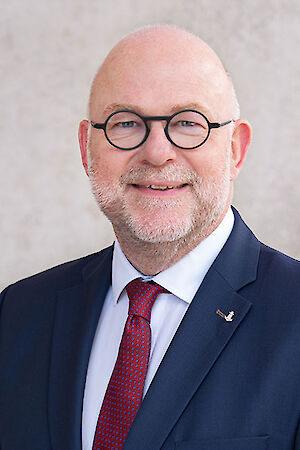

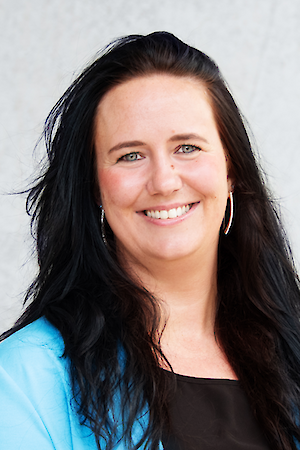

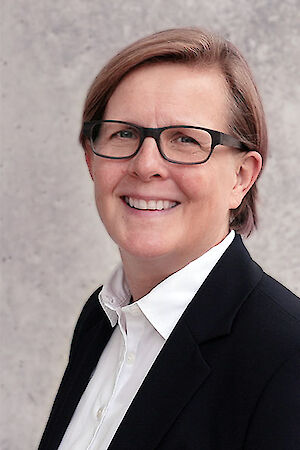
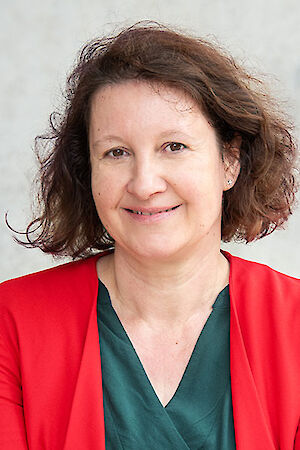
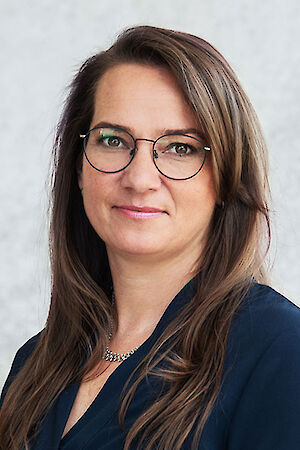

Transport policy lobbying continued virtually








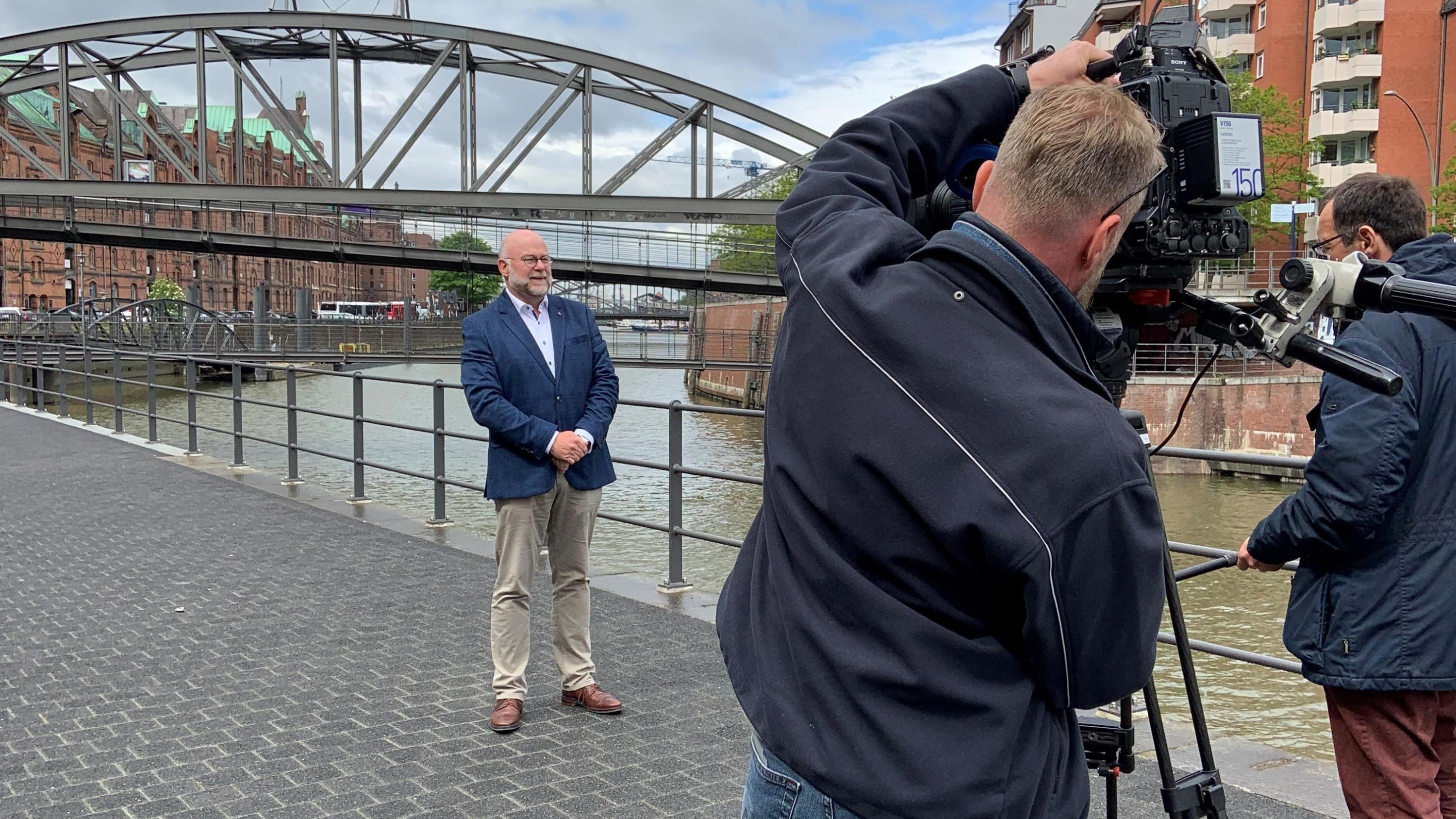
Communication & Information
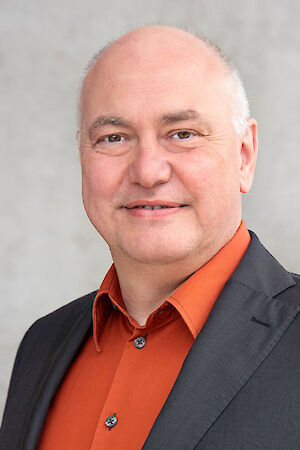

On all of our social media channels we set out to strengthen our activities in 2020. We were able to use the various platforms to reach different target groups,in an ad hoc manner. This paid off with increasing numbers of followers in all networks and greater outreach. During the year we introduced new formats,port workers were able to make their voices heard,we extended our network and,in these insecure times,tried to set up a joint platform with our members. We were able to witness highlights close up,such as the arrival of ‘HMM Algeciras’ and ‘HMM Hamburg’,and we took our followers along for the ride. We were also able to share the historic return of the four-mast barque ‘Peking` by livestream. Exactly the same way,we used our channels to spread important information from our Representative Offices. It was an exciting,if strenuous year for the social media team at Port of Hamburg Marketing. We were challenged like never before. However,we received great support from our Representative Offices.
On LinkedIn,386 postings were viewed more than 1.5 million times and on Facebook,362 contributions received more than 1.7 million hits.
Because of the increasing interest of followers in video contents,we introduced the new format PORTtalk in April 2020. By using decorator’s fleece,we turned our conference room into a studio and started to produce the first videos for our channel. By the end of the year,we made more than 60 PORTmovies and PORTtalks,featuring the Port of Hamburg,the hinterland terminals and our members. On LinkedIn and Facebook these videos were seen more than 120,0 times.
Moreover,we strengthened our collaboration with member companies in social media marketing,developing joint campaigns,and making the outreach of our channels available to our members.
By the end of 2020,we had more than 35,0 followers across all channels. We have started 2021 with great ambition to take our work on social media even further.


On all of our social media channels we set out to strengthen our activities in 2020. We were able to use the various platforms to reach different target groups,in an ad hoc manner. This paid off with increasing numbers of followers in all networks and greater outreach. During the year we introduced new formats,port workers were able to make their voices heard,we extended our network and,in these insecure times,tried to set up a joint platform with our members. We were able to witness highlights close up,such as the arrival of ‘HMM Algeciras’ and ‘HMM Hamburg’,and we took our followers along for the ride. We were also able to share the historic return of the four-mast barque ‘Peking` by livestream. Exactly the same way,we used our channels to spread important information from our Representative Offices. It was an exciting,if strenuous year for the social media team at Port of Hamburg Marketing. We were challenged like never before. However,we received great support from our Representative Offices.
On LinkedIn,386 postings were viewed more than 1.5 million times and on Facebook,362 contributions received more than 1.7 million hits.
Because of the increasing interest of followers in video contents,we introduced the new format PORTtalk in April 2020. By using decorator’s fleece,we turned our conference room into a studio and started to produce the first videos for our channel. By the end of the year,we made more than 60 PORTmovies and PORTtalks,featuring the Port of Hamburg,the hinterland terminals and our members. On LinkedIn and Facebook these videos were seen more than 120,0 times.
Moreover,we strengthened our collaboration with member companies in social media marketing,developing joint campaigns,and making the outreach of our channels available to our members.
By the end of 2020,we had more than 35,0 followers across all channels. We have started 2021 with great ambition to take our work on social media even further.
One major advantage of HHM’s new online formats is the considerably greater range – also geographically – along with the opportunity to make conferences available later s as videos to anybody interested.
As a further task, in October 2020 I took over Membership Management together with Heike Wegner. I also joined the PORTtalk editorial team, which was only founded in 2020.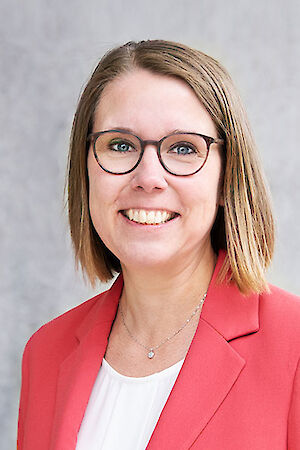



One major advantage of HHM’s new online formats is the considerably greater range – also geographically – along with the opportunity to make conferences available later s as videos to anybody interested.
As a further task, in October 2020 I took over Membership Management together with Heike Wegner. I also joined the PORTtalk editorial team, which was only founded in 2020.



With the just developed PORTtalk video format covering online events such as press conferences and PORTtalk live,HHM added a great quantity of moving images to its home page. The building and enlargement of HHM’s video studio as the basis for the various event formats was honoured by the customers with increasing viewer totals. HHM now also offers the studio to association members,who can host their own events there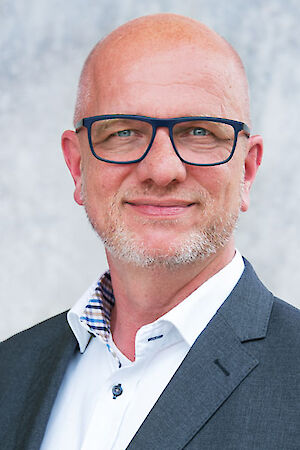
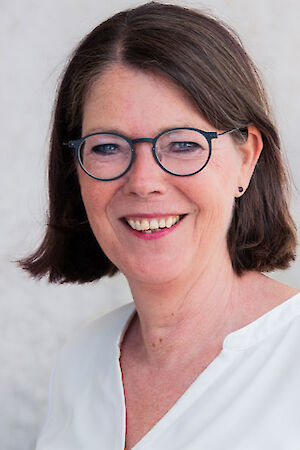

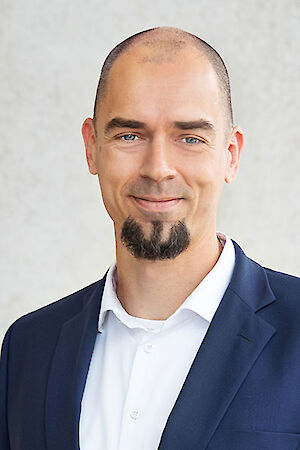




With the just developed PORTtalk video format covering online events such as press conferences and PORTtalk live, HHM added a great quantity of moving images to its home page. The building and enlargement of HHM’s video studio as the basis for the various event formats was honoured by the customers with increasing viewer totals. HHM now also offers the studio to association members, who can host their own events there







Market research
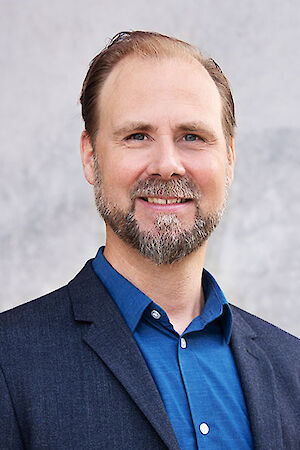

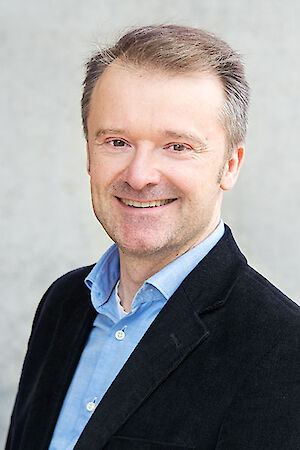





Projects
Initial idea for project:Measures and instruments to reduce emissions in ports and on their hinterland infrastructure.
Focus:Further development of EU Baltic strategy and its plan of action,as well as main funding in close cooperation with the Priority Area Coordinator Transport on Baltic strategy.
Pooling and analysis of results of transport projects in the current Interreg Baltic programme for drafting of upcoming Baltic programmes 2021-2027 as well as input for the update of EU Baltic strategy.
Reduction of CO2 emissions from port-related road traffic by development and implementation of regional political instruments and measures.
Boosting of multimodal transport in the Baltic region and support for building new multimodal logistics chains.
Implementation of technical and infrastructural measures and development of new transport solution to boost inland waterway shipping in the Baltic region.
Backing intermodal freight traffic growth in the North Sea region with ‘smart’ and efficiency-boosting measures.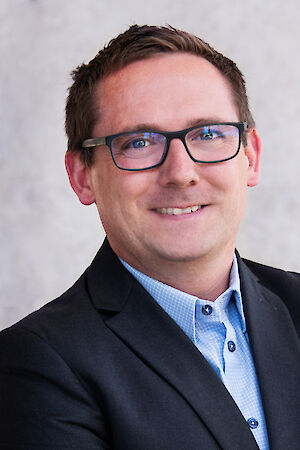

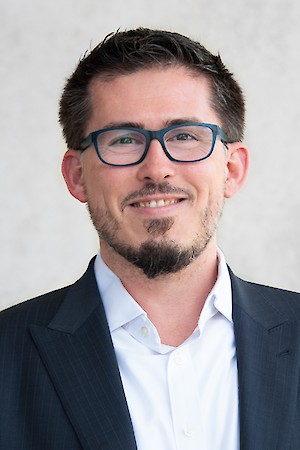
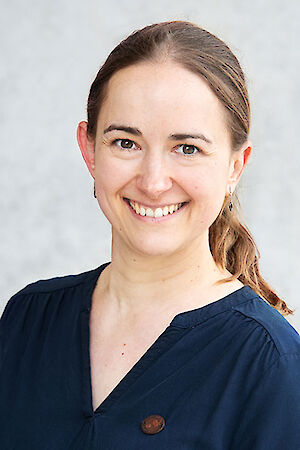

Initial idea for project:Measures and instruments to reduce emissions in ports and on their hinterland infrastructure.
Focus:Further development of EU Baltic strategy and its plan of action,as well as main funding in close cooperation with the Priority Area Coordinator Transport on Baltic strategy.
Pooling and analysis of results of transport projects in the current Interreg Baltic programme for drafting of upcoming Baltic programmes 2021-2027 as well as input for the update of EU Baltic strategy.
Reduction of CO2 emissions from port-related road traffic by development and implementation of regional political instruments and measures.
Boosting of multimodal transport in the Baltic region and support for building new multimodal logistics chains.
Implementation of technical and infrastructural measures and development of new transport solution to boost inland waterway shipping in the Baltic region.
Backing intermodal freight traffic growth in the North Sea region with ‘smart’ and efficiency-boosting measures.





www.hafen-Hamburg.de/de/wasserstrassen. ‘BiSchi Online’ immediately enables users to collect information on Germany’s inland waterway network. Whether on water levels, a search for berths or the obligatory glance at the traffic situation – the new digital map services provide such data free of charge. The information about available load/discharge ports and their locations, especially, illuminates the existing transport network and its potential. In addition, the display of ship positions also facilitates a view of the traffic situation. An integrated search function permits rapid navigation to the data sought, e.g. on tide levels in the ports and along routes.
The tool will undergo further development in future. A route planning function is envisaged, for example.


www.hafen-Hamburg.de/de/wasserstrassen. ‘BiSchi Online’ immediately enables users to collect information on Germany’s inland waterway network. Whether on water levels, a search for berths or the obligatory glance at the traffic situation – the new digital map services provide such data free of charge. The information about available load/discharge ports and their locations, especially, illuminates the existing transport network and its potential. In addition, the display of ship positions also facilitates a view of the traffic situation. An integrated search function permits rapid navigation to the data sought, e.g. on tide levels in the ports and along routes.
The tool will undergo further development in future. A route planning function is envisaged, for example.

Markets
Germany
Online dating does a good job
‘Everything done differently always works!’ Ever since the computer has shaped my working day,that’s been the phrase on my screen-saver. It has never been more applicable than since 13 March 2020. Almost everything that is part of my job has been different since then. And it works!
2020 was planned as a year of change anyway. Still working in the PR / Communications Department of Port of Hamburg Marketing,I was trained on the job before succeeding Jürgen Behrens as Head of HHM’s Representative Office for South Germany and Switzerland. Jürgen Behrens retired in April this year. Nobody had imagined that our New Year’s Receptions in Munich,Nuremberg and Stuttgart in January 2020 would be the last in-person events until further notice. Several hundred players from the logistics sector used these events to build up and deepen their network – without knowing that they would be the last for a long time.
Port of Hamburg Marketing had numerous plans for the south for the summer. Those for a major customer event in cooperation with IGS at the hinterland hub in Heilbronn had to be discarded. So did others for information events in Munich and Regensburg. In the end,neither major events nor the Round Table formats planned for the autumn could take place. Trade fair showcasing proved impossible. Customer events were transferred to the screen.
Especially the first lockdown demonstrated new opportunities for cooperation,and the immense cohesion in our organization. When the Executive Board personally delivers an office chair to an employee’s home,or young sporty female colleagues send a daily invitation to after-hours workouts,it creates a good feeling at a time of uncertainty.
In no time at all,we set up our own Covid-19 portal and stepped up our social media activities. All our colleagues from Head Office and the Representative Offices collected valuable data from their regions and fields of experstise. We made this available to member companies,the general public and business community through various channels. Tony Mark,Assistant in the HHR South Germany and Switzerland,became part of the social media team as other colleagues did,thought to be far away,in our outlying offices. New teams emerged,translated news bulletins,wrote news reports and produced video contributions.
During the brief summer Corona relaxation,we planned smaller networking formats for the autumn in our Munich office – only to have to cancel them in the end. All activities necessarily remained on the net. More than 50 ‘online dates’ with fellow players in the Bavarian,Baden-Württemberg and Swiss markets,along with virtual attendance at committee and trade association meetings and specialist online conferences,prepared me for my new portfolio of tasks as Jürgen Behrens’s successor – or as well as was actually possible in Corona times. Virtually every online conversation ended with the sentence ‘Maybe we willl meet in person soon.’ These dates to get to know each other still remain open. Jürgen Behrens said goodbye to his fellow colleagues in the industry entirely with video chats. Despite everything,online-formats are doing a good job these days – at least for the time until the industry can meet in person again.

The New Year’s Reception in Nuremberg was one of the last face-to-face events in 2020
Online working groups and new formats for a strong hinterland presence
Adapting to corona-compatible operation poses special challenges for daily operations. With the technical requirements either already fulfilled or very rapidly obtainable,conversion to home working ran smoothly. The Hamburg Representative Office-HHR’s effectiveness therefore remained uninterrupted. In February events were still being prepared,but the current situation then forced cancellation. Hope persisted that in-person events might be held again – but this was not fulfilled by year-end. A rapid start was therefore made on converting specific formats,especially at working level,to video conferences. We succeeded in maintaining routine work,partly indeed in improved conditions. This included the Hamburg Inland Waterway Working Group,which met online in June. Cooperation on the GKE Elbe Masterplan was also mainly online,although the head of the HHR has also been spokesman for the business representatives in the GKE since the beginning of 2020. As the first ‘outside booking’ for the Peter Pickhuben Studio in Hamburg,the traditional Elbe Shipping Day was held there on 1 June 2020.
In summer,a mix of in-person and online events was held. Among the hosts for lectures were the European River-Sea Transport Union-ERSTU,KEO and VCI East. One special challenge was an online workshop at Gera University. Lasting over six hours,this proved extremely strenuous for both speakers and students. All the more pleasing,then,that the same event could be held at Glauchau Academy in-person,even if with conditions attached.
We joined in developing the PORTtalk series at an early stage. Using standard tools,at the end of April a brief film contribution was made by HHR Dresden,and posted on the website and social media. Shooting in Berlin,Grossbeeren and Königs Wusterhausen was then more professional,the aim of the film being to stress the Port of Hamburg’s links with Tesla’s giga factory now under construction. With the editorial team actively cooperating on HHM’s PORTtalk series,ideas for including the hinterland were also added.
Since spring,2020,direct customer contacts with freight forwarders and logistics companies have been almost completely restricted to virtual ones – some of these being much intensified,however. Our clients are working almost entirely at home,or under visit ban. Generally,a wish to make personal contact is becoming ever more noticeable. Although the PORTtalk live series is arousing great interest,the desire for on-the-spot meetings with an opportunity for active networking is continually growing. Let’s hope for a better 2021.

Stefan Kunze reports in the new video format PORTtalk about the situation in his Representative Office area
Digital creativity for port and hinterland
In 2020,the situation on the markets,like our own way of working,was to a large extent determined by Corona factors. Serious volume fluctuations,uncertainty,lack of transparency and contact restrictions turned practically everything upside down. Personal appointments and functions were impossible for Port of Hamburg Marketing to fulfil. Yet the pandemic pushed us into digital creativity. New online tools and formats equipped our team to maintain the vital link with our port customers and to place our information on the market. Our targeting became more precise and our address lists grew.
The highlights here were videos to boost inland terminals through online marketing of the locations,and the new ‘PORTtalk live’ series. Topics covered in a series of hosted discussions included Hamburg’s close intermeshing with its hinterland,especially by rail.The first year of Corona offered plenty of fascinating specialist topics. Among these was calamity timber,or damaged tree trunks,which are currently one of the major contributors to volume on hinterland services. One challenge repeatedly arising on that is the container gassing frequently required pre-export. Our goal here was to create the conditions for large volumes to come to Hamburg by rail.
Further work was done in 2020 on the maritime link for the new “South Westphalia Container Terminal” in Kreuztal,also a major element in the continuation of the Hamburg-NRWplus project. Timber shipments also play a part there.
Establishing new intermodal links for maritime shipments between this region and Hamburg,along with strengthening existing ones,is a constant thread in our work. Progress on the Warsteiner block train and the boost to its frequency,also the successful marketing of the Hamburg-Cologne train,are most satisfactory. In addition,we kept an eye on the launching of feeder services to provide maritime links with Hamburg for additional regions,two examples being the Saarland and the Neuss-Düsseldorf area.
Another highlight of the Hamburg-NRWplus project still being pursued was consideration of the substance of any simplification of heavy-load rail services. The aim is to set up a standard-permit corridor for heavy freight from the Siegerland to Hamburg. The dialogue here,primarily with the Hamburg Port Railway and the Association of German Transport Companies-VDV,is truly setting the pace.

Filming at the Warsteiner brewery
Online dating does a good job
‘Everything done differently always works!’ Ever since the computer has shaped my working day,that’s been the phrase on my screen-saver. It has never been more applicable than since 13 March 2020. Almost everything that is part of my job has been different since then. And it works!
2020 was planned as a year of change anyway. Still working in the PR / Communications Department of Port of Hamburg Marketing,I was trained on the job before succeeding Jürgen Behrens as Head of HHM’s Representative Office for South Germany and Switzerland. Jürgen Behrens retired in April this year. Nobody had imagined that our New Year’s Receptions in Munich,Nuremberg and Stuttgart in January 2020 would be the last in-person events until further notice. Several hundred players from the logistics sector used these events to build up and deepen their network – without knowing that they would be the last for a long time.
Port of Hamburg Marketing had numerous plans for the south for the summer. Those for a major customer event in cooperation with IGS at the hinterland hub in Heilbronn had to be discarded. So did others for information events in Munich and Regensburg. In the end,neither major events nor the Round Table formats planned for the autumn could take place. Trade fair showcasing proved impossible. Customer events were transferred to the screen.
Especially the first lockdown demonstrated new opportunities for cooperation,and the immense cohesion in our organization. When the Executive Board personally delivers an office chair to an employee’s home,or young sporty female colleagues send a daily invitation to after-hours workouts,it creates a good feeling at a time of uncertainty.
In no time at all,we set up our own Covid-19 portal and stepped up our social media activities. All our colleagues from Head Office and the Representative Offices collected valuable data from their regions and fields of experstise. We made this available to member companies,the general public and business community through various channels. Tony Mark,Assistant in the HHR South Germany and Switzerland,became part of the social media team as other colleagues did,thought to be far away,in our outlying offices. New teams emerged,translated news bulletins,wrote news reports and produced video contributions.
During the brief summer Corona relaxation,we planned smaller networking formats for the autumn in our Munich office – only to have to cancel them in the end. All activities necessarily remained on the net. More than 50 ‘online dates’ with fellow players in the Bavarian,Baden-Württemberg and Swiss markets,along with virtual attendance at committee and trade association meetings and specialist online conferences,prepared me for my new portfolio of tasks as Jürgen Behrens’s successor – or as well as was actually possible in Corona times. Virtually every online conversation ended with the sentence ‘Maybe we willl meet in person soon.’ These dates to get to know each other still remain open. Jürgen Behrens said goodbye to his fellow colleagues in the industry entirely with video chats. Despite everything,online-formats are doing a good job these days – at least for the time until the industry can meet in person again.

The New Year’s Reception in Nuremberg was one of the last face-to-face events in 2020
Online working groups and new formats for a strong hinterland presence
Adapting to corona-compatible operation poses special challenges for daily operations. With the technical requirements either already fulfilled or very rapidly obtainable,conversion to home working ran smoothly. The Hamburg Representative Office-HHR’s effectiveness therefore remained uninterrupted. In February events were still being prepared,but the current situation then forced cancellation. Hope persisted that in-person events might be held again – but this was not fulfilled by year-end. A rapid start was therefore made on converting specific formats,especially at working level,to video conferences. We succeeded in maintaining routine work,partly indeed in improved conditions. This included the Hamburg Inland Waterway Working Group,which met online in June. Cooperation on the GKE Elbe Masterplan was also mainly online,although the head of the HHR has also been spokesman for the business representatives in the GKE since the beginning of 2020. As the first ‘outside booking’ for the Peter Pickhuben Studio in Hamburg,the traditional Elbe Shipping Day was held there on 1 June 2020.
In summer,a mix of in-person and online events was held. Among the hosts for lectures were the European River-Sea Transport Union-ERSTU,KEO and VCI East. One special challenge was an online workshop at Gera University. Lasting over six hours,this proved extremely strenuous for both speakers and students. All the more pleasing,then,that the same event could be held at Glauchau Academy in-person,even if with conditions attached.
We joined in developing the PORTtalk series at an early stage. Using standard tools,at the end of April a brief film contribution was made by HHR Dresden,and posted on the website and social media. Shooting in Berlin,Grossbeeren and Königs Wusterhausen was then more professional,the aim of the film being to stress the Port of Hamburg’s links with Tesla’s giga factory now under construction. With the editorial team actively cooperating on HHM’s PORTtalk series,ideas for including the hinterland were also added.
Since spring,2020,direct customer contacts with freight forwarders and logistics companies have been almost completely restricted to virtual ones – some of these being much intensified,however. Our clients are working almost entirely at home,or under visit ban. Generally,a wish to make personal contact is becoming ever more noticeable. Although the PORTtalk live series is arousing great interest,the desire for on-the-spot meetings with an opportunity for active networking is continually growing. Let’s hope for a better 2021.

Stefan Kunze reports in the new video format PORTtalk about the situation in his Representative Office area
Digital creativity for port and hinterland
In 2020,the situation on the markets,like our own way of working,was to a large extent determined by Corona factors. Serious volume fluctuations,uncertainty,lack of transparency and contact restrictions turned practically everything upside down. Personal appointments and functions were impossible for Port of Hamburg Marketing to fulfil. Yet the pandemic pushed us into digital creativity. New online tools and formats equipped our team to maintain the vital link with our port customers and to place our information on the market. Our targeting became more precise and our address lists grew.
The highlights here were videos to boost inland terminals through online marketing of the locations,and the new ‘PORTtalk live’ series. Topics covered in a series of hosted discussions included Hamburg’s close intermeshing with its hinterland,especially by rail.The first year of Corona offered plenty of fascinating specialist topics. Among these was calamity timber,or damaged tree trunks,which are currently one of the major contributors to volume on hinterland services. One challenge repeatedly arising on that is the container gassing frequently required pre-export. Our goal here was to create the conditions for large volumes to come to Hamburg by rail.
Further work was done in 2020 on the maritime link for the new “South Westphalia Container Terminal” in Kreuztal,also a major element in the continuation of the Hamburg-NRWplus project. Timber shipments also play a part there.
Establishing new intermodal links for maritime shipments between this region and Hamburg,along with strengthening existing ones,is a constant thread in our work. Progress on the Warsteiner block train and the boost to its frequency,also the successful marketing of the Hamburg-Cologne train,are most satisfactory. In addition,we kept an eye on the launching of feeder services to provide maritime links with Hamburg for additional regions,two examples being the Saarland and the Neuss-Düsseldorf area.
Another highlight of the Hamburg-NRWplus project still being pursued was consideration of the substance of any simplification of heavy-load rail services. The aim is to set up a standard-permit corridor for heavy freight from the Siegerland to Hamburg. The dialogue here,primarily with the Hamburg Port Railway and the Association of German Transport Companies-VDV,is truly setting the pace.

Filming at the Warsteiner brewery
Central and Eastern Europe
New communication channels ensure strong market presence and record result in 2020
The outbreak of the corona pandemic brought some changes in the Vienna Representative Office - HHR. Numerous personal appointments were replaced by phone calls and video conferences, so that the HHR Vienna forfeited none of its market presence. With the opportunity for online presentations, the total number of lectures by Alexander Till even rose. Lectures on sea freight were delivered at trade schools and universities, companies and associations, throughout Austria. An audience of over 500 viewers from several federal states was reached.
One highlight of 2020 was the delegation trip with Under-Secretary Peter Hanke to Hamburg in August. This was organized by the HHR Vienna along with Head Office. The visit included calls on Dr. Andreas Dressel, Finance Senator, Councillor Almut Möller and Senator Dr. Anjes Tjarks.
The Vienna Representative Office has been active on LinkedIn since the end of 2020, reporting there on the latest developments in the overseas segment of the Austrian market, and strengthening the Port of Hamburg’s position. The first video for the PORTtalk format in Vienna was made back in April. In the following months, additional filming equipment was acquired, and further contributions produced.
From mid-March 2020, the year in Austria was marked by several lockdowns, with measures of varying severity. One of these, as in many other countries, called for working from home. The improvised home office, including home schooling, was naturally a fresh challenge at the time, but one we mastered well after a period of our adapting to the idea.
Despite the corona pandemic, the Austrian market progressed very well in 2020. The business from voestalpine produced a new record for Austria-Hamburg services at 4.45 million tons. The result for containerized freight was the second best since records started to be kept during the 1950s.

The setup at HHR Vienna for the first PORTtalk recordings
Hamburg defends position as leading port for Czech Republic – even from home
At the beginning of 2020, news bulletins about the coronavirus were suddenly piling up. As seen from Central Europe and the Czech Republic, it seemed far off. Yet, then we had our first cases. It rapidly became clear that this was no purely local problem. To prevent a rapid spread of the virus, various measures were implemented, including restricting social contacts to a minimum. For a year now we have lived with the virus that has lastingly changed our world, our everyday life, and naturally our work.
Overnight, personal contacts – the basis of our work – were seriously limited or rendered impossible. The same applied to appointments with customers or business partners. Many employers reacted, and facilitated work from home for their staff. All major functions, or those requiring an in-person presence, were cancelled or shifted to virtual space. The novel conditions had serious repercussions for our style at work but also revealed new technical opportunities for our marketing activities. We had to adjust rapidly to this situation and acquire new IT skills.
HHR Prague’s traditional top functions, including the Port Evening and the round tables, had to be cancelled in 2020. Other events with active HHR Prague involvement, such as the Speedchain CZ/SK transport conference, another hosted by the Slovakian Forwarding Association, DTIHK’s AK Transport & Logistics, and the Czech Forwarding Association’s Maritime Club, were held online. Despite travel and contact restrictions, therefore, we remained in at least virtual daily contact with our customers, partners and member companies.
The media naturally played a big part in our activities. To publicize the latest news of the Port of Hamburg in Czech or English as swiftly as possible, we stepped up our cooperation with the trade press. We pursued the same goal via the social media LinkedIn and Facebook, as well as the Czech Forwarding Association’s daily e-News.
Despite the unusual situation and all the difficulties involved, Czechoslovakia’s economy and foreign trade fared relatively well. Hamburg defended its position as the top port, or Gateway to the World, for Czech imports and exports. In 2020, over 450,000 TEU were transported on intermodal rail services between Hamburger container terminals and container hubs in the Czech Republic and Slovakia.

Vladimir Dobos, Head of HHR Prague, fully equipped for video conferences
Home office and online formats shape routine work
2020 commenced absolutely normally. We had already booked the venue for our Port Evening. The first companies had registered to reserve places for their staffers on the autumn trip to Hamburg. Transport-relevant statistics had just been collected from shipping companies, terminals and rail operators. So ‘the same procedure as every year’ applied at the outset. It was still in January that the media started to report about a very dangerous lung sickness that had broken out in China. We were hearing daily how fast the infection could be passed on and how rapidly it was spreading towards Europe. In February, we were shocked by the tragedy in Bergamo, Italy. It was not long before the first sick people were tested in Hungary, at the beginning of March. In Hungary a national state of emergency was declared on 11 March that meant bringing special legislation into force.
From that point, nothing was as it had been previously. Home office and home schooling suddenly became a reality. The pandemic caused massive interventions in our daily lives. We were captured by worries about everyday life, jobs, the family and our fellow-citizens, and consequently to a great extent isolated! The border was closed. There was talk of a truck driver shortage and it was feared that supply chains could no longer be maintained. Many people became aware that the repercussions of the Covid19 pandemic would trigger an economic crisis in 2020/21. Numerous companies suspended production and there was a standstill in the automotive industry that is of such importance for Hungary.
Then we had survived the first wave and could breathe out slightly again in the hope that the nightmare would soon be over. Totally wrong! Events requiring a physical presence were still impossible and we attended countless online events and conferences. Yet these offered nothing of what we enjoyed so much at previous functions: chatting with each other beforehand and during the breaks, swapping views, simply being together! Our Representatives’ Conference in Hamburg in August - even if in a corona-compatible format - was a very welcome change.
In the second wave, when the health care system was better prepared for the pandemic, less strict protective measures were introduced so as to keep the economy going at all costs. Yet from November the number of sick people again increased, so that fresh steps were taken. However, the extent of the restrictions did not attain the severity of the protective measures imposed in the spring.
Despite everything, the Hungarian government reckoned on an economic downturn of between five and six percent, and GDP in 2020 was finally 5.1 percent down on the previous year. The volume of containerized freight to and from Hungary was just 0.8 percent lower, with Hungarian imports and exports totalling 456,000 TEU

Krisztina Kovacs, Head of HHR Budapest, at the Representatives meeting in Hamburg, which could take place on site under corona conditions
New communication channels ensure strong market presence and record result in 2020
The outbreak of the corona pandemic brought some changes in the Vienna Representative Office - HHR. Numerous personal appointments were replaced by phone calls and video conferences, so that the HHR Vienna forfeited none of its market presence. With the opportunity for online presentations, the total number of lectures by Alexander Till even rose. Lectures on sea freight were delivered at trade schools and universities, companies and associations, throughout Austria. An audience of over 500 viewers from several federal states was reached.
One highlight of 2020 was the delegation trip with Under-Secretary Peter Hanke to Hamburg in August. This was organized by the HHR Vienna along with Head Office. The visit included calls on Dr. Andreas Dressel, Finance Senator, Councillor Almut Möller and Senator Dr. Anjes Tjarks.
The Vienna Representative Office has been active on LinkedIn since the end of 2020, reporting there on the latest developments in the overseas segment of the Austrian market, and strengthening the Port of Hamburg’s position. The first video for the PORTtalk format in Vienna was made back in April. In the following months, additional filming equipment was acquired, and further contributions produced.
From mid-March 2020, the year in Austria was marked by several lockdowns, with measures of varying severity. One of these, as in many other countries, called for working from home. The improvised home office, including home schooling, was naturally a fresh challenge at the time, but one we mastered well after a period of our adapting to the idea.
Despite the corona pandemic, the Austrian market progressed very well in 2020. The business from voestalpine produced a new record for Austria-Hamburg services at 4.45 million tons. The result for containerized freight was the second best since records started to be kept during the 1950s.

The setup at HHR Vienna for the first PORTtalk recordings
Hamburg defends position as leading port for Czech Republic – even from home
At the beginning of 2020, news bulletins about the coronavirus were suddenly piling up. As seen from Central Europe and the Czech Republic, it seemed far off. Yet, then we had our first cases. It rapidly became clear that this was no purely local problem. To prevent a rapid spread of the virus, various measures were implemented, including restricting social contacts to a minimum. For a year now we have lived with the virus that has lastingly changed our world, our everyday life, and naturally our work.
Overnight, personal contacts – the basis of our work – were seriously limited or rendered impossible. The same applied to appointments with customers or business partners. Many employers reacted, and facilitated work from home for their staff. All major functions, or those requiring an in-person presence, were cancelled or shifted to virtual space. The novel conditions had serious repercussions for our style at work but also revealed new technical opportunities for our marketing activities. We had to adjust rapidly to this situation and acquire new IT skills.
HHR Prague’s traditional top functions, including the Port Evening and the round tables, had to be cancelled in 2020. Other events with active HHR Prague involvement, such as the Speedchain CZ/SK transport conference, another hosted by the Slovakian Forwarding Association, DTIHK’s AK Transport & Logistics, and the Czech Forwarding Association’s Maritime Club, were held online. Despite travel and contact restrictions, therefore, we remained in at least virtual daily contact with our customers, partners and member companies.
The media naturally played a big part in our activities. To publicize the latest news of the Port of Hamburg in Czech or English as swiftly as possible, we stepped up our cooperation with the trade press. We pursued the same goal via the social media LinkedIn and Facebook, as well as the Czech Forwarding Association’s daily e-News.
Despite the unusual situation and all the difficulties involved, Czechoslovakia’s economy and foreign trade fared relatively well. Hamburg defended its position as the top port, or Gateway to the World, for Czech imports and exports. In 2020, over 450,000 TEU were transported on intermodal rail services between Hamburger container terminals and container hubs in the Czech Republic and Slovakia.

Vladimir Dobos, Head of HHR Prague, fully equipped for video conferences
Home office and online formats shape routine work
2020 commenced absolutely normally. We had already booked the venue for our Port Evening. The first companies had registered to reserve places for their staffers on the autumn trip to Hamburg. Transport-relevant statistics had just been collected from shipping companies, terminals and rail operators. So ‘the same procedure as every year’ applied at the outset. It was still in January that the media started to report about a very dangerous lung sickness that had broken out in China. We were hearing daily how fast the infection could be passed on and how rapidly it was spreading towards Europe. In February, we were shocked by the tragedy in Bergamo, Italy. It was not long before the first sick people were tested in Hungary, at the beginning of March. In Hungary a national state of emergency was declared on 11 March that meant bringing special legislation into force.
From that point, nothing was as it had been previously. Home office and home schooling suddenly became a reality. The pandemic caused massive interventions in our daily lives. We were captured by worries about everyday life, jobs, the family and our fellow-citizens, and consequently to a great extent isolated! The border was closed. There was talk of a truck driver shortage and it was feared that supply chains could no longer be maintained. Many people became aware that the repercussions of the Covid19 pandemic would trigger an economic crisis in 2020/21. Numerous companies suspended production and there was a standstill in the automotive industry that is of such importance for Hungary.
Then we had survived the first wave and could breathe out slightly again in the hope that the nightmare would soon be over. Totally wrong! Events requiring a physical presence were still impossible and we attended countless online events and conferences. Yet these offered nothing of what we enjoyed so much at previous functions: chatting with each other beforehand and during the breaks, swapping views, simply being together! Our Representatives’ Conference in Hamburg in August - even if in a corona-compatible format - was a very welcome change.
In the second wave, when the health care system was better prepared for the pandemic, less strict protective measures were introduced so as to keep the economy going at all costs. Yet from November the number of sick people again increased, so that fresh steps were taken. However, the extent of the restrictions did not attain the severity of the protective measures imposed in the spring.
Despite everything, the Hungarian government reckoned on an economic downturn of between five and six percent, and GDP in 2020 was finally 5.1 percent down on the previous year. The volume of containerized freight to and from Hungary was just 0.8 percent lower, with Hungarian imports and exports totalling 456,000 TEU

Krisztina Kovacs, Head of HHR Budapest, at the Representatives meeting in Hamburg, which could take place on site under corona conditions
Baltic region / Eastern Europe
Baltic region / Eastern Europe
For the Baltic region,the Port of Hamburg is the most important seaport in Europe. The Port of Hamburg’s most essential link to the Baltic region is the Kiel Canal. In 2020 HHM Representative Office in St Petersburg looked after the market region,standing in for manager Marina Basso Michael.

With online formats from home office for the port
The Covid19 pandemic made a big impact on our activities at the Port of Hamburg Warsaw Representative Office-HHR. In-person events,including the Port Evening,were cancelled. Attendance at congresses and conferences was restricted. Nevertheless,we organized one online event and actively participated in external conferences. For port customers in Poland,Czech Republic and Slovakia,we broadcasted a webinar about the latest developments in the Port of Hamburg from the new film studio at HHM Head Office in Hamburg. In addition,Warsaw HHR co-organized the German-Polish Logistics Forum. This was held by the Logistics Alliance Germany,commissioned by the BMVI – Federal Ministry of Transport and Digital Infrastructure,and with a member of the german parliament,Steffen Bilger,participating. I delivered lectures on the Port of Hamburg at nine other trade conferences. For the most part,these were focussed on the port’s intermodal links with Poland,and intelligent solutions and the ‘Smart Port’ concept. I also covered the Intermodal Forum,Rail Freight Summit,Smart Port International Conference and Top Industry Summit. In addition,I gave lectures for students on the Port of Hamburg,and also HHM.
With personal contacts impossible,I was in contact with port customers in Poland by phone or mail,and later via MS Teams or Zoom to pass on and collect data. When the current situation permitted,a few visits were made,although we preferred contact via other communications channels. Regular contact was made with selected companies to collect data on Polish seaports,rail operators and market trends.
I prepared quarterly reports on market/terminal trends in the form of documents or films. I also maintained communication with the market via social media,primarily LinkedIn,to provide information on new developments and the situation in the Elbe ports,e.g. on new deepsea links. This was also used to announce planned events and issue invitations to these.
In our cooperation with traditional media,we not only gave newspaper interviews,translated/ distributed our press releases,but wrote some of our own articles. Also press articles for the trade journal ‘Namiary’ on the topics ‘Intelligent solutions’,‘Hinterland services’,‘Covid-19 in HH’ and ‘Inland Waterway Shipping’,as well as a text on the trend in the sea freight market and seaports for the trade magazine ‘Eurologistics’.
Diana fehtl!!

Maciej Brzozowski talks in the PORTtalk format about the situation in Poland
Customer contact via social media and new potential through online travel
Russia too entered lockdown at the end of March 2020. Events were cancelled,universities and museums closed,and in some parts of the country curfews were imposed. At first,this aroused fear. Uncertainty and lack of knowledge about the new illness stirred doubt about whether reliable work by all those involved in the transport and logistics market could be guaranteed.
Yet by the end of April it became more or less clear how work during lockdown could be structured. We recognized what opportunities for communication were available and learned to use and expand these channels.
Social networks have gained special importance. In Russia Telegram and VKontakte are especially popular,and we have opened Russian Port of Hamburg channels in these to remain in contact with customers and to broadcast news of new developments. Naturally,personal communication cannot be replaced by online communication,and we very much look forward to a resumption of live conferences,trade fairs,receptions and briefing events.
Yet we also gained some positives from the new communication channels. The online format enabled us to travel worldwide without leaving home or the office. We could also communicate virtually with colleagues in other countries,present projects/opportunities,and pursue exchanges about numerous new things and experiences. Within one day,moreover,we can simultaneously attend several events! If two events clash,that’s a pity,however,since we haven’t yet learned to be in two places at once.
Spread through the whole year,we were able to attend various conferences and events in Moscow,Rostov-on-Don,Helsinki,St. Petersburg,Kaliningrad,Hamburg,Tallinn and Berlin. We spoke at these and positioned the Port of Hamburg on the Russian market. Worth special mention,for instance,was attendance at the Transtec Forum 2020 in September,where we placed SmartPort Hamburg. We also gave a ‘Port of Hamburg:Current Developments’ report at the ‘Doing business with Germany’ conference at the beginning of the year.

Natalia Kapkajewa,Head of HHR St. Petersburg at Transtec_NEVA International.
Baltic region / Eastern Europe
For the Baltic region,the Port of Hamburg is the most important seaport in Europe. The Port of Hamburg’s most essential link to the Baltic region is the Kiel Canal. In 2020 HHM Representative Office in St Petersburg looked after the market region,standing in for manager Marina Basso Michael.

With online formats from home office for the port
The Covid19 pandemic made a big impact on our activities at the Port of Hamburg Warsaw Representative Office-HHR. In-person events,including the Port Evening,were cancelled. Attendance at congresses and conferences was restricted. Nevertheless,we organized one online event and actively participated in external conferences. For port customers in Poland,Czech Republic and Slovakia,we broadcasted a webinar about the latest developments in the Port of Hamburg from the new film studio at HHM Head Office in Hamburg. In addition,Warsaw HHR co-organized the German-Polish Logistics Forum. This was held by the Logistics Alliance Germany,commissioned by the BMVI – Federal Ministry of Transport and Digital Infrastructure,and with a member of the german parliament,Steffen Bilger,participating. I delivered lectures on the Port of Hamburg at nine other trade conferences. For the most part,these were focussed on the port’s intermodal links with Poland,and intelligent solutions and the ‘Smart Port’ concept. I also covered the Intermodal Forum,Rail Freight Summit,Smart Port International Conference and Top Industry Summit. In addition,I gave lectures for students on the Port of Hamburg,and also HHM.
With personal contacts impossible,I was in contact with port customers in Poland by phone or mail,and later via MS Teams or Zoom to pass on and collect data. When the current situation permitted,a few visits were made,although we preferred contact via other communications channels. Regular contact was made with selected companies to collect data on Polish seaports,rail operators and market trends.
I prepared quarterly reports on market/terminal trends in the form of documents or films. I also maintained communication with the market via social media,primarily LinkedIn,to provide information on new developments and the situation in the Elbe ports,e.g. on new deepsea links. This was also used to announce planned events and issue invitations to these.
In our cooperation with traditional media,we not only gave newspaper interviews,translated/ distributed our press releases,but wrote some of our own articles. Also press articles for the trade journal ‘Namiary’ on the topics ‘Intelligent solutions’,‘Hinterland services’,‘Covid-19 in HH’ and ‘Inland Waterway Shipping’,as well as a text on the trend in the sea freight market and seaports for the trade magazine ‘Eurologistics’.
Diana fehtl!!

Maciej Brzozowski talks in the PORTtalk format about the situation in Poland
Customer contact via social media and new potential through online travel
Russia too entered lockdown at the end of March 2020. Events were cancelled,universities and museums closed,and in some parts of the country curfews were imposed. At first,this aroused fear. Uncertainty and lack of knowledge about the new illness stirred doubt about whether reliable work by all those involved in the transport and logistics market could be guaranteed.
Yet by the end of April it became more or less clear how work during lockdown could be structured. We recognized what opportunities for communication were available and learned to use and expand these channels.
Social networks have gained special importance. In Russia Telegram and VKontakte are especially popular,and we have opened Russian Port of Hamburg channels in these to remain in contact with customers and to broadcast news of new developments. Naturally,personal communication cannot be replaced by online communication,and we very much look forward to a resumption of live conferences,trade fairs,receptions and briefing events.
Yet we also gained some positives from the new communication channels. The online format enabled us to travel worldwide without leaving home or the office. We could also communicate virtually with colleagues in other countries,present projects/opportunities,and pursue exchanges about numerous new things and experiences. Within one day,moreover,we can simultaneously attend several events! If two events clash,that’s a pity,however,since we haven’t yet learned to be in two places at once.
Spread through the whole year,we were able to attend various conferences and events in Moscow,Rostov-on-Don,Helsinki,St. Petersburg,Kaliningrad,Hamburg,Tallinn and Berlin. We spoke at these and positioned the Port of Hamburg on the Russian market. Worth special mention,for instance,was attendance at the Transtec Forum 2020 in September,where we placed SmartPort Hamburg. We also gave a ‘Port of Hamburg:Current Developments’ report at the ‘Doing business with Germany’ conference at the beginning of the year.

Natalia Kapkajewa,Head of HHR St. Petersburg at Transtec_NEVA International.
Asia
Hybrid trade fairs and new video formats replace business trips to Asia
The Corona pandemic hit my portfolio especially seriously. Being responsible for HHM activities in Asia, in previous years I was regularly in East Asia to look after delegation trips and trade fair participation. That completely reached zero in 2020, the first year since 2007 in which I didn’t travel to China. Fortunately, however, continuance of the work in Asia proved possible through the Representative Offices on the spot in Shanghai, Hong Kong and Mumbai, so that the Port of Hamburg still maintained its presence on the market. With the China International Import Expo (CIIE) in Shanghai in November, a regular trade fair with visitors also took place, but entry from Europe was impossible. Our Shanghai office staffed and operated the trade fair stand, representing the Port of Hamburg alongside co-exhibitor HHLA.
I am also responsible for organizing part of the Port of Hamburg’s trade fair showcasing in Germany and Western Europe. Here again, the repercussions of the pandemic were all too apparent: The ‘Breakbulk Europe’ planned for May was initially postponed to September, only to be cancelled altogether later in the year. In a normal trade fair year, planning for ‘transport logistic’ in Munich the following May would also have started in summer. In fact this actually did so, but amid uncertainty regarding a possible cancellation, which also followed at the beginning of 2021. Precisely this uncertainty, and the impossibility of planning, were what made work so difficult in 2020. All steps in planning needed to be coordinated, not just internally, but with members and co-exhibitors, and this when no reliable details were available on the further planning process. So the ‘trade fair year’ ultimately proved a no-show. Regular participants seriously missed meeting and networking at these events. And even if trade fair organizers attempt to offer certain formats online, it is clear that events of this kind cannot replace meetings with a physical presence on a trade fair stand.
In 2020 my existing activities for HHM were extended by cooperation on our new digital video formats, such as, for example, PORTtalk. I supported the team there as a presenter and, in the cutting room, as an editor. Especially for beginners, producing a film involves great challenges, yet mastering these is also a pleasure. So I hope that we shall grow increasingly professional in this area, generating some benefit for our member companies and Hamburg as a port location.
Yet it was not only with member companies that personal contact was lacking. Working from home makes one aware how much one misses working side-by-side and in a team. At any rate, I am looking forward to the moment when the HQ team can again sit around a big table on a Monday morning to exchange views together on upcoming activities.

Mathias Schulz in his new role as PORTtalk host. Here filming with Hubert Neubacher from Barkassen Meyer.
Always one step ahead…
…was and remains a fair description of our colleagues in the Hamburg Liaison Office Shanghai - HLO. The global corona pandemic involved numerous challenges for the Hamburg Representative Office in China in 2020. Breaking out in January, the pandemic made business visits extremely difficult – and with the national lockdown in February, all staff had to remain at home in their communities. Living and working as we had been accustomed to previously were no longer feasible.
Yet closure of the office did not mean cessation of HLO activities. Through online meetings on various platforms, at an early stage we were already attempting to find our favourites. When it was possible for companies to re-open, following the tough national lockdown, we initially discussed under what circumstances we would be able to offer our colleagues a safe workplace at all. Workplaces were spaced out, and strict rules applied on mouth/nose protection and disinfection. At this time, we supported the search for Chinese suppliers of protective equipment, and thereafter local authorities and companies in donating masks for Hamburg. Several times a week, we conducted online meetings with our colleagues in China and Hamburg. Further relaxations occurred from April onwards: Accompanied by restrictions, some outdoor events were allowed and we celebrated relaxation with a joint expedition to the bank of the River Huangpu. At the time, a new HLO product became ready for release on the market: Weekly live-streams greatly enlarged the range of the Representative Office and we were able to tap new target groups. In particular, streamings to Hamburg companies, the port and educational institutions proved highly popular. From planning to technical implementation, via uploading and cutting the recording, Hamburg Liaison Office staff took over all stages. We certainly assume that even post-corona, the streams will remain an element of our marketing portfolio.
Gradual relaxation in China was accompanied by the obligatory use of a QR code. This security precaution permitted slow re-opening of theatres, offline meetings and other events. In September the Ningbo Yingzhou International Investment Forum was the first major event. HLO participated with Pan Hua and Michael Wunderlich. Along with HHM and such members as HHLA, Eurogate and DB Cargo, in November we represented the Port of Hamburg at the 3rd China International Import Expo (CIIE), held as a hybrid event. Our goal remains to support the Port of Hamburg 24/7 in its China activities.

The Port of Hamburg's booth at CIIE, which was held as a hybrid event
Between lockdown in Germany and hybrid events in Hong Kong
2020 was unusual in every respect. Directly on the border of the Chinese mainland, we in Hong Kong were hit by the pandemic at a very early stage. Hong Kong learned from combatting Sars, so as soon as the first news came through, everybody voluntarily wore masks. The border crossings to China were closed step by step, and high-speed rail links closed down.
I was still able to embark on my trip to Germany, planned for February. After Lufthansa had to cancel all flights, however, the return flight booked for March no longer worked. So the planned three-week trip became five months of lockdown in Germany. After my return, we unfortunately had to give up our office in HK Central, since our two in-person customers - two Hamburg shipping companies – had for different reasons closed down their offices in Hong Kong.
When flights were resumed in July, I was able to return to Hong Kong. In retrospect, that was a good decision at the right time. For one thing, I was able to spend what was still a two-week quarantine at home. The Covid situation in Hong Kong, moreover, is considerably better under control than in Germany. We never had a lockdown. Businesses and also restaurants were always open, yet with restricted hours and limits on the number of people per table.
Entry and quarantine rules here have meanwhile been considerably tightened up. Only Hong Kong citizens and foreign residents of Hong Kong have right of entry. At first, the 14-day quarantine in one’s own home was abolished and replaced by three weeks of hotel quarantine on return at one’s own expense. For some risk areas, this has now been extended to 28 days. Lufthansa has cancelled its flights until further notice. We are living relatively normally here, but in a small bubble.
As in many places, most in-person events have been replaced by virtual online meetings, or entirely cancelled. Many of our partners avoided personal encounters. With restrictions, these were still possible, although not journeys into China. All contacts there are currently virtual.
We were able expand virtual opportunities and exploit these both internally and externally, so that in addition to online meetings, we also introduced webinars and PORTtalk videos. For me, our meanwhile regular twice-weekly internal meetings are a great gain and one of the pandemic’s highlights. This year I have seen my colleagues more frequently than I had done in all previous years in total. I was even present – online – at the Christmas party.
At the International Conference on Logistics 4.0 – Transformation of Hong Kong SME’s for Logistics, Manufacturing and Trading’, I delivered a lecture on the topic ‘Global Trends in the Logistics Industry – SmartPORT Hamburg’. A Logistics Conference in Hong Kong was held on 24 September 2020 by the Hong Kong Shippers’ Council in cooperation with the Hong Kong Productivity Council. In a hybrid format, 80 delegates participated at the venue, and a further 160 followed the conference online, a great success.
I was also able to participate at the presentation of the AFLAS - Asian Freight, Logistics and Supply Chain - Awards in Hong Kong on 9 November. The Port of Hamburg was named ‘Best Seaport – Europe’.
Anne Thiesen at the International Conference on Logistics
HHR Mumbai as reliable partner in turbulent times
Even in extremely turbulent conditions, last year Hamburg’s Mumbai Representative Office devoted all its energies to serving Port of Hamburg Marketing’s members as their local point of contact.
The year started with the port visit of a 67-strong delegation from the Indian Institute for Foreign Trade (IIFT) in Delhi. During a one-week delegation program in the port, these young Indian professionals and future decision-makers did more than simply familiarize themselves with the Port of Hamburg’s strengths as a multi-purpose port, also Smart port. Numerous companies facilitated visits, among them Hapag-Lloyd, just then able to introduce a new India service. Terminal tours conveyed a comprehensive picture of Hamburg’s vibrant logistics industry, also of Hamburg as Gateway to the European market. Feedback and reports from these 67 newly won fans and disseminators of the Port of Hamburg message were striking. Requests have already come in for further visits.
Shortly after our return, however, Corona spread in India, nullifying all further planning for the year. The dramatic situation in Mumbai forced us to close the office and to transfer all activities to working from home.
For three months, the ‘world’s strictest and longest lockdown’ not only presented great challenges for us personally, but caused serious disruptions in the Indian economy, and correspondingly drastic delays in manufacturing, as well as the transport and logistics sector.
Continuous release of compact updates and details on current developments in the industry in the forms of articles, online publications, also Portlogs with Peter Deubet as the foreign correspondent, and direct company surveys, facilitated new formats such as webinars. We organized information events for members on the challenges posed by Corona in the German-Indian supply chain.
In addition to our function as the initial point of contact on the spot in what, from the logistics perspective, is a very complex market, the Representative Office has continued to concentrate primarily on networking Indian stakeholders from the shipping and logistics sector, and on marketing the Port of Hamburg. Given the circumstances, it was especially online and print media that were to the fore. Along with regular posts on AHK and HRM channels, numerous articles were placed in relevant trade journals.

The last large group of visitors in Hamburg - a delegation of the Indian Institute for Foreign Trade
Hybrid trade fairs and new video formats replace business trips to Asia
The Corona pandemic hit my portfolio especially seriously. Being responsible for HHM activities in Asia, in previous years I was regularly in East Asia to look after delegation trips and trade fair participation. That completely reached zero in 2020, the first year since 2007 in which I didn’t travel to China. Fortunately, however, continuance of the work in Asia proved possible through the Representative Offices on the spot in Shanghai, Hong Kong and Mumbai, so that the Port of Hamburg still maintained its presence on the market. With the China International Import Expo (CIIE) in Shanghai in November, a regular trade fair with visitors also took place, but entry from Europe was impossible. Our Shanghai office staffed and operated the trade fair stand, representing the Port of Hamburg alongside co-exhibitor HHLA.
I am also responsible for organizing part of the Port of Hamburg’s trade fair showcasing in Germany and Western Europe. Here again, the repercussions of the pandemic were all too apparent: The ‘Breakbulk Europe’ planned for May was initially postponed to September, only to be cancelled altogether later in the year. In a normal trade fair year, planning for ‘transport logistic’ in Munich the following May would also have started in summer. In fact this actually did so, but amid uncertainty regarding a possible cancellation, which also followed at the beginning of 2021. Precisely this uncertainty, and the impossibility of planning, were what made work so difficult in 2020. All steps in planning needed to be coordinated, not just internally, but with members and co-exhibitors, and this when no reliable details were available on the further planning process. So the ‘trade fair year’ ultimately proved a no-show. Regular participants seriously missed meeting and networking at these events. And even if trade fair organizers attempt to offer certain formats online, it is clear that events of this kind cannot replace meetings with a physical presence on a trade fair stand.
In 2020 my existing activities for HHM were extended by cooperation on our new digital video formats, such as, for example, PORTtalk. I supported the team there as a presenter and, in the cutting room, as an editor. Especially for beginners, producing a film involves great challenges, yet mastering these is also a pleasure. So I hope that we shall grow increasingly professional in this area, generating some benefit for our member companies and Hamburg as a port location.
Yet it was not only with member companies that personal contact was lacking. Working from home makes one aware how much one misses working side-by-side and in a team. At any rate, I am looking forward to the moment when the HQ team can again sit around a big table on a Monday morning to exchange views together on upcoming activities.

Mathias Schulz in his new role as PORTtalk host. Here filming with Hubert Neubacher from Barkassen Meyer.
Always one step ahead…
…was and remains a fair description of our colleagues in the Hamburg Liaison Office Shanghai - HLO. The global corona pandemic involved numerous challenges for the Hamburg Representative Office in China in 2020. Breaking out in January, the pandemic made business visits extremely difficult – and with the national lockdown in February, all staff had to remain at home in their communities. Living and working as we had been accustomed to previously were no longer feasible.
Yet closure of the office did not mean cessation of HLO activities. Through online meetings on various platforms, at an early stage we were already attempting to find our favourites. When it was possible for companies to re-open, following the tough national lockdown, we initially discussed under what circumstances we would be able to offer our colleagues a safe workplace at all. Workplaces were spaced out, and strict rules applied on mouth/nose protection and disinfection. At this time, we supported the search for Chinese suppliers of protective equipment, and thereafter local authorities and companies in donating masks for Hamburg. Several times a week, we conducted online meetings with our colleagues in China and Hamburg. Further relaxations occurred from April onwards: Accompanied by restrictions, some outdoor events were allowed and we celebrated relaxation with a joint expedition to the bank of the River Huangpu. At the time, a new HLO product became ready for release on the market: Weekly live-streams greatly enlarged the range of the Representative Office and we were able to tap new target groups. In particular, streamings to Hamburg companies, the port and educational institutions proved highly popular. From planning to technical implementation, via uploading and cutting the recording, Hamburg Liaison Office staff took over all stages. We certainly assume that even post-corona, the streams will remain an element of our marketing portfolio.
Gradual relaxation in China was accompanied by the obligatory use of a QR code. This security precaution permitted slow re-opening of theatres, offline meetings and other events. In September the Ningbo Yingzhou International Investment Forum was the first major event. HLO participated with Pan Hua and Michael Wunderlich. Along with HHM and such members as HHLA, Eurogate and DB Cargo, in November we represented the Port of Hamburg at the 3rd China International Import Expo (CIIE), held as a hybrid event. Our goal remains to support the Port of Hamburg 24/7 in its China activities.

The Port of Hamburg's booth at CIIE, which was held as a hybrid event
Between lockdown in Germany and hybrid events in Hong Kong
2020 was unusual in every respect. Directly on the border of the Chinese mainland, we in Hong Kong were hit by the pandemic at a very early stage. Hong Kong learned from combatting Sars, so as soon as the first news came through, everybody voluntarily wore masks. The border crossings to China were closed step by step, and high-speed rail links closed down.
I was still able to embark on my trip to Germany, planned for February. After Lufthansa had to cancel all flights, however, the return flight booked for March no longer worked. So the planned three-week trip became five months of lockdown in Germany. After my return, we unfortunately had to give up our office in HK Central, since our two in-person customers - two Hamburg shipping companies – had for different reasons closed down their offices in Hong Kong.
When flights were resumed in July, I was able to return to Hong Kong. In retrospect, that was a good decision at the right time. For one thing, I was able to spend what was still a two-week quarantine at home. The Covid situation in Hong Kong, moreover, is considerably better under control than in Germany. We never had a lockdown. Businesses and also restaurants were always open, yet with restricted hours and limits on the number of people per table.
Entry and quarantine rules here have meanwhile been considerably tightened up. Only Hong Kong citizens and foreign residents of Hong Kong have right of entry. At first, the 14-day quarantine in one’s own home was abolished and replaced by three weeks of hotel quarantine on return at one’s own expense. For some risk areas, this has now been extended to 28 days. Lufthansa has cancelled its flights until further notice. We are living relatively normally here, but in a small bubble.
As in many places, most in-person events have been replaced by virtual online meetings, or entirely cancelled. Many of our partners avoided personal encounters. With restrictions, these were still possible, although not journeys into China. All contacts there are currently virtual.
We were able expand virtual opportunities and exploit these both internally and externally, so that in addition to online meetings, we also introduced webinars and PORTtalk videos. For me, our meanwhile regular twice-weekly internal meetings are a great gain and one of the pandemic’s highlights. This year I have seen my colleagues more frequently than I had done in all previous years in total. I was even present – online – at the Christmas party.
At the International Conference on Logistics 4.0 – Transformation of Hong Kong SME’s for Logistics, Manufacturing and Trading’, I delivered a lecture on the topic ‘Global Trends in the Logistics Industry – SmartPORT Hamburg’. A Logistics Conference in Hong Kong was held on 24 September 2020 by the Hong Kong Shippers’ Council in cooperation with the Hong Kong Productivity Council. In a hybrid format, 80 delegates participated at the venue, and a further 160 followed the conference online, a great success.
I was also able to participate at the presentation of the AFLAS - Asian Freight, Logistics and Supply Chain - Awards in Hong Kong on 9 November. The Port of Hamburg was named ‘Best Seaport – Europe’.
Anne Thiesen at the International Conference on Logistics
HHR Mumbai as reliable partner in turbulent times
Even in extremely turbulent conditions, last year Hamburg’s Mumbai Representative Office devoted all its energies to serving Port of Hamburg Marketing’s members as their local point of contact.
The year started with the port visit of a 67-strong delegation from the Indian Institute for Foreign Trade (IIFT) in Delhi. During a one-week delegation program in the port, these young Indian professionals and future decision-makers did more than simply familiarize themselves with the Port of Hamburg’s strengths as a multi-purpose port, also Smart port. Numerous companies facilitated visits, among them Hapag-Lloyd, just then able to introduce a new India service. Terminal tours conveyed a comprehensive picture of Hamburg’s vibrant logistics industry, also of Hamburg as Gateway to the European market. Feedback and reports from these 67 newly won fans and disseminators of the Port of Hamburg message were striking. Requests have already come in for further visits.
Shortly after our return, however, Corona spread in India, nullifying all further planning for the year. The dramatic situation in Mumbai forced us to close the office and to transfer all activities to working from home.
For three months, the ‘world’s strictest and longest lockdown’ not only presented great challenges for us personally, but caused serious disruptions in the Indian economy, and correspondingly drastic delays in manufacturing, as well as the transport and logistics sector.
Continuous release of compact updates and details on current developments in the industry in the forms of articles, online publications, also Portlogs with Peter Deubet as the foreign correspondent, and direct company surveys, facilitated new formats such as webinars. We organized information events for members on the challenges posed by Corona in the German-Indian supply chain.
In addition to our function as the initial point of contact on the spot in what, from the logistics perspective, is a very complex market, the Representative Office has continued to concentrate primarily on networking Indian stakeholders from the shipping and logistics sector, and on marketing the Port of Hamburg. Given the circumstances, it was especially online and print media that were to the fore. Along with regular posts on AHK and HRM channels, numerous articles were placed in relevant trade journals.

The last large group of visitors in Hamburg - a delegation of the Indian Institute for Foreign Trade




